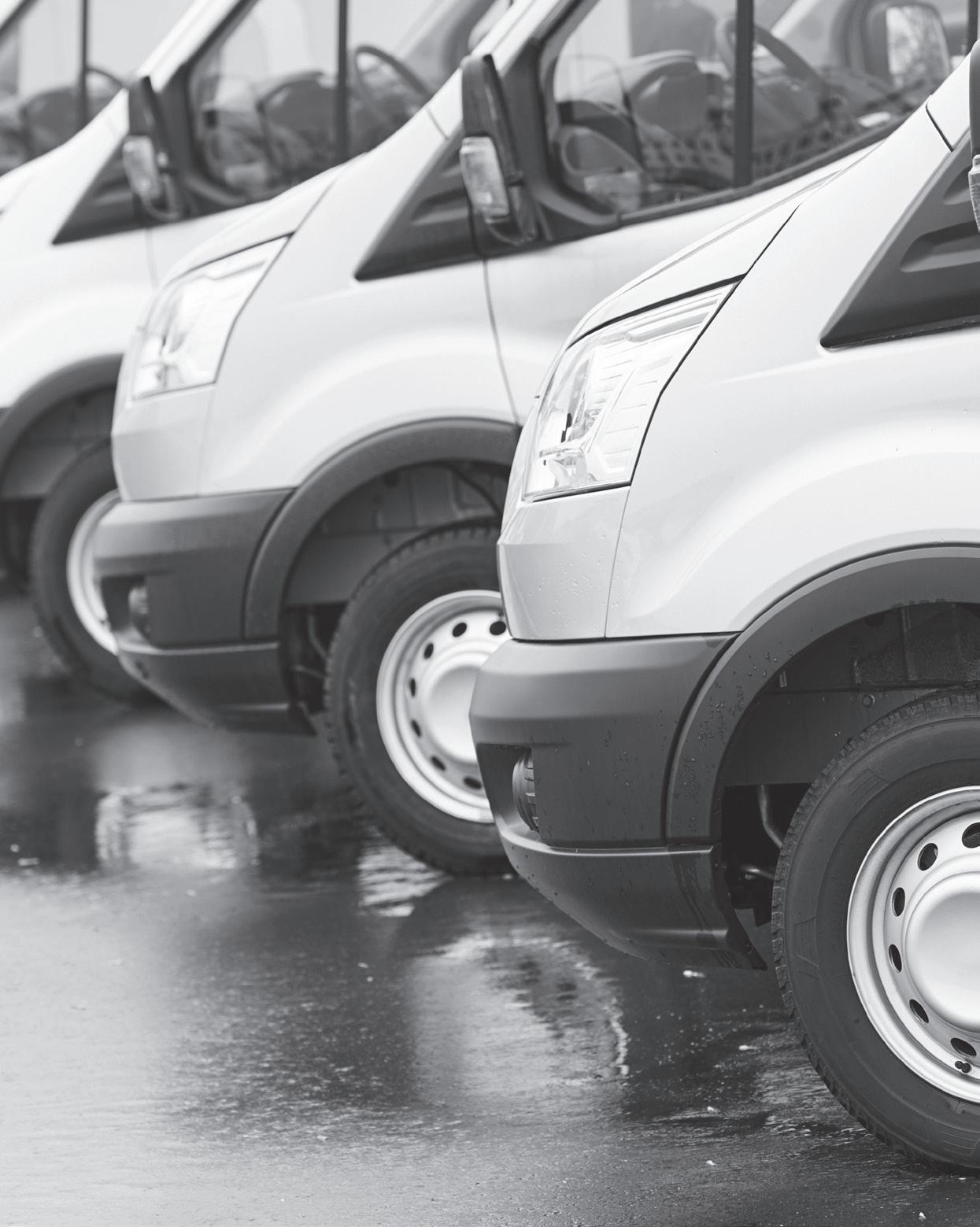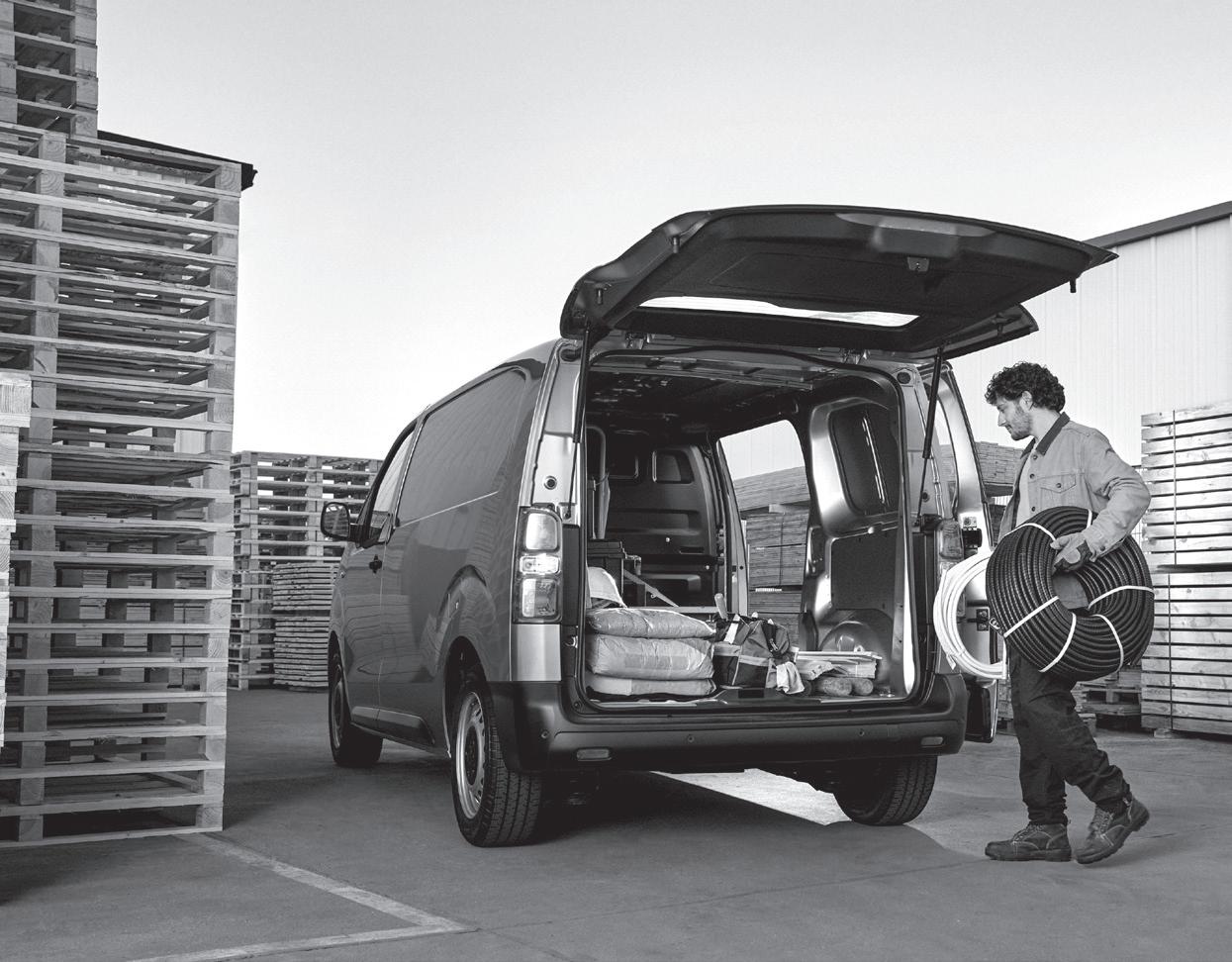

NEED TO FIND THE RIGHT FIT FOR THE JOB?
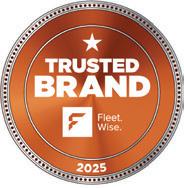
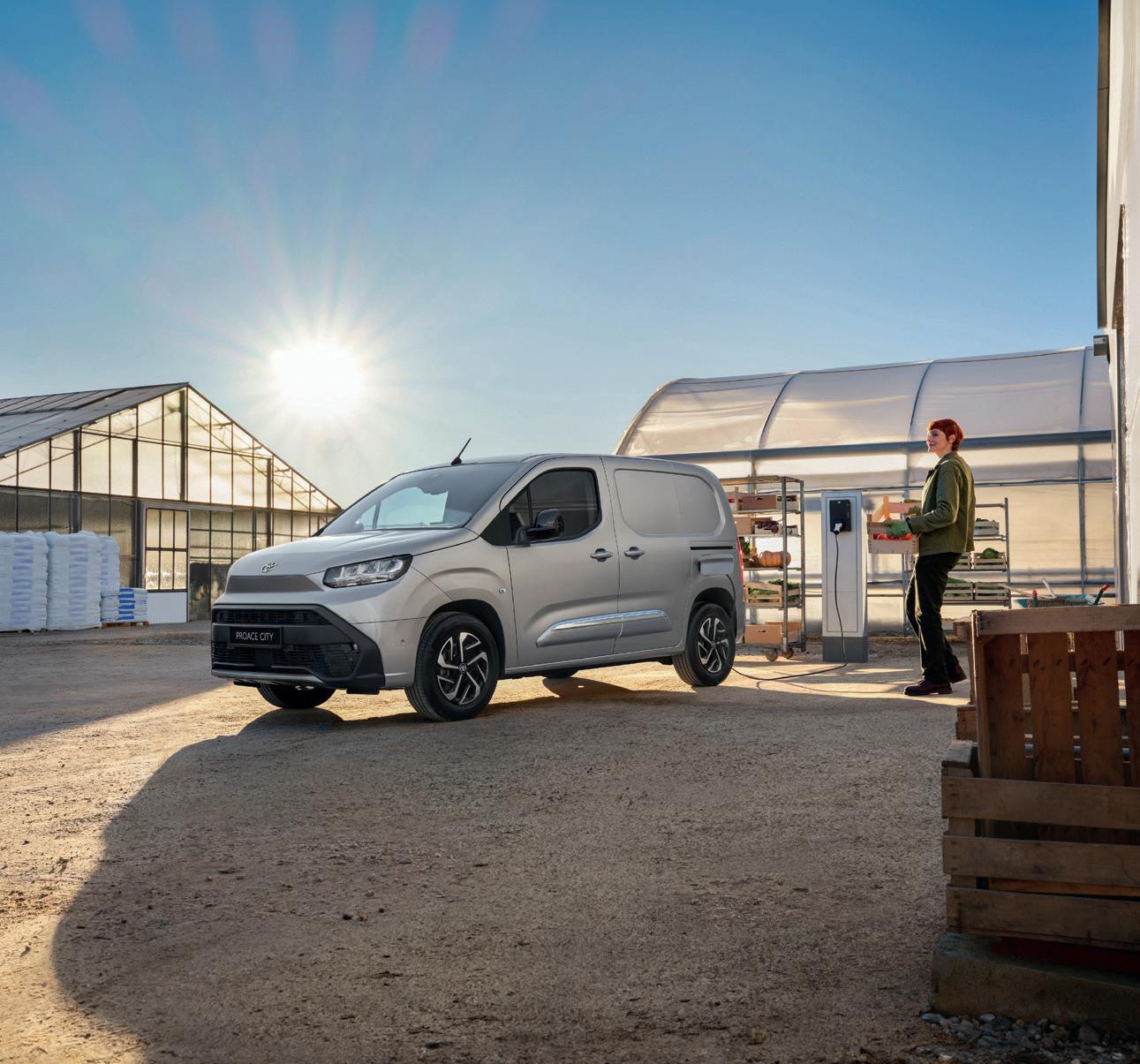
THERE’S A TOYOTA FOR THAT
Big job, small delivery or anything in between, you can trust our award-winning vans and pick-up trucks to handle every task.
From the British-built Corolla Commercial Self-Charging Hybrid to the legendary Hilux and the versatile Proace family - available in both diesel and electric optionswhatever the challenge - there’s a Toyota for that.
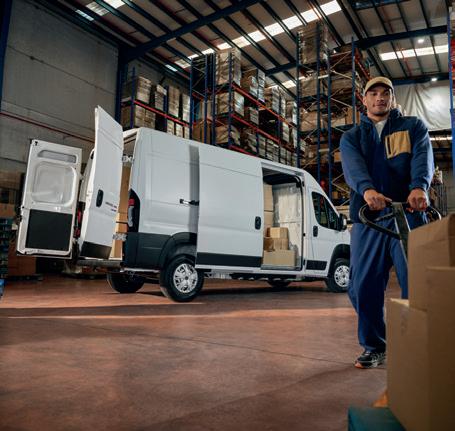
Why choose Toyota?
• Over 100 Toyota Professional Centres across the UK, ready to support you and your business.
• Comprehensive 3-year warranty from new, and an additional 12-month/10,000-mile warranty with every qualifying service.*
• 5 years roadside assistance on every new van purchased.
Let’s talk business
*Terms and conditions apply. See website for full details.
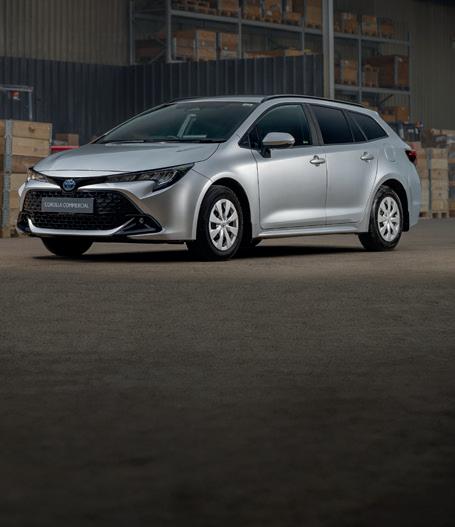



Welcome
We live in strange times, when Trust seems a much rarer commodity than it ever has before.
In a world of fake news, baseless social media posts and divisive politics, knowing who and what you can trust is more important than ever, be that news sources, marketing campaigns or even suppliers of products and services.
Now in its fourth year, 100 Trusted Brands in Fleet lists those organisations providing products and services in the vehicle leasing sector that fleet managers can rely on. It enables you to make your fleet-buying decisions more easily and quickly, and with added confidence.
“Our
Each of these 100 trusted brands, has gained the confidence of its customers through collaboration, transparency, honesty and, most importantly, delivery. They now reap the rewards of positive ‘word-of-mouth’ endorsements and recommendations.
comprehensive list
is based on the in-depth feedback from 400+ active fleet managers”
John Sootheran, Editor 360 Media Group
Our comprehensive list, in nine categories, is based on the in-depth feedback of 400 active fleet managers. The aggregation and curation of their experiences is carried out by FleetTrends, the datacollection division of 360 Media Group Limited.

100 Trusted Brands in Fleet brings all this information together in one accessible report, that’s designed to make your shortlisting and buying decisions more assured than ever.
In addition to our invaluable lists of the top Trust performers, we have interviews with three influential industry leaders, along with buying guide advice.

John Sootheran
Editor, 360 Media Group e: john@360mediagroupltd.com w: 360mediagroupltd.com
“Trust is hard earned and easily lost. Brands that measure trust hold a competitive advantage, demonstrating their values as they strive for longterm success. Our insight reveals a clear correlation between awareness, trust and brand consideration, and those brands featured are in the best position to win future business.”
Ian Richardson, Managing Director, 360 Media Group
& Mobility Services
(Service, Maintenance and Repair) & Vehicle Conversions 81 SMR & Conversions
82 A-Z listing of 100 Trusted Brands' top performers –your instant Shortlist
84 Glossary of terms – be an instant expert with our comprehensive A-Z guide!
Why 100 Trusted Brands is the essential report for fleet managers
We distributed an in-depth survey questionnaire to over 400 current fleet managers, asking them to offer feedback on their experiences and perceptions of products and services in the fleet sector. We requested feedback specifically relating to the levels of trust they have in the suppliers they collaborate with, and how that influences their choices.
The resulting data was collated and analysed to create overall scores and rankings.
We also harvested anecdotal feedback on the trustworthiness of the brands involved.
“Reliability, integrity, competence, consistency, transparency and delivery are all key factors in developing trusting business relationships and collaborations”
What that means to you
Whatever products or services you want to acquire for your fleet, multiple research programmes have shown that trust is a critical element in any business relationship. High levels of trust often lead to longterm, mutually-beneficial affiliations, which save both parties time and money. Frequently, this leads to further collaborations and future opportunities, both company-wise and personally.
Our research highlights 100 businesses in nine sectors, which understand the importance of trust, and the components which create it. These businesses generate a positive brand essence that

goes beyond their direct customers, and becomes widely recognised across the industry.
All 100 trusted organisations have built business cultures that give customers the confidence to work with them and rely on them. This is based on a belief that their actions and intentions are consistent, reliable and ethical, and, in this way, trust becomes a foundational element of successful business relationships, transactions and collaborations.
In the complex and ever-changing world of fleet transition, it’s inevitable that not everything will go to plan. Trusting a partner business to recognise, reveal and rectify any issues is essential, and the lessons learned can then be applied to any future problems you might encounter.
Effective shortlisting
By analysing nine key fleet sectors, this report makes your shortlisting decisions much easier and quicker, and it increases confidence and justification in your choices.
In any business, time is money, and making the right choices first time is critical. That means our instant shortlisting data is more important and valuable than ever.
“We reveal the businesses which, instil the greatest levels of trust and confidence across nine crucial sectors. Use this guide to save time and money when shortlisting”
Using this report
How to make the most of the information it contains
All nine of the industry sectors we’ve evaluated in this report could be critical elements in your fleet’s transition towards 2030 clean-energy compliance.
Businesses in each section of the report deliver products and services designed to help your drive towards a clean fleet. They can save you time and money and, just as importantly, deliver quantifiable results and data to help you manage and focus your efforts effectively.
According to our in-depth research with 400 fleet managers, when it comes to trust, these are the best of the best in their sectors.
From page 18, you’ll find all these best trust performers listed by sector.

Ian Richardson
Managing Director, 360 Media Group e: ian@360mediagroupltd.com w: 360mediagroupltd.com
Each category has its top ‘trust performers’ listed, with the very highest-scoring businesses having Highly Recommended status bestowed upon them.
The co-founder and Managing Director of 360 Media Group Limited, Ian Richardson, explains:
“Our 2025 report features 31 brands positioned for growth; with their Highly Recommended status making them essential candidates in any fleet-buying shopping list.
“The Highly Recommended brands have achieved the Upper Quartile score in their respective supplier category. The recipients of these accolades are determined by identifying the number of brands in each category, ranking those brands in descending order and selecting the top 25% of them. This achievement is recognised with our Highly Recommended status.
“This is a who’s-who of the fleet supply chain and is the only national award that is 100% voted for by fleets.
“Our 100 Trusted Brands in Fleet
“The Highly Recommended brands have achieved the Upper-Quartile score in their respective supplier category”
Many of the top 100 Trusted businesses have taken the opportunity to tell you more about their products and services on the profile pages you'll find in each section. Meanwhile, all 100 businesses appear on our supplier shortlists at the end of the relevant category section.
Alternatively, you can head online to our Digital Marketplace, where, as well as our supplier shortlists, you’ll find a growing number of recommended products and services appearing over the coming months. Ultimately, this will become your definitive resource for finding all the products, facilities and deals you’ll need to optimise the running of your fleet.
the guesswork out of sourcing fleet suppliers, with peer recommendations reinforcing future buying decisions.”

"On pages 82-83, all 100 of the most-trusted businesses in our survey are listed by sector, and in alphabetical order – your ‘instant shortlist’. Alternatively, if you scan this QR code, you can access a digital version to keep on your device until it's needed for your next round of fleet procurement."


Executive summary

TIan Richardson
Managing Director 360 Media Group
his, the fourth 100 Trusted Brands in Fleet report, assesses the levels of trust and confidence that buyers have in the fleet supply chain. As fleets gear up for the transition to electric vehicles, the need for reliable suppliers of products and services is greater than ever – 53% of fleets cite Product News as their number-one information need [Fleet Market Tracker Report] The Labour government's decision to reinstall the 2030 ZEV deadline was generally well received
across the industry, with clarity seemingly as important as the actual date. That said, the Tory delay did little to diminish fleets’ appetites to explore and evaluate the suppliers that can best help them make the zero-emissions transition.
The 100 Trusted Brands in Fleet report is compiled to help fleets make better procurement decisions, acting as a barometer of quality when sourcing and evaluating suppliers. With 100 brands, across nine broad supplier categories, we are seeing a raft of innovations and the broadening of capabilities from traditional brands, along with a host of new entrants.
The Leasing category delivers the greatest number of trusted brands, with Fleet & Risk Services and Tracking rounding off the Top 3.
EV Services represents 9% of the brands included in the latest listing, placing it sixth.
Interestingly, all categories now include electric vehicles in their criteria, from funding to software.
As fleets navigate the complex transition to EVs, supplier trust has never been more critical – 71% of fleet buyers identify trust as the top attribute in a supply partner. But trust now extends beyond reliable delivery; suppliers must also guide fleets through future challenges. With fleets rating their EV knowledge at just 6/10, those who offer clear, expert support are better positioned to succeed.
Key knowledge gaps remain around charging infrastructure, home installations, expense reimbursement and vehicle selection. These uncertainties are amplified by new brands and evolving partnerships, as OEMs and leasing companies increasingly collaborate with thirdparty providers to offer seamless, end-to-end EV solutions. Leasing remains central as fleets aim to simplify supplier relationships.
Additional insights from the latest FleetTrends Outlook report
● 1-in-5 fleets don't offer drivers an EV company-car option, increasing grey-fleet risk.
● Salary sacrifice schemes are growing, seen as key to employee retention (see our guide from p66).
Policy and decision-making
● Just 50% of fleets have a formal fleet policy, a vital tool for managing EV transition.
● Only half understand the Total Cost of Ownership (TCO) model, signalling a need for better education.
Company car trends
● 54% of fleets allow drivers to trade up to an EV.
● 41% have adjusted rental bands to support EVs.
● Finance leases are expected to cover 26% of new van acquisitions.
● Partnerships to reduce vehicle movement are seen as key to future-proofing van operations.
Van-fleet trends
● 41% of fleets plan to grow in the next year.
● Charging infrastructure, implementation and planning top the list of EV challenges.
● 19% are exploring workplace charge points; 49% already use EV payment solutions.
The following pages offer data-driven insights and discussion points across fleet strategy, investment priorities, costs and the progression of electric fleets.
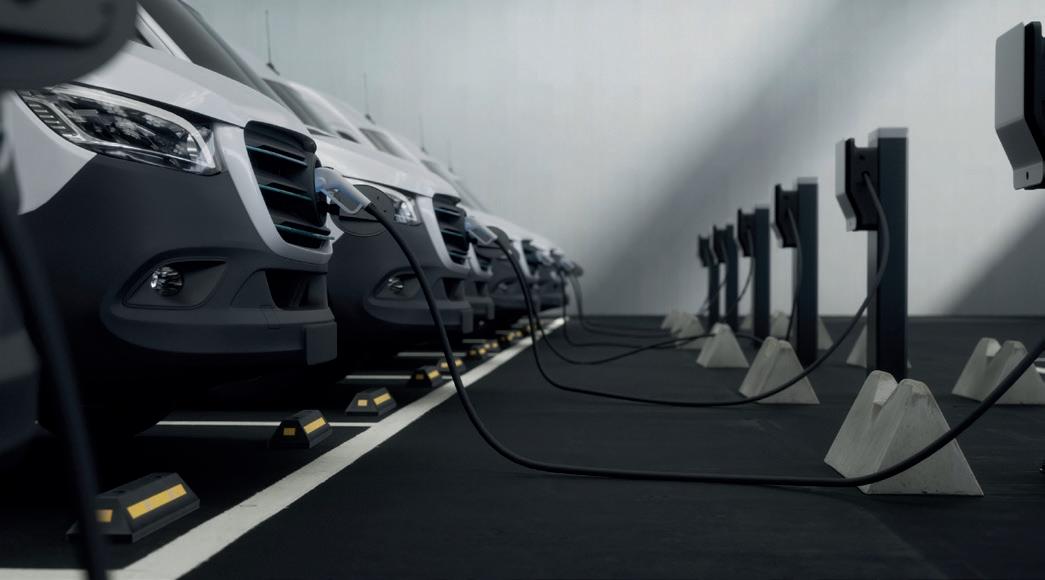
Data Sources
Fleets shortlist suppliers using a mix of sources, with websites, white papers, newsletters and webinars being most influential. Many also attend events to meet suppliers and gain insights. OEM sites and leasing companies provide key advice, especially on EVs. Engagement actions – like quote requests and enquiries – often follow interactions with trusted media channels.
UK Fleet Market Research
An introduction to 360 Media Group’s incisive market research
The latest FleetTrends study reveals end-user fleet priorities, based on interviews with 200 fleet managers conducted in 2024. The survey focused on the fleets' agendas for the next 12 months.
The following eight pages present a snapshot of the report’s findings, outlining strategies to contend with economic conditions and operational challenges, to help fleet managers future-proof their businesses.
FleetTrends is the research division of 360 Media Group and benchmarks brand health and market performance. In this way, it acts as an early-warning system for the fleet industry, allowing it to identify
“As fleets transition to electric vehicles, the supply chain has an opportunity to step up and support them with practical advice and operational excellence”
Ian Richardson, Managing Director, 360 Media Group Ltd
trends and act upon them. Our fleet omnibus surveys deliver topical insights to help fleets evidence their business case, and it also informs the supply chain’s growth priorities.
To access the full report or request insights to support your plans, please contact ian.richardson@360mediagroupltd.com
Key contents
Fleet Strategy
Flexibility and agility are key for the future of the company car fleet
Enablers of future vision Consolidation and collaboration are critical to help fleets futureproof
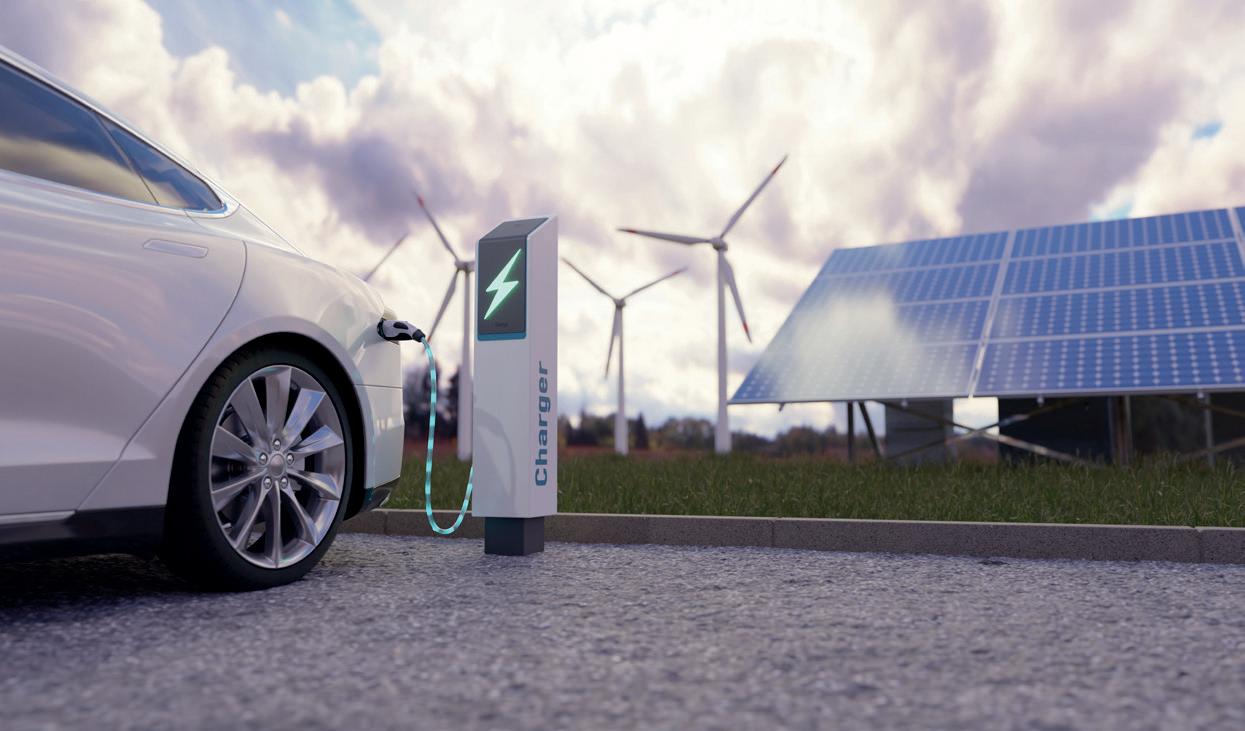
Survey of end-user fleet attitudes
The following pages are based on quantitative and qualitative research by 360 Media Group
Following the Budget, 360 Media Group conducted a survey of 84 fleet decision makers, exploring business plans for 2025.
Among the principal findings were:
64 % of fleets say cost reduction is their number one strategic priority for 2025.
51 % expect to increase their volumes of electric cars, but 27% still do not have any EVs.
45 % are still considering hybrids and PHEVs, despite the Budget’s BiK tax changes.
66% favour a 2030 deadline, or sooner, for the phase out of the sale of ICE cars.
66% plan to install workplace charging infrastructure in the next 12 months.
To access the 360 Media Group research, please visit fleetwise. online/reports-custom, or email marketing@360mediagroupltd.com
"Since 2020, all our orders have been focused on BEVs and PHEVs, aligning with our cultural values and significantly reducing the tax burden. We actively encourage the adoption of company cars across the business"
Fleet Manager, large corporate fleet.
Car and Van fleet sizes by volume of respondents
1-10
Cost reduction tops fleet agenda
Sustainability is well down the list of business priorities for 2025
Reducing cost overshadows every other strategic priority of car fleets for 2025. Inflation in vehicle acquisition costs and lease rates, compared to the vehicles they are replacing, have made budgetary concerns the number one issue for fleet decision makers.
As a result, reducing overall costs is a strategic priority for 64% of fleets, accorded almost twice the importance of any other priority.
The quest to access more affordable insurance, cited by 36% of respondents, reflects the relentless inflation impacting repair costs. According to the Association of British Insurers, total repair costs in Q3 2024 were 26% higher than the same quarter in 2023.

The transition to electric cars is only the third placed strategic priority for fleets, highlighting the fact that companies are prioritising their own sustainability as viable businesses well ahead of environmental sustainability.
Overall, 80% of the companies surveyed are
Top 10 strategic priorities for car fleets in 2025
confident they will not have to order EVs to acquire the vehicles they want, due to OEMs applying ZEV Mandate pressure (and only 27% are encountering difficulties ordering the cars and vans they want). This perhaps reflects the research’s bias towards fleets running fewer than 100 vehicles and the fact that the mandate is largely impacting bigger fleets.
ZEV mandate rules
In April 2025, the Government updated the ZEV mandate rules, largely in an effort to alleviate some of the pressures on vehicle manufacturers, and to address 'unachievable' targets. The most significant changes involved deferring the bans on vans and hybrid vehicles until 2035. The changes relate to all hybrids, including mild and plug-in versions.
Manage supply constraints due to ZEV mandate
Free up cash from vehicles (refinance)
Reduce fleet administrative burden
Invest in fleet management software
Recruit and retain staff
Fleets associate EVs with higher costs
Higher lease rates and acquisition prices overshadow ‘fuel’ and tax savings
End user fleets are exploring multiple strategies to control the cost of electrifying their cars and vans.
Electric vehicles may offer competitive total costs of ownership when their tax advantages are taken into account, assuming that business mileages can be reimbursed at domestic charging rates. But their higher immediate impact on P&L budgets, due to more expensive lease rentals or purchase prices, compared to ICE equivalents – and especially compared to the cost of vehicles being defleeted –is a source of anxiety for decision makers.
To mitigate these elevated costs, 49% of the businesses surveyed by 360 Media Group said they have either started or are actively engaged in sourcing used EVs for short-term leases.
A further 31% of fleets intend to limit the brands on their company car choice lists, and only 30% are planning to adjust their lease rate bandings to reflect the higher rentals. A similar number are encouraging drivers to contribute to the cost of
Fleet plans to navigate higher costs of EVs
their new company cars, using some of the benefitin-kind tax savings from switching out of an ICE car.
Sourcing cars from new entrant OEMs also forms part of cost-cutting plans for 43% of fleets, although one-third lack confidence in these new players’ dealer networks and aftersales support.
Moreover, more than half (54%) also expect bigger discounts on EVs from established manufacturers due to their efforts to meet the terms of the ZEV Mandate.
“End-user fleets are actively investigating all options to reduce the cost of electrifying their vehicles”
Ian Richardson, managing director, 360 Media Group
Van fleets search for cost-cutting strategies
Flexi-hire products, efficiency drives and electrification are all high on 2025 agendas
Economic uncertainty is leading fleets to seek greater flexibility in their vehicle finance arrangements. While there is little that businesses can do about the impact of interest rates on their bottom line, 42% of fleet decision makers blame inflexible payment terms for driving up fleet costs, and 39% point the finger at expensive earlytermination penalties.
Flexible terms are particularly important in the light commercial vehicle sector, where 42% of the businesses surveyed forecast that they will have greater demand for van rental over the next 12 months, while 30% said their need for LCV flexirental solutions will be 'stronger' or 'much stronger' next year.
Among the top 10 strategic priorities for van fleet
Top 10 strategic priorities for van fleets in 2025
Reduce overall costs
Transition to electric vans
Implement charging solutions
Reduce the fleet admin burden
Reconfigure journey planning and payloads
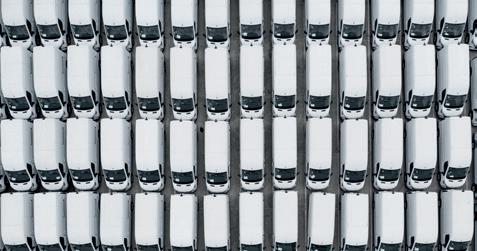
operators, eight are focused on cost cutting and efficiency, highlighting the price sensitivity of the market. The relatively high priority accorded to the transition to eLCVs, and implementing charging solutions, will surprise both leasing and rental firms, which have yet to see this proposed interest develop into demand.
“How could a leasing company improve its offer? A reduction in the maintenance element of eLCVs, more flexibility around contract termination, and better management of ‘vehicle off-road’ times”
Fleet manager, 2500 vehicle utility fleet
Invest in fleet management software
Improve employee productivity
Secure greater flexibility in vehicle funding method
Free up cash from vehicles (refinance)
Access in-vehicle diagnostic data
Fleets require supplier support to help cut costs
Businesses need help with fleet management and charging to mount efficiency drive
End-user fleets are seeking more support from suppliers as they attempt to navigate the inflationary pressures impacting their cost bases.
The survey by 360 Media Group indicates that fleet decision makers are looking for data and insights to drive efficiencies, reduce expenditure and avoid costly errors.
The legacy of first generation workplace charging infrastructure haunts some fleets, with ‘dumb’ chargers unable to communicate their state of health, sync with driver apps or allocate charging costs to relevant departments.
The research found that 38% of businesses expect to have a stronger demand for fleet management in 2025 (only 9% anticipate weaker demand), and 37% are looking for third-party support to install workplace chargers.
Current cost-cutting strategies are based on data analysis, fuel-economy drives, renegotiating contracts and more stringent management of grey fleet expenditure.
There is also a groundswell of opinion among fleet customers that leasing companies hold the answer to these challenges, and they are looking to suppliers for the data and insights needed to drive their future strategies.

“We need a way to work with good-quality data and combine it with other good-quality data from other suppliers to provide actionable insights. We need suppliers willing and able to make the connections,” said the manager of a 1000-plus vehicle fleet.
“Our workplace charging hasn’t kept up with modern needs. We face challenges with reporting costs, managing queues and reconciling usage with cost centres”
Fleet manager, construction sector, 400 vehicles
100 Trusted Brands in Fleet
Summary of pain points and influences
Operational Pain Points
The top three operational pain points are: organising vehicle servicing and maintenance, paying and reporting for fuel, and tracking and routing. Unplanned vehicle downtime and organising hire vehicles are likely to be related challenges and score almost the same as the thirdplace pain point.
Fleet Management Pain Points
The top three fleet management pain points are: unexpected costs, lack of transparency with the current fleet, and managing vehicle data. Corporate fleets and SMEs also cite the transition to electric vans as joint third. Corporate fleets also recognise the admin burden of running a low-emission fleet.
Leasing Pain Points
The top three pain points with leasing providers are: consistency in maintaining vehicles, unexpected costs and emissions reporting. Integration of supplier data is the third greatest pain point for SMEs.
Influential Factors
Fleet software, integrated data solutions and the bundling of EV charging are the top three requirements when considering a new provider.
“It's important to be in control and to be able to access competitive rates, terminate the vehicle and request new ones directly”
Fleet Manager, large corporate car and van fleet
“We would like to see a reduction in the maintenance element of monthly effective rentals, to accurately reflect the maintenance costs for EVs”
Fleet Manager, Utilities sector
“A one-stop shop is vital when leasing a fleet of vehicles. It streamlines the process by offering all the necessary services: vehicle selection, financing, and maintenance, in a single place”
Fleet Manager, UK Charity Sector
Influential Factors for choosing a leasing provider by fleet size
Fleet management software, integrated data solutions and bundled EV charging are the top three requirements when considering a new leasing provider.
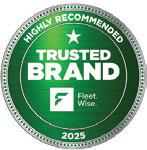

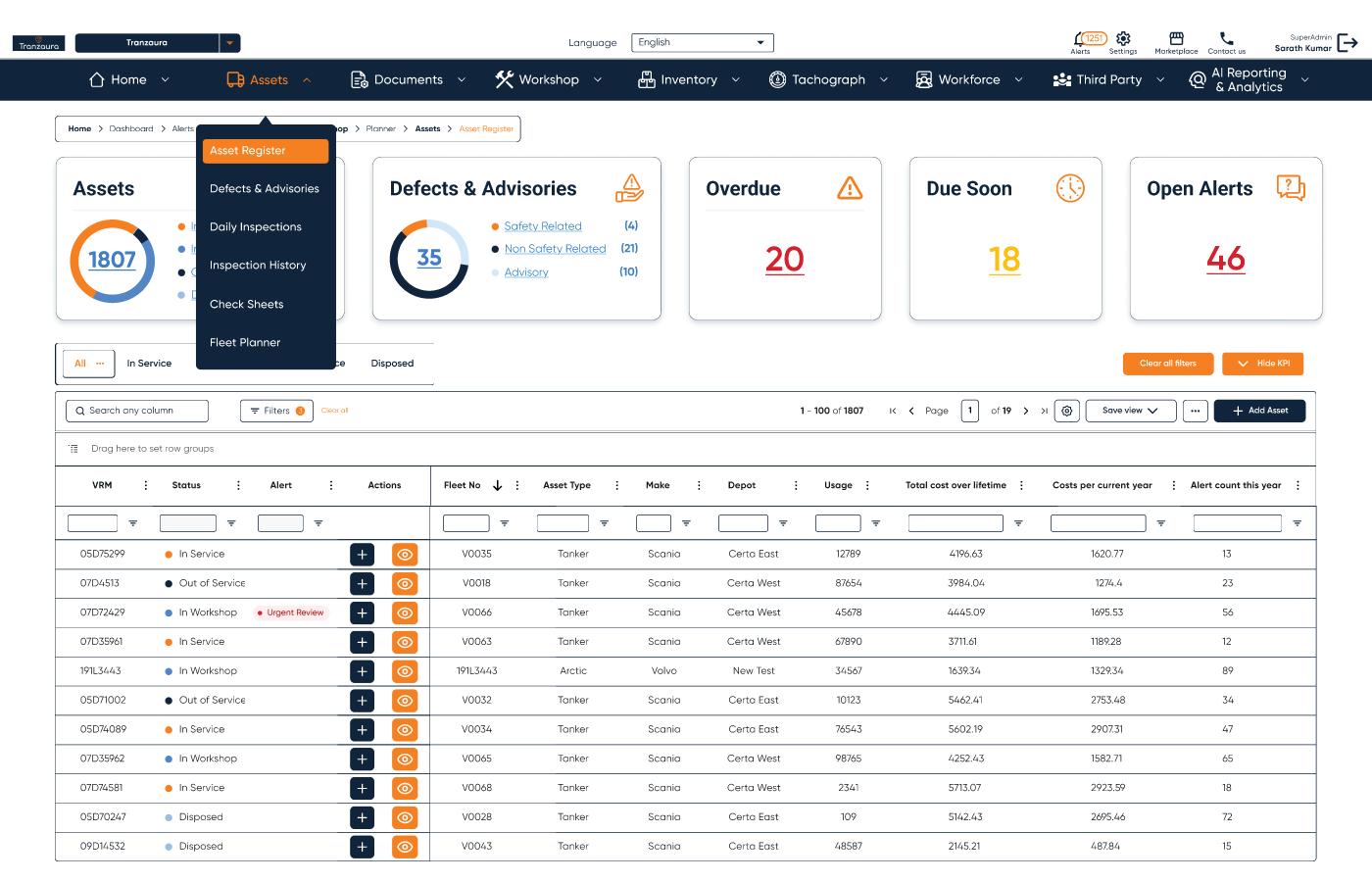



Zapmap EVCharging Survey
The UK’s most in-depth EVcharging survey reveals this year’s winners and losers in the public-charging arena
Zapmap, the UK’s leading charge point mapping service, has announced its annual satisfaction rankings for the UK's public-charging networks. Now in their seventh year, the league tables are generated from EV driver responses to Zapmap’s annual EV-charging survey, last conducted in October 2024. The survey is the most comprehensive study of EV drivers in the UK, and saw responses from over 3700 BEV drivers.











This year, Zapmap has grouped rapid and ultra-rapid public charging networks into two categories, based on network size. These are Medium-sized networks (with between 100 and 300 charge points), and Large-sized networks (with over 300 charge points).
Zapmap awards a ‘Best EV Charging Network’ accreditation to the top scorer in each category, with other top performers, who achieve at least a 3.5 Star overall rating, receiving an ‘EV Driver Recommended’ title.
Survey respondents rated their overall satisfaction out of five stars, for networks they use regularly. They also rated their level of satisfaction in five key areas: reliability, ease of use, customer support, value for money and payment options.
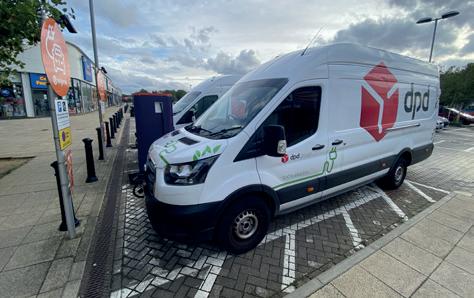





EV Services
The most-trusted brands in the EV Services sector for 2025 are revealed
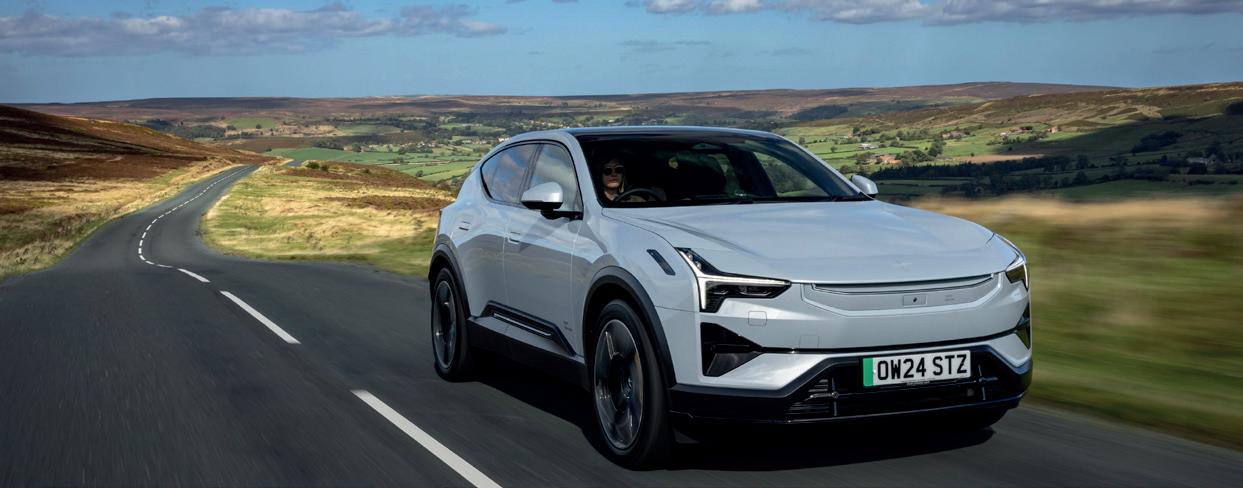
As thousands of business fleets transition to electric vehicles each year, there’s never been a more important time for the fleet manager to understand what innovation, assistance, products and services are available to help make that evolution a smooth and effective one.
For every challenge they’ll face, there are a range of solutions, and many of these are multi-faceted and integrated.
These changes are likely to take several years for the largest fleets, so making the right choice of partner at the outset is essential, and that’s right across the broad range of EV Services. Getting it wrong could prove very expensive in both time and money.
A wide range of services
These EV Services include: payments, charging, sustainability, charger locations, admin and fleet data delivery, plus a plethora of others.
The professional fleet manager will need to identify, understand and procure some or all of
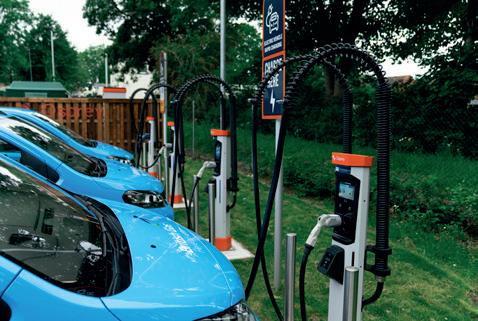
these services to run an effective ZEV transition.
Some of these services are standalone, but, increasingly, suppliers are expanding their offerings or collaborating with other complimentary businesses to deliver a range of integrated services in a single package. In many ways, dealing with just two or three suppliers that each deliver a range of products/services will be easier than working effectively with six to 10 specialists. Our in-depth research and guides will help you make those calls.
Trusted EV Services Brands
Our Trusted Brands research highlights the EV Services suppliers that have earned the highest trust ratings from the 400+ fleet managers who took part in our survey. They’ve earned this valuable accolade through their transparency, great communication, reliability, problem-solving and innovation, and, of course, their ability to deliver year after year.
Our sister-brand, FleetWise, has also compiled in-depth guides on 12 key areas within the fleet eco-system, from SMR and Rental Services to Salary Sacrifice and these all-important EV Services.

To read the FleetWise EV Services Guide, log on to the web address below or scan the QR code with your digital device.
www.fleetwise.online/category-ev-services#ev1
100 Trusted Brands in Fleet

Paua
Introducing Paua. We build technology to make managing electric fleets and payments easy.
Just one brilliant card and app helps your fleet drivers to simplify their recharging, pay quickly and optimise effortlessly. Paua offers a seamless system delivering hassle-free driver and fleet manager experiences via our innovative and intuitive dashboard.
Our mission is to make fleet managers' and drivers' lives easier, by adding features including:
● Overstay fee breakdown, to help reduce costs
● Start and stop charging alerts
● Notes section for each charging session
● Real-time monitoring of live-charging sessions
● Paua helps drivers to locate any one of 50,000 connectors nationwide, then pay for and monitor their consumption, quickly and easily.
● Integrated public, home and depot charging functionality
● 50,000+ charge connectors makes Paua the largest network in mainland England, Scotland and Wales
● 35+ network partners (FASTNED, Gridserve, Instavolt, MFG and many more)
● Live, real-time-availability dashboard
● Simple and accurate driver-charging payments with Paua Reimburse
● Multi-Award-winning (Greenfleet, Fleet News, Digital Leaders)
● Custom white-labelling for enterprise fleets
● Our seamless delivery optimises all aspects of fleet management
We collaborate with over 35 of the country’s biggest and best network partners to ensure your drivers are never more than a few miles from an available Paua-compatible charger.
Join the EV revolution with Paua – the simplified payment and optimised data platform, that redefines EV charging, one connection at a time, with no hidden admin or transaction fees.
For more information, visit www.pauatech.com

Paua Reimburse
Paua recently announced the launch of Paua Reimburse, a solution for equitable EV driver compensation. After 18 months of collaboration with Royal Mail, Paua Reimburse ensures fair payment for home and on-the-road charging. Built on Paua’s extensive EV charge card
network, the mobile app offers accurate mileage capture, cost reimbursement, and streamlined approval flows.
For more information on this new service please contact us at: info@pauatech.com

Drax Electric Vehicles
We believe in the value of end-to-end electrification partnerships. By tailoring EV-transition roadmaps to organisation-specific requirements, we support from assessment to implementation and beyond.
Our focus on understanding sites and operations ensures that we supply and install cost-effective, future-proofed charging solutions. Meanwhile, our market-leading management portal helps control operations and identify optimisation opportunities.
As part of Drax, we offer reassurance due to our heritage and scale, and we offer energy, cost and sustainability benefits as decarbonisation experts.
For more information visit energy.drax.com/ev
FACT FILE
● Fleet electrification ● Workplace charging
● Destination charging ● Suitability assessment ● Installation management
● Specialist knowledge ● Portal for EV management ● End-to-end partnership

Zapmap
Zapmap was founded in 2014 with a mission to accelerate the transition to low emission mobility by helping people switch to electric vehicles. The Zapmap app helps EV drivers find and pay for public charging with confidence and has over one million registered users. This is powered by Zapmap’s unrivalled charge point data, detailed information and 24/7 live availability data.
A key source of support to the EV industry, Zapmap brings together its longstanding market experience, a large and engaged EV driver audience and rich datasets, to provide unrivalled data and expert analysis. These, alongside the Zapmap Spark APIs, are used by many across the e-mobility eco-system including CPOs, fleets and OEMs. zapmap.com
FACT FILE
● Find and pay for public charging ● 80,000+ charge points ● 24/7 live availability ● 1.5 million downloads ● Pay at over 40k+ charge points across 30 networks ● App + charging card coming soon ● Apple CarPlay and Android Auto compatible
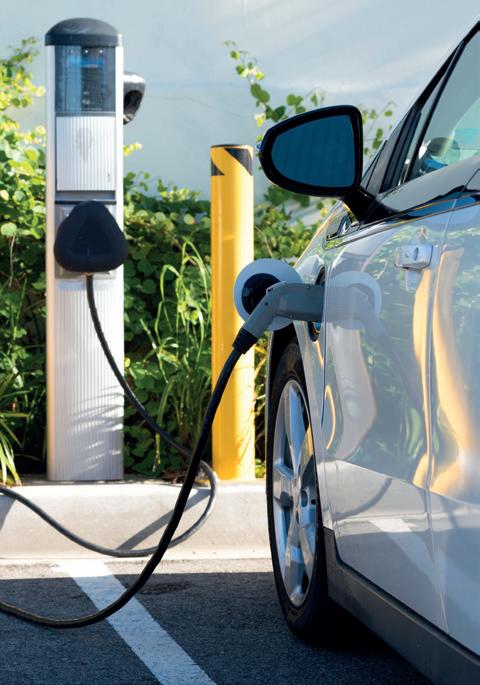
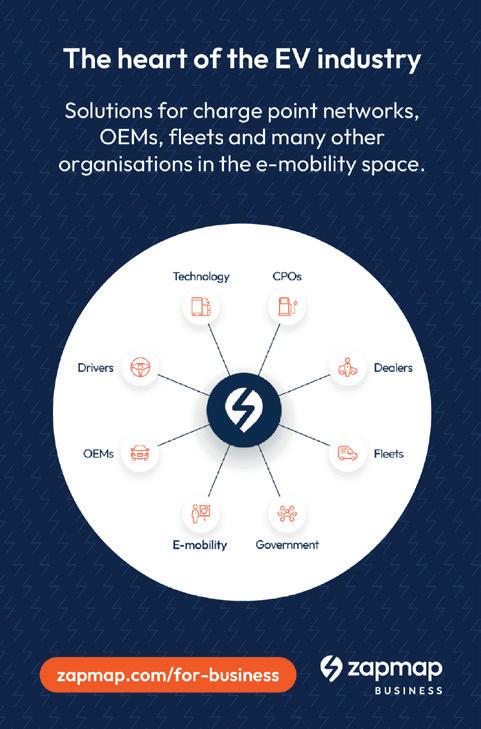
100 Trusted Brands in Fleet
DIODE
The Diode platform makes electrification easier for fleet managers by providing data-driven insights and recommendations to help them make smarter, more informed fleet decisions. By analysing telematics and driver survey data, it simplifies complex fleet decisions and helps avoid costly mistakes. The platform highlights cost and CO₂ savings opportunities, and provides detailed insights into vehicle choice, dwell locations, range and charging habits, etc.
MOBILIZE POWER SOLUTIONS
Mobilize Power Solutions is a leading European specialist in electric-vehicle charging infrastructures, network management and sustainability solutions. It enables businesses to adopt and grow their electric/plug-in-hybrid fleets, and provide EV charging services to their employees, customers and visitors.
Mobilize draws on Renault's global experience in the e-mobility sector, with a focus on compatiblity and futureproofing.
DYNAMON
Dynamon’s data analytics and simulation tools help businesses ensure their transport operations are sustainable, cost-effective and efficient, in the transition to EVs.
Dynamon’s ZERO software uses advanced data analytics to help commercial fleets, consultants, leasing companies and charging providers identify the most suitable EVs and routing, the necessary charging infrastructure, costs and even depot energy requirements.
RIGHTCHARGE
This Electric Fuel Card lets you stay on top of your drivers' home tariff rates, whether they have a smart meter or not. All homecharging costs are reimbursed directly to the home energy supplier. This charge card provides access to 60,000+ chargers, from lamp post to ultrarapid – and all public and home charging costs are consolidated into one bill. With Rightcharge's Electric Fuel Card, managing EV charging is accurate and automatic.

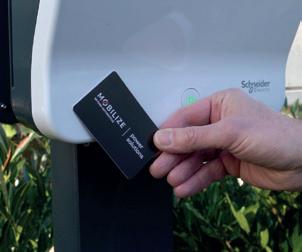
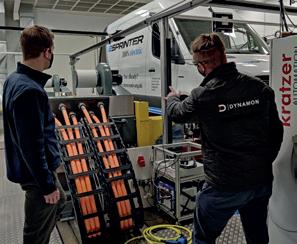
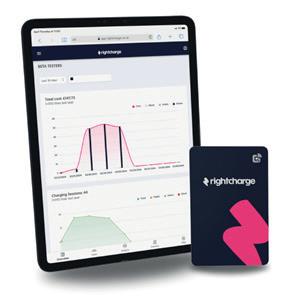

● Partnering with major UK lease companies and banks ● An innovative software platform that empowers businesses and individuals

● Global experience ● Network management
● EV-charging infrastructures ● Sustainable energy solutions ● Solutions for BEVs and PHEVs ● Agnostic approach to automotive OEMs

● EV selection ● Grid and charging
● Transition planning ● Infrastructure insight
● Aerodynamic analysis
● Tyre choice analysis
● Tariff optimisation ● Public charging ● Cost analysis

● Public, home and work charging
● Automated driver reimbursement
● Home-charging software
● Hands-off tariff management
● Bills paid direct
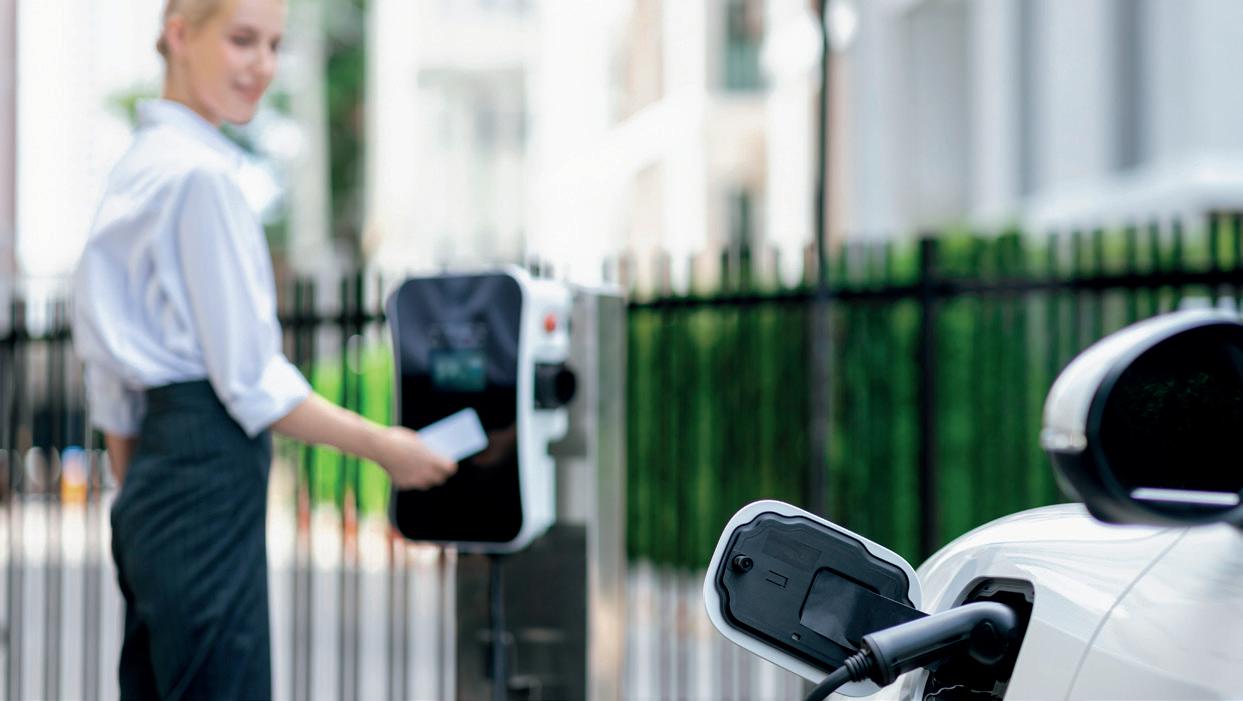
EV Services shortlist
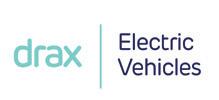










Fleet Software
Whether a fleet is 20 vehicles or 20,000, efficient organisation of the assets saves time, money and stress. Choosing the right software package is the key to success when it comes to fleet data management
Managing a business vehicle fleet in today’s fast-paced world isn’t just about keeping engines running and wheels turning – it’s about harnessing data, improving efficiency and staying one step ahead of the curve. That’s where fleet software steps in. Designed to streamline operations and reduce stress, these digital platforms offer fleet managers a clear view of every vehicle, driver and journey at the touch of a key.
Designed for every fleet
Whether you’re running a dozen vans or hundreds of mixed vehicles, fleet management software offers many benefits. We’re talking better route planning, reduced downtime, simpler compliance and lower fuel bills – not to mention happier drivers and a more professional service. These systems help you spot problems before they disrupt, monitor driver behaviour in real-time and take the grind out of scheduling, reporting and maintenance.
Cloud-based and scalable
Even better, most platforms are cloud-based, scalable and packed with features that can be tailored to your business needs. Integrations with telematics, payroll and EV management make them a powerful tool for staying in control and on budget.
In short, adopting fleet software isn’t just a smart move – it’s fast becoming essential for any fleet operator looking to run a tighter, leaner and more responsive transport operation in 2025 and beyond.
“Software providers typically offer training for users, along with ongoing support. Both are crucial for maximising the benefits of the software”
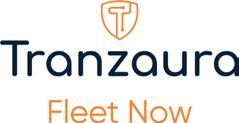

Your Fleet in the Now with Tranzaura
Founded in 2010, Tranzaura is a fleet-intelligenceand-management software company, transforming fleet operations in the Now. Tranzaura’s SaaS platform FleetNow delivers fleet intelligence and software solutions to help fleets and transport operators power up decision-making and operational efficiency, while lowering costs and risk.
The FleetNow Platform FleetNow is a high-performance, scalable and easyto-use fleet intelligence and management software platform. It advances how you manage, monitor and maintain your fleet – all in one platform.
Tranzaura’s platform for fleets and transport operators ensures consistent and reliable software performance with a single, well-supported platform. The package includes;
● Management software solutions powered by the latest cloud technologies
● Fleet insights and integrations using third-party data or internal system
● AI analytics to interrogate data without any technical expertise
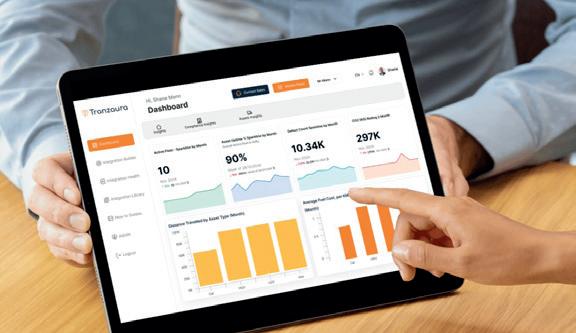
● Self-service dashboard to keep a pulse on your fleet's performance
● End user apps – to eradicate admin and improve data capture
● DVSA-validated software that streamlines your path to earned recognition.
Tranzaura is trusted by fleet and transport operators of all sizes. These include: Travis Perkins, Medequip, Yorkshire Water, GoAhead London and Transdev.
Testimonials
“Jon Lowe of BSS Group has called the move to digital, ‘enriching’, and has lauded the improved visibility and decision-making in the company since collaborating with Tranzaura.”
Lowe of BSS Group
This expansion reflects Go-Ahead’s commitment to innovation and operational excellence, as Matt Carney, Chief Executive of Go-Ahead Bus, expressed: “Our partnership with Tranzaura reflects our dedication to digitalisation, embracing innovative solutions to streamline processes and improve the way we work.”
Jon
100 Trusted Brands in Fleet
Fleet Software Buying Guide
The best Fleet Software integrates many elements of fleet management, delivering data on intuitive dashboards for fast, insightful analysis

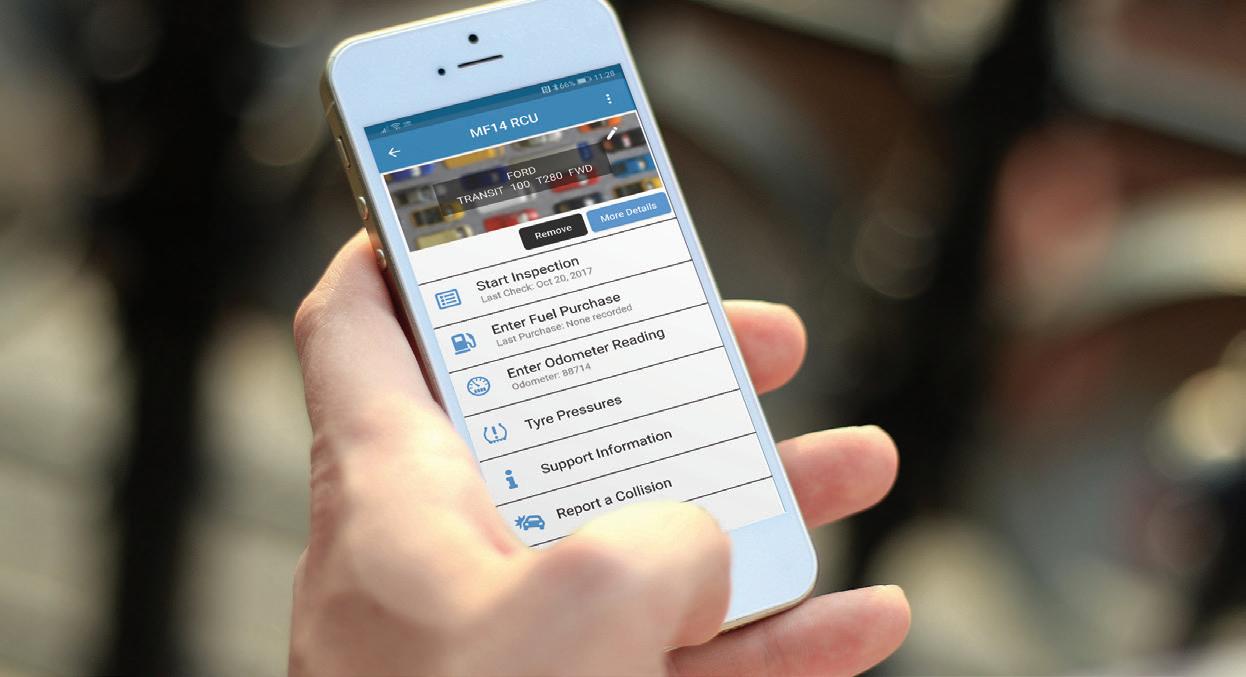
What can fleet software do?
Whether a fleet has 20 vehicles or 20,000, efficient organisation of assets saves time, money and stress. With data flowing in from telematics, satellite tracking, maintenance logs, driver behaviour tools and EV systems, the right software package becomes central to managing this complex information efficiently.
Fleet software isn't just a tool. It's a strategic command centre that can:
● Unify your scattered data streams (telematics, fuel, EV usage, compliance)
● Surface cost-saving opportunities automatically
● Track real-time performance and compliance risks
● Streamline fleet transitions to electric vehicles Fleet software helps to collate all these essential feeds on accessible and intuitive dashboards. The best systems can also be used by multi-person, fleet-management teams, wherever they work from.
EV transition: Support and knowledge gaps
Fleet managers rate their EV knowledge at just 6out-of-10. Software systems offering expert-led EV training, on subjects from charging infrastructure to cost tracking, are best for supporting EV adoption.
Common EV knowledge gaps
● Charging infrastructure planning
● Home charger installation logistics
● EV expense reimbursement tracking
● Vehicle selection and OEM integration
(Notably, leasing is becoming central as fleets simplify supplier networks. Fleet software can manage lease contracts, renewals and OEM partnerships, which are increasingly complex due to third-party integrations.)
● Only 3% of large fleets have not yet adopted BEVs, showing the market's maturity, and the urgent need for intelligent EV tools.
Fleet management features: Elevating pain points
Fuel and energy management
EVs introduce complexity in energy monitoring – home, public and workplace charging all differ. Software that integrates EV-specific energy consumption and payment solutions helps to address this: 49% of fleets already use EV payment platforms, and another 19% are exploring workplace charge points.
Cost management and TCO education
Although total cost of ownership (TCO) is a cornerstone of fleet budgeting, only 50% of fleets understand it fully. Fleet software with built-in TCO models that consider tax incentives, fuel savings, maintenance variances and resale projections can bridge this critical knowledge gap.
Driver management and grey fleet risks
1-in-5 fleets don’t offer EV company car options, increasing grey-fleet exposure. Software tools that monitor grey-fleet compliance, track private vehicle use and integrate driver reimbursement policies, are essential for managing legal and cost risks.
Salary sacrifice schemes are rising as key retention tools – fleet systems can help model and manage them.
Van fleets and software’s strategic role
Operational growth and route optimisation
41% of fleets plan to grow in the next year, and business acquisitions are not uncommon, often leading to a consolidation of fleet departments and a requirement for the alignment of processes. Route optimisation, real-time tracking and dynamic scheduling features are essential for van fleets, especially when planning EV-friendly delivery routes (avoiding routes that drain batteries faster). Partnerships to reduce vehicle movement, and AI-driven routeing, are becoming future-proofing strategies. 1-in-3 fleets already use AI in operations.
Fleet software’s broader impact
● Cloud vs legacy systems: SaaS models enable agile updates and scalability – important, as 54% of fleets now allow drivers to trade up to EVs, which requires flexible system configurations.
● Policy gaps: 50% of fleets lack documented processes – leading to risk, inefficiency and inconsistent decision-making.
● Driver communication and training: As driver engagement becomes crucial for safe EV use and behavioural monitoring, built-in communication tools and training modules play a supportive role.
● Data security and privacy: With sensitive EV infrastructure and personal data being continually processed, compliance with standards like ISO 20001 is non-negotiable.
Is it time to switch? Ask yourself:
● Are you still manually tracking service dates or MOTs?
● Are drivers emailing typed reports instead of using an app?
● Is your EV strategy hampered by lack of actionable data?
● Does your current supplier take days (or longer) to resolve ticketed issues?
● Would data integrations improve efficiency?
If you answered yes to any of the above, it may be time to explore the possibility of engaging a new digital fleet platform.
Conclusion
Fleet management software isn’t just a data tool – it's now a strategic enabler. From managing complex EV transitions and filling education gaps, to improving cost visibility and compliance, the right system becomes a foundational asset. As fleets evolve with the market, software that adapts to these shifts will deliver lasting value.
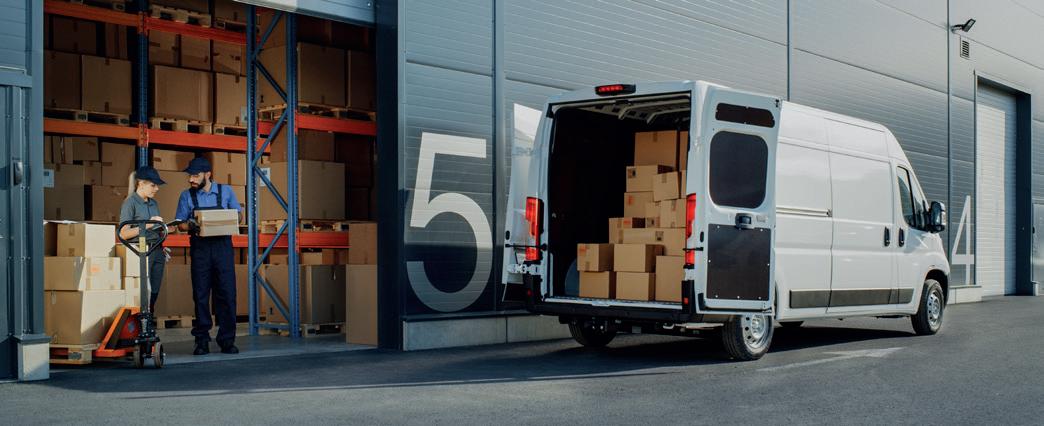
Buying Guide: The questions to ask when procuring fleet software packages
Today’s fleet software should be modular, flexible and intelligently-designed to suit your exact operation
1 Vehicle tracking and telematics
Real-time GPS, geo-fencing and driverbehaviour analytics
2 Fuel and energy management
EV-charging reports, fuel card integrations and carbon tracking
3 Driver management
Behaviour scoring, grey-fleet reimbursement and training modules
4 Maintenance and compliance
Automated alerts, legal checks and documentation tracking/archiving
5 Cost control and procurement
TCO calculators, leasing tools and costper-driver analysis
6 Asset lifecycle management
Acquisition-to-disposal tools and residualvalue tracking
Top 10 functional pillars to demand
7 Insurance and incident logging
Real-time claims reporting and risk analytics
8 EV management
Battery health, infrastructure planning and energy forecasting
9 Communication and notifications
Messaging tools, driver updates and compliance alerts
10Reporting and dashboards
Custom analytics, anomaly detection and trend benchmarking
6 smart questions to challenge suppliers
1. Is your platform modular and scalable?
2. How well do you support EV management and charging logistics?
3. Can your system integrate with our existing HR, leasing and fuel systems?
Four operational risks
When you don’t switch?
● Missed legal checks = fines
● Poor data = wasted fuel and inefficiency
● Manual reports = admin overload
● Limited EV insight = strategy failure
Fleet change blueprint
Four steps to switching without disruption
1. Audit: Map current tools, costs and gaps
2. Define needs: Use the Top 10-feature checklist
3. Demo and compare: Ask the six smart questions
4. Transition and train: Plan onboarding along with team engagement and coaching
4. What does onboarding look like?
5. What ongoing support and training is included?
6. How are you using AI to improve fleet performance?
Conclusion
Fleet software is no longer a back-office tool that rarely sees the light of day – modern, multi-functional packages should be your digital fleet hub.
Whether you manage a small fleet of 20 drivers, or 20,000 vehicles nationwide, the right platform will change the way you work, freeing-up time, reducing risk and turning your data into a strategic benefit. Think your software should be doing more? You're probably right.
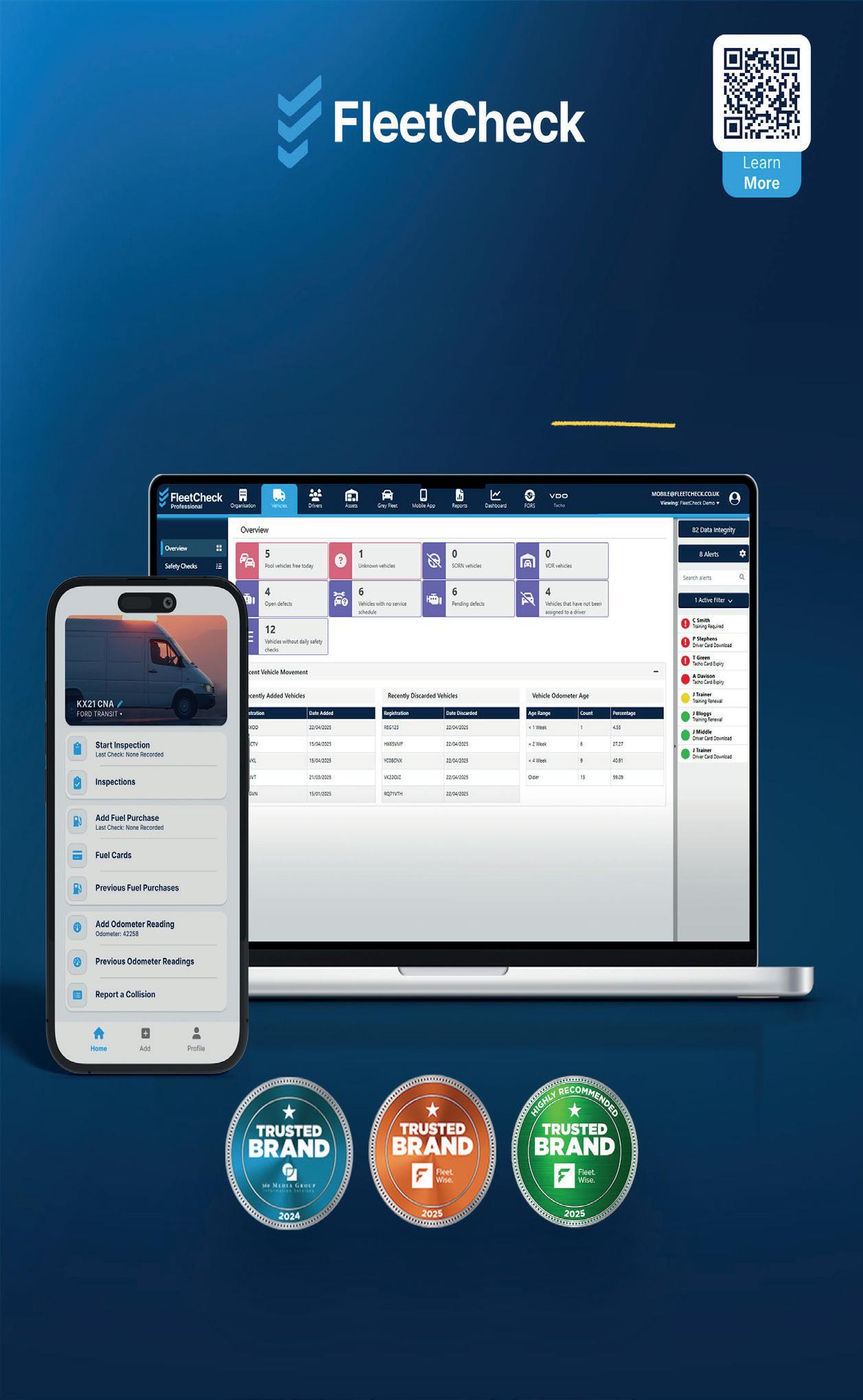
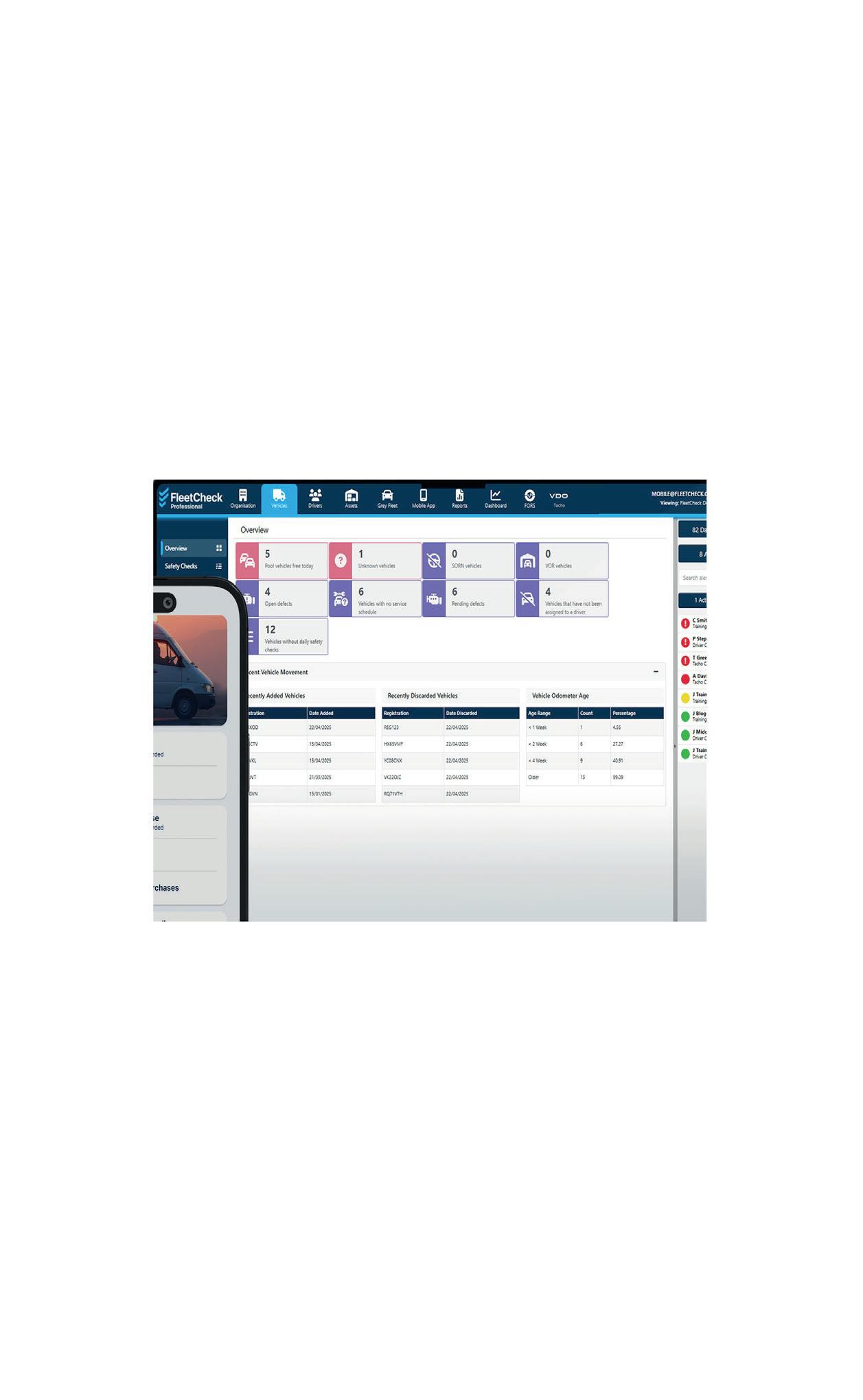

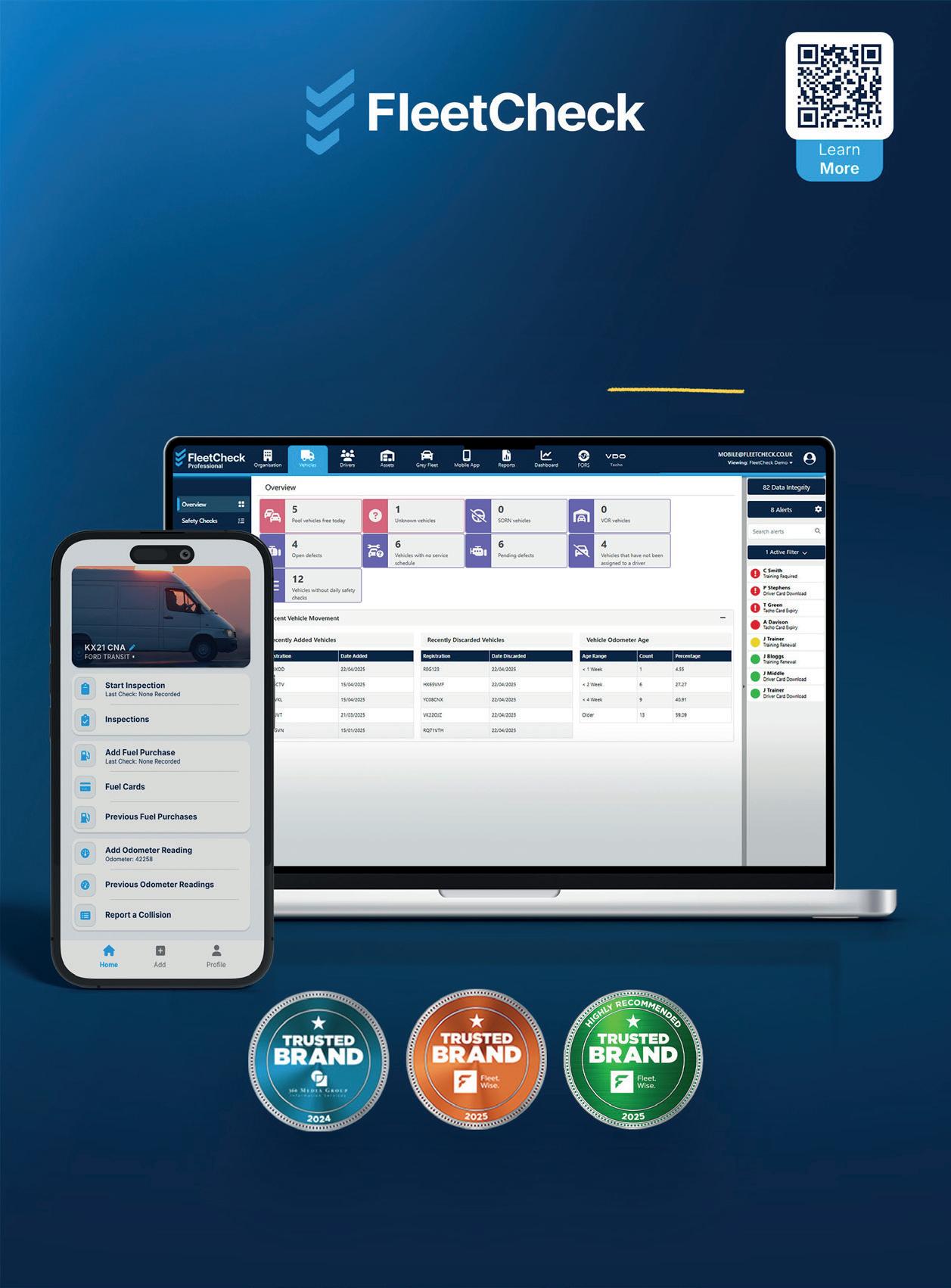
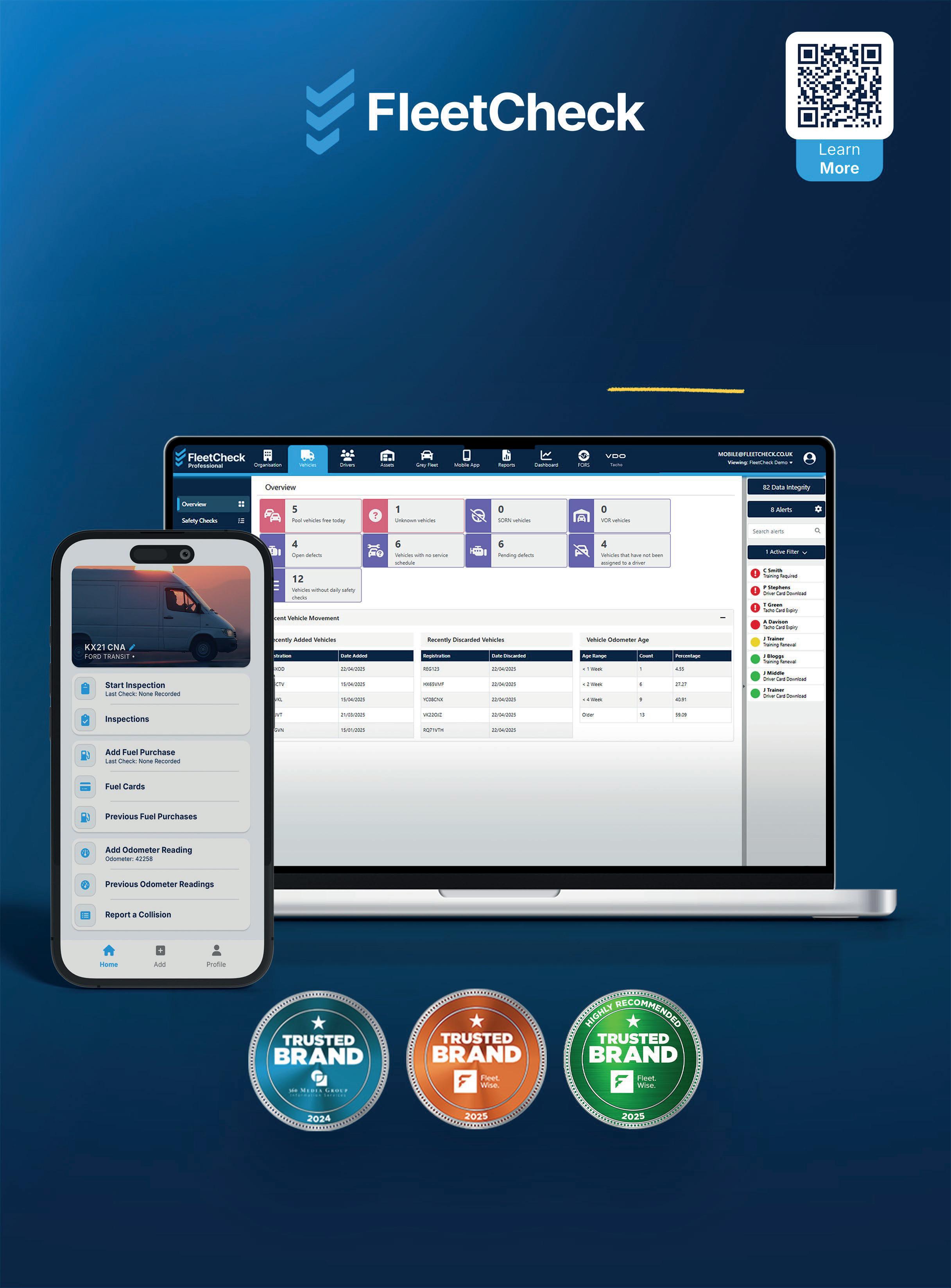
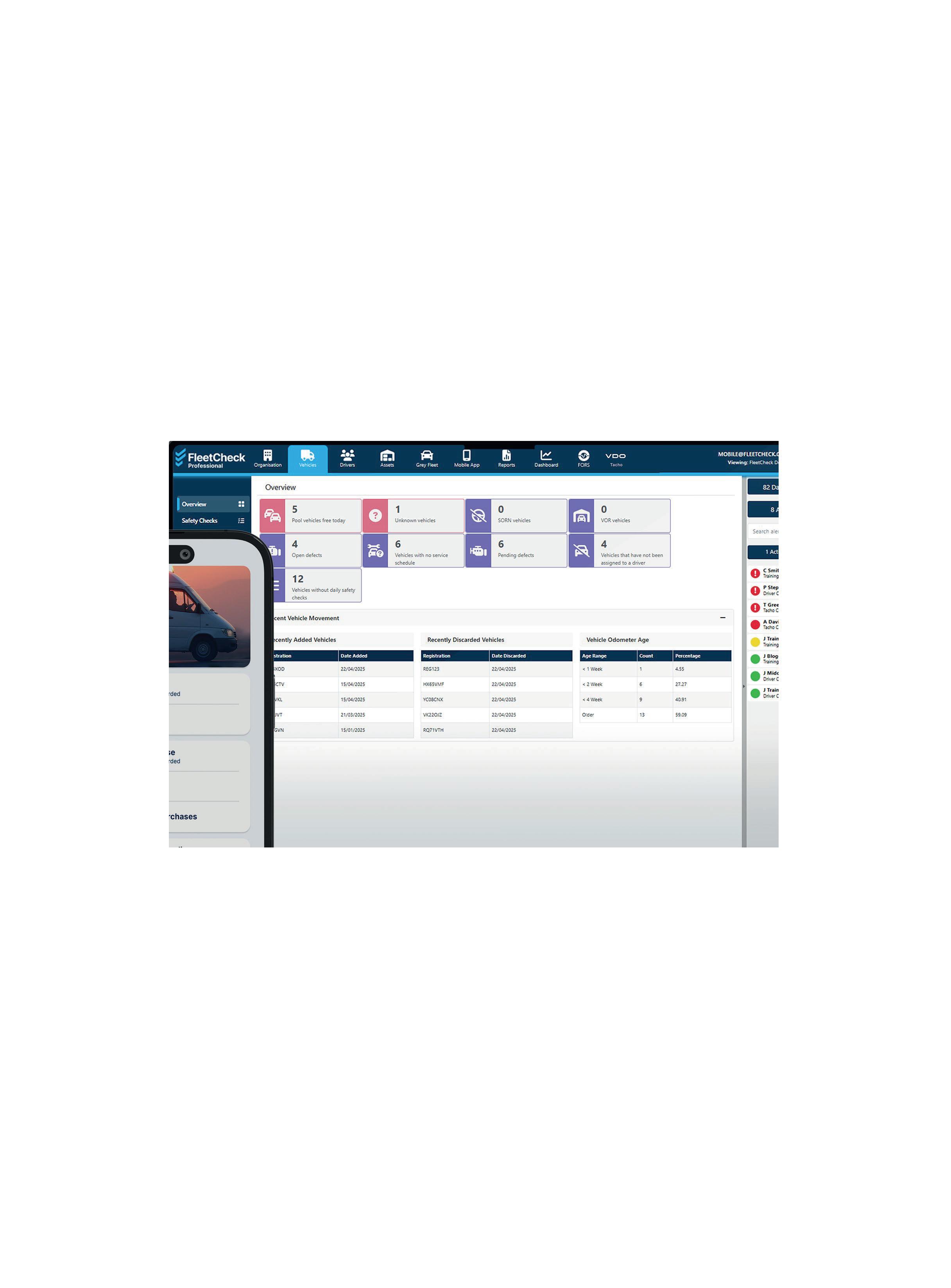

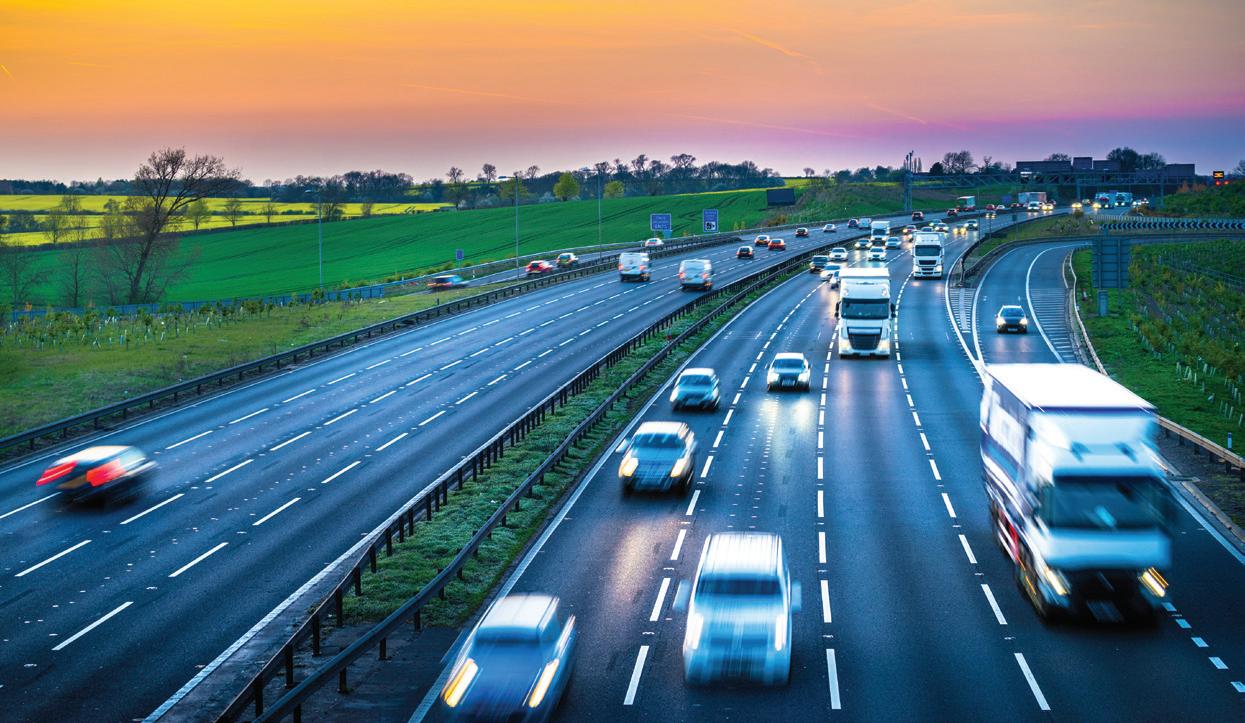
Fleet Intelligence
Why Data, Drivers and Trust Are Shaping the New Age of Fleet Management

Peter Golding, Chief Executive of FleetCheck, knows the fleet world
from the ground up. Starting his career as a vehicle technician, then running successful garages, Golding’s career evolved into a mission: to bring structure, compliance and clarity to fleet operations –especially in SMEs, where resource and expertise can be scarce.
The spark behind FleetCheck came from an everyday scenario. “I was asked how a company managed their fleet. They said, ‘Keira does it.’ Keira, it turned out, was the 18-year-old receptionist answering phones – completely untrained in fleet responsibilities,” he recalls. It was then he realised that fleet management was often being handled by those least prepared, simply because no one else
"To unlock cost savings, you really need to know what your fleet is doing"
was assigned the job.
Most SMEs don’t have dedicated fleet managers, often resulting in under-maintained vehicles, legal risks and financial losses. Peter emphasised that reactive maintenance leads to vehicle downtime, which is extremely costly, ranging from £600–£1800 per day. This was a key insight that drove the creation of FleetCheck – a system built to bring control and visibility to businesses who previously relied on instinct or spreadsheets.
FleetCheck became more than a software solution – it was designed as a support system for anyone tasked with fleet responsibilities, regardless of their experience.
From paper trails to proactive systems
Golding’s vision was clear: make managing vehicles and drivers easier, more compliant, and more dataled. “We don’t start by showing you the system, we ask what your fleet’s challenges are. That’s how we get to the real pain points,” he says.
“One such pain point is the lack of fleet transparency, meaning that fleets may not have access to the right data, in the right place. Our approach is to understand how we can consolidate and format data that enables proactive rather than reactive decisions.”
THE ORIGIN STORY
Driver resistance to inspections is a known issue, often stemming from unclear expectations or lack of support. Peter acknowledges that it’s typically a company culture issue – but one that technology can solve. “A weekly or daily check doesn’t need to be a burden,” he says. “We’ve made it as easy as using your phone’s camera or checking a message.”
The FleetCheck Driver app allows drivers to complete walkaround inspections, report faults and even access approved-supplier contact info instantly. This not only keeps vehicles compliant, but also gives drivers confidence that issues will be handled, not ignored.
The software consolidates everything - fuel data, telematics, maintenance, tachograph, key dates, licencing and so much more- into one central platform. It's been used for over 30 million checks, empowering drivers and giving them a sense of autonomy. It can even be used to acknowledge policy documents – all in real time.
The result? Fewer surprises, more uptime, and a fleet that is far easier to manage.
The ZEV Mandate and the ageing fleet challenge
“The Government's ZEV Mandate is not mirroring market behaviour, and a business that is focused primarily on efficiency is highly likely to run their
"Our sales team are focused on identifying fleet pain points, and how we can consolidate and format data to enable proactive, rather than reactive decision making"
"The assumption is that fleets have access to good data, however, the driver's input is critical to reducing vehicle downtime"
petrol and diesel-powered vehicles for longer.”
The ripple effect? Fleet renewal delays, older vehicles on the road, and an increased risk of unplanned maintenance or legal non-compliance. Replacement cycles that once occurred every three to four years now stretch to five or six, with some vehicles exceeding 100,000 miles and outliving their warranties. In this environment, software visibility becomes not just useful, but essential.
Future fleet:
Complexity is the new normal
For light commercial vehicles, electrification remains complex. While electric company cars often make sense due to tax breaks and regular routes, van fleets face real-world operational disruptions.
“Range, payload limitations and daytime charging make electric vans harder to deploy effectively,” Golding explains. “And, if your driver is on the road for work, pulling into a charger mid-shift is a productivity killer.”
What we're hearing from the market is that many are waiting for battery technology to improve –especially for fleets requiring heavier payloads or longer journeys. This creates a mixed fleet approach, with operations running both newer and older models – each with different data outputs and compliance needs. FleetCheck provides the digital toolkit to manage it all under one roof.
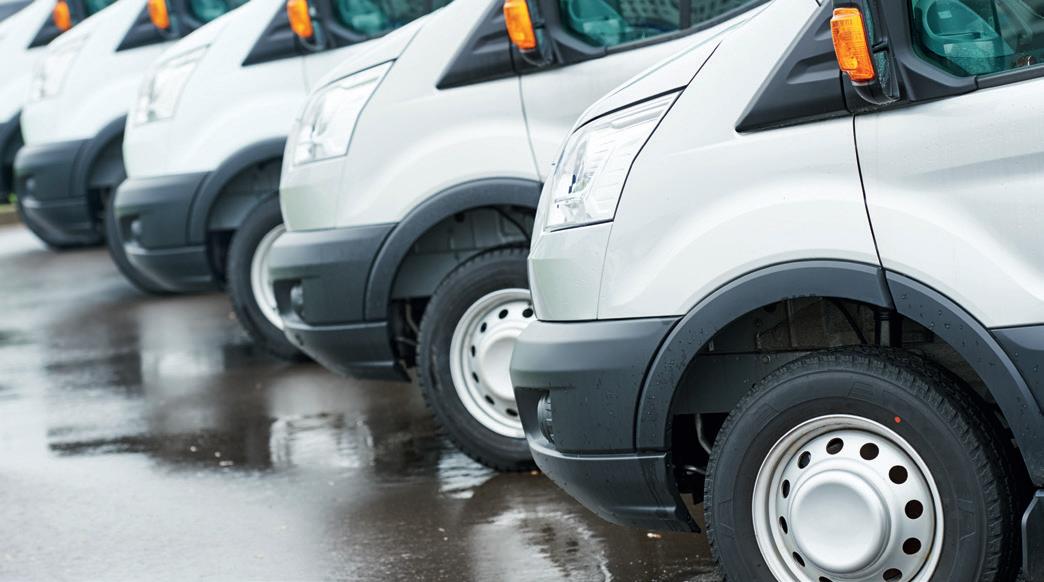
100 Trusted Brands in Fleet
"Trust is something you earn by being reliable and delivering on your promises. Loyalty is the reward."
The power of fleet management software: From fragmented data to strategic insight
Fleet management software has evolved into the central nervous system of operations.
Many fleet operators still face fragmented data between leasing, telematics and fuel cards. The solutions exist and are relatively simple to deploy – but many fleets don’t realise how easily their systems can be integrated.
FleetCheck supports over 200 data sets, enabling real-time data consolidation across fuel, mileage, leasing, telematics and more. The benefits include time savings, cost reduction, compliance alerts, and improved decision-making through clear, actionable insights.
“The biggest risk to business isn’t missing a data point – it’s failing to act on one,” says Golding. “Our software helps fleets see what’s urgent and take immediate action.”
Closing the loop: Operational policy and ‘while-you-wait’ repairs
Even the best data is wasted if a driver reports a fault but continues driving due to uncertainty or lack of authorisation. FleetCheck supports this with built-in policies and contact data from its own system and third party partners, including Epyx (who run the 1Link network). This enables drivers to get minor issues sorted immediately at approved
service centres. This reduces downtime, improves compliance and empowers drivers to be proactive, without waiting for central approval.
Onboarding without the headache
For those moving from spreadsheets or legacy systems, adoption anxiety is real. But FleetCheck makes the switch painless. Every new client receives a 90-day onboarding programme, covering data migration, tailored training and full system setup.
“Our software is powerful, but more importantly, it’s usable. We’ve designed it so that someone can be confident using it within an hour,” adds Golding.
Trust built-in, loyalty earned
FleetCheck is recognised as a Highly Recommended brand in the 4th edition of 100 Trusted Brands from FleetWise. Peter is naturally delighted. “It’s a recognition of what we’re delivering – and the service behind it.”
FleetCheck doesn’t just provide software, it becomes an extension of the fleet department. Its customer success team, the largest in the company, provides training, onboarding and checkins. Their approach has led to customer retention rates rarely seen in tech, with many fleets staying for 10–15 years.
Final word: Unified data you can act on Fleet management will never be simple – there are too many moving parts. But complexity doesn't have to mean chaos.
Today's fleet managers aren't looking for tools that promise to make their job "easy" – they know better. Whether managing 50 vehicles or 30,000, they want complete visibility and systems that turn reactive scrambling into proactive decision-making.
FleetCheck transforms fleet management from fragmented data streams to unified intelligence, from constant firefighting to strategic foresight. You can't manage what you can't see, and you can't act on what you discover too late.



FleetCheck
FleetCheck is a leading provider of fleet management software, helping Fleet Managers gain full visibility over their vehicles and drivers. With nearly 20 years in the industry, FleetCheck has become a trusted provider for over 2,000 companies, helping fleets take control of their maintenance, compliance, and driver management. Our solution delivers real-time fleet visibility, clear audit trails, and automated alerts – all while eliminating the risks and administrative burdens that come with spreadsheets and paper-based systems.
Led by an industry-expert team, FleetCheck is committed to supporting clients throughout their journey. Our solutions are fit-for-purpose and tailored to the real-world needs of fleet operators, delivering instant value.
Fleet management made easy
FleetCheck’s intuitive, award-winning software consolidates key data into one central platform, so fleet managers can easily track, manage, and report on essential fleet information. From driver details and vehicle inspections to fuel cards and collision management, FleetCheck removes the guesswork, so you can stay compliant, efficient, and in control.
Complete fleet visibility beyond spreadsheets
FleetCheck offers a comprehensive 360-degree view of your entire fleet, with access to over 600 pre-built reports and seamless integrations with leading 3rd party fleet data sources. Our digital solution simplifies compliance and reduces inefficiencies, while helping you stay ahead of safety regulations, maintenance schedules, and accreditation requirements – all with ease.
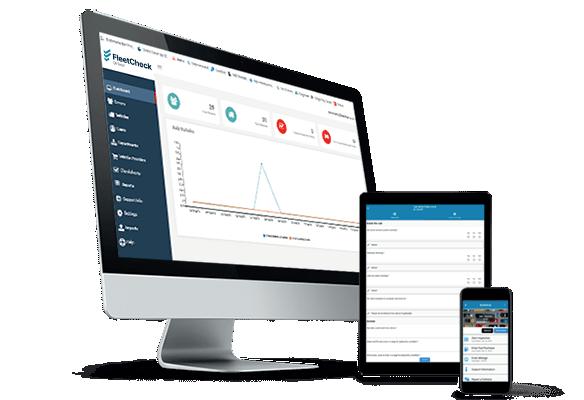
Industry recognised FleetCheck is the only fleet management software recommended by FORS and is also recognised for DVSA Earned Recognition and CHAS. Additionally, it’s the preferred choice for the UK’s leading telematics providers and features an industry-first integration with VDO, Europe’s largest tachograph analysis provider.
More than just software, FleetCheck is a trusted partner dedicated to helping clients maintain full control over their fleet operations.
FACT FILE
● 284K safe drivers actively managed
● 267K compliant vehicles tracked across the UK ● Nearly 30 million vehicle inspections powered by FleetCheck Driver App ● Trusted Brands winner 2 years running
● UK's Most Recommended Fleet Management Software ● Client retention rate of 92.44% ● Multi-award winning platform
● Cloud-based solution for accessible fleet management



Optimize
Optimize, by the Algorithm People, is a state-ofthe-art software solution designed to help fleets optimise, decarbonise and transform. The powerful algorithms it utilises exploit AI technology to deliver proven cost reductions and productivity increases, all the while helping to cut emissions right across your fleet.
Optimize software saves an average of 20% for the 10,000+ fleet vehicles on which it is employed.
FACT FILE
● Optimize software offers: GPS tracking, Route optimisation, Statistics dashboards, dedicated account managers and much more
● Its five steps to success help businesses to be more efficient ● Prices start at 99p pv/pd vehicle per day

"Optimize software saves an average of 20% cost for the 10,000+ fleet vehicles on which it is employed"
Jaama
Founded in 2004, Jaama is a UK-based fleet management software specialist best known for its Key2 platform, which manages over 1.5 million vehicles and assets. Serving fleets of all sizes across car, van, truck, plant, and leasing sectors, Jaama delivers bi-annual
epyx
Epyx has been a leader in digital solutions for the automotive sector for more than two decades, and today operates in the UK, Australia and various countries across Europe. Its market-defining products are the 1link platforms, which improve the efficiency of car and van fleet operators and their suppliers, covering key functions including vehicle maintenance, hire and remarketing.

"Serving fleets of all sizes across car, van, truck, plant, and leasing sectors"
software updates and robust compliance tools. Following a 2023 acquisition by entrepreneurial investors, the company continues to invest in innovation and user experience, reinforcing its position as a trusted, future-focused partner in fleet operations.


Ebbon Automotive
Ebbon Automotive has an unrivalled history of developing and delivering software solutions for the automotive community. With market leading presence in the UK and Europe, its products improve the efficiency of procurement and delivery processes for all key stakeholders in the supply chain. Through advanced automation and intelligent relationships, Ebbon Automotive connects the global automotive community.
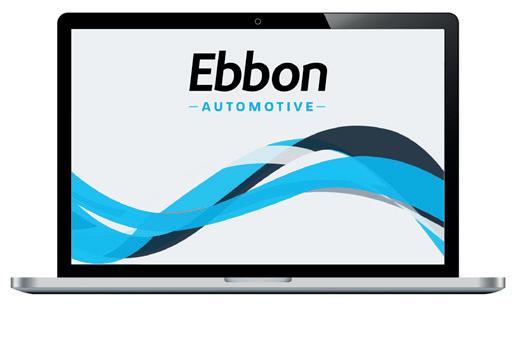
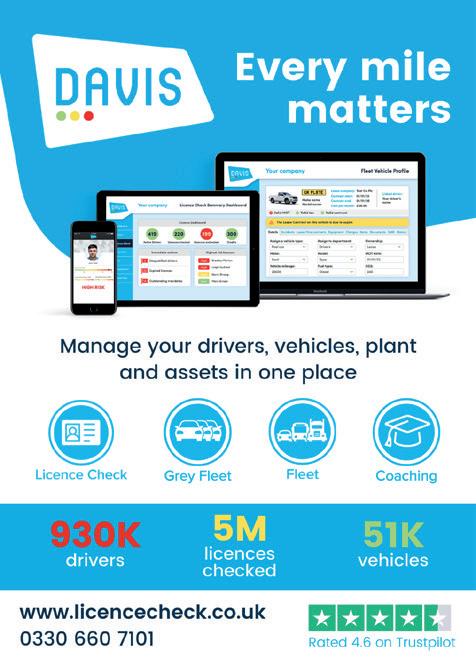
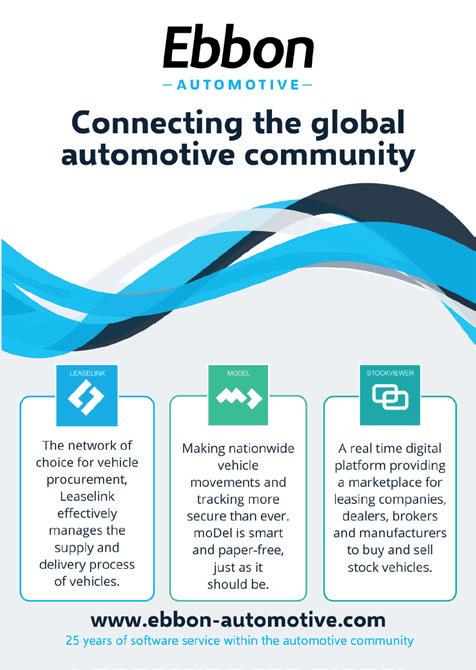


DAVIS | Licence Check
DAVIS is an award-winning platform that provides integrated services to effectively manage occupational road risk. From licence checking to fleet management, DAVIS automates tasks and analyses data highlighting risk in a simple, actionable way. With intelligent integration and powerful risk scores, DAVIS securely stores driver and vehicle information in one place, providing a universal view of risk 24/7.
FACT FILE
● DAVIS Licence Check – Instant licence results to highlight high risk drivers ● DAVIS Fleet –Manage vehicle lifecycles, mileage, and vehicle inspections ● DAVIS Grey Fleet – Automates employee-owned vehicle checks ● DAVIS Coaching - App-based courses for improved driver safety and knowledge ● DAVIS Driver Audit – Identify and qualify occupational road risk
r2c is a leading provider of connected fleet and workshop management software, having specialised in HGV and commercial vehicles for over 20 years.
We have more than 125,000 users across 73,000 fleets and 2000 workshops around the UK. Additional products include a walk-around check app, digital jobsheets and SMR authorisation tools.
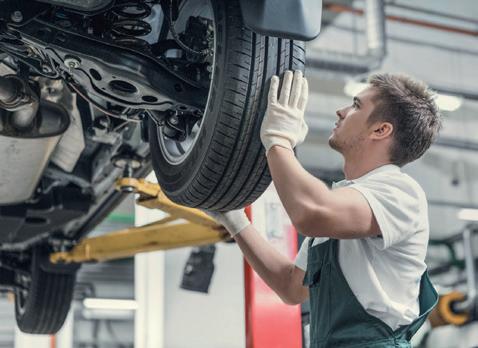
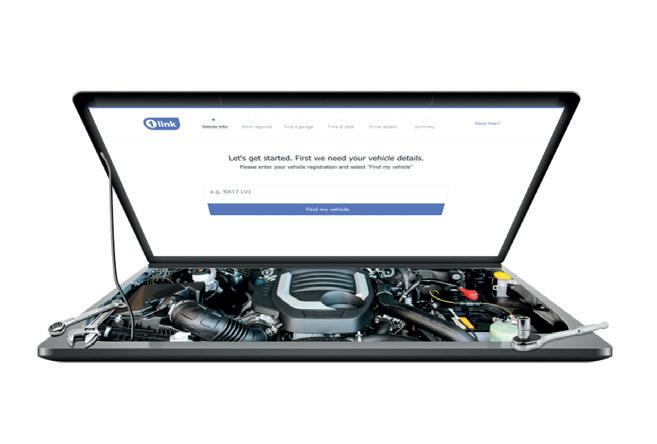


1link Service Network r2c
epyx’s 1link Service Network is used by fleets with more than four million cars and vans. These fleets use 1link to manage their servicing, maintenance and repair processes. 1link works with thousands of service providers, and nearly all the major motor manufacturers via their franchise networks.
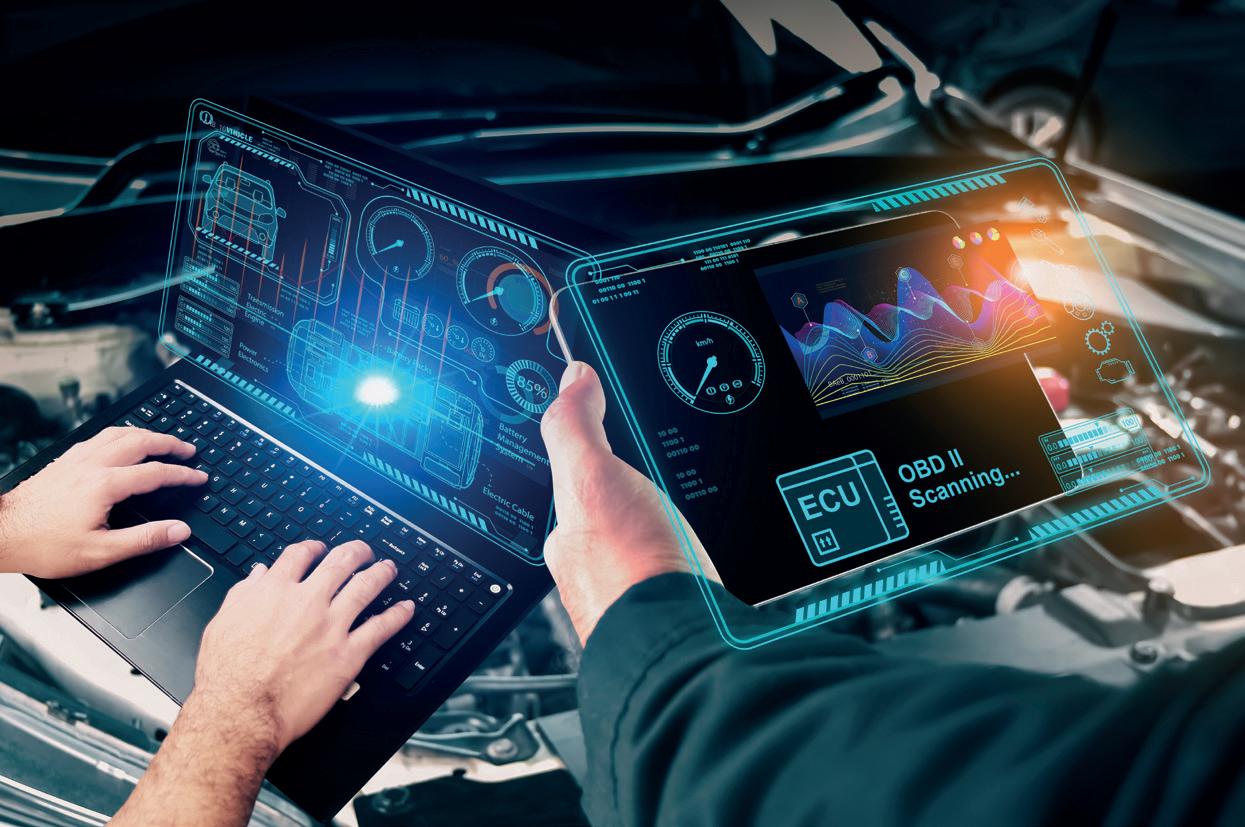
Fleet Software Shortlist

● www.bynx.com
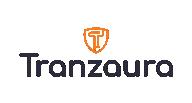
● www.jaama.com Highly Recommended

● www.1link.co.uk

● Asset Works www.assetworks.com
● www.tranzaura.com Highly Recommended

● DAVIS Licence Check www.licencecheck.co.uk

● Ebbon Group www.ebbon-group.com
Scan here to get the trusted shortlist as a downloadable pdf

● Epyx - www.epyx.co.uk

● FleetCheck www.fleetcheck.co.uk
Highly Recommended

● R2C Online - www.r2conline.com

● Microlise www.microlise.com

● www.chevinfleet.com
Fuel Cards
Paying for petrol or diesel with a company fuel card has been happening for decades, but with the EV revolution, things got more complex… and much smarter!
Fuel cards offer significant benefits for managing company vehicle fleets, enhancing both efficiency and cost control. By providing drivers with a convenient and cashless way to purchase fuel, these cards streamline the refuelling process and reduce the administrative burden for fleet managers. Each transaction is recorded in detail, and delivered to driver and fleet team via an intuitive dashboard. This allows for precise tracking of fuel expenses, which assists with budgeting and financial planning.
Additionally, fuel cards often come with discounts and loyalty rewards, contributing to direct cost savings for the business. They also improve security, minimising the risk of fraud, by eliminating the need for cash transactions and enabling the monitoring of fuel purchases to detect any irregularities.
Many fuel cards are integrated with fleet management systems, providing real-time data on fuel usage, vehicle performance and driver behaviour. This data can be analysed to optimise routes and vehicle performance, highlight bad driving and reduce overall operational costs.
By consolidating fuel expenses and providing valuable insights, fuel cards are an essential tool for managing company vehicle fleets, promoting financial prudence and operational efficiency.
Drivers will also be relieved of the time-consuming chore of doing monthly vehicle expenses, and, in the global transition to EV fleets, the best fuel cards can be used for petrol, diesel and electric refuelling/ recharging.
Finally, as more EV drivers mix home and public charging, a number of fuel cards make it easy to reclaim the cost of domestic electricity incurred for company vehicles, by paying the supplier direct.
“Additionally, fuel cards often come with discounts and loyalty rewards, contributing to direct cost savings for the business"


TTom
Rowlands
Managing Director of
Global EV Solutions, Corpay, including UK brand, Allstar.
From burden to breakthrough: How Allstar Chargepass is revolutionising fleet charging
he EV transition has brought with it both opportunities and challenges for UK fleets. Among them, the administrative burden of managing electric vehicle operations has consistently ranked as the number-one pain point for fleet managers.
In this exclusive interview, Tom Rowlands, Managing Director of Global EV Solutions, Corpay, including UK brand, Allstar, shares how the firm's Allstar brand has evolved from a trusted fuel card provider into a powerful, all-in-one charging solution, that’s simplifying EV fleet management at scale.
Tom, Allstar was recently named a Highly Recommended brand in the Trusted Brands report. Can you tell us how it supports fleet efficiency?
Tom Rowlands: Absolutely. Allstar Chargepass is an integrated product that enables fleet operators to manage traditional fuelling, public EV charging, and home charging under one system. It provides access to the UK’s largest proprietary fuel network for ICE vehicles, and the UK’s largest and fastest EV roaming network. For EVs, it also enables home
“Ultimately, our goal is simple: to make it effortless for fleets to charge anywhere, anytime.”
Tom Rowlands, MD, Global EV Solutions at Corpay
charging reimbursement directly to utility providers –ensuring drivers are never left out of pocket. It’s designed to give fleet managers full visibility and control, while reducing complexity.
Home charging sounds like a crucial part of this. Does the reimbursement model drive greater home-charging adoption?
Yes, significantly. Our data shows that drivers with access to home charging do about 80% of their charging at home. Direct reimbursement – without the need for drivers to pay upfront and wait weeks for expenses – is a major factor. It’s not just about cost; it’s about convenience and avoiding disruptions to a driver’s day.
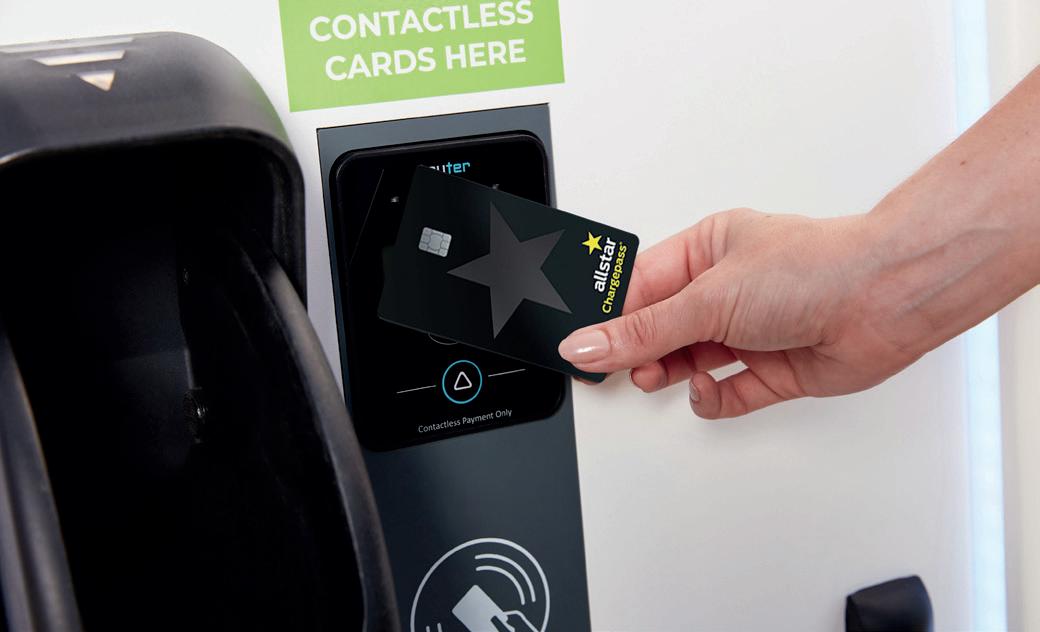
And what about drivers who can't install a charger at home?
That’s a great question. Not every driver has off-street parking or the ability to install a home charger. That’s why we’ve partnered with Co Charger to offer a 'near home charging' solution. It gives drivers access to thousands of shared residential chargers across the UK – typically within walking distance of their homes. It's a smart and scalable alternative, especially for urban drivers, and it allows for convenient overnight charging without the premium cost of rapid public chargers. While slightly more expensive than charging at home due to a small host fee, it’s usually far more affordable than standard public charging. For fleets, this adds another layer of flexibility and cost efficiency.
Do fleet policies have an effect on electric vehicle charging behaviours too?
Very much so. Larger fleets often have formal policies mandating home charging where possible. Smaller fleets tend to be more focused on the value proposition and savings. We support both by surveying fleets to identify which drivers have access to driveways or already have chargers. We even help facilitate installations through partners like Indra.
“Fleet electrification is complex, but we’re removing the biggest barrier –admin burden – by giving managers the tools to manage fuel, EV home and workplace charging all in one platform.”
How does Allstar help to manage all this operationally for fleet managers?
Our Allstar Online tool enables fleet managers to onboard and offboard drivers, view services – including fuel and EV home charging – with a single click, and get detailed reports on charging behaviour. It’s intuitive, modular and eliminates the need for separate platforms or tools.
Simplifying admin is critical. How does invoicing work?
We provide one consolidated invoice that includes all drivers and services, with full VAT breakdowns. No receipt capture is needed. That’s a huge admin win, especially for businesses managing both ICE and EV vehicles.
Your recent acquisition of PayByPhone adds another layer. What’s the vision there?
That’s about streamlining even more aspects of fleet mobility. Parking transactions can now be managed through Allstar and included in the same invoice. It’s about creating a seamless experience –from charging to parking – with a single payment method.
“Driver convenience is at the heart of our offering – from starting the day with a full charge at home, to smart routing via our award-winning app, Allstar Co-Pilot, removing receipt admin, and even enjoying perks like discounted refreshments at partner sites.”
How is AI playing a role in the evolution of the platform?
Right now, AI is mostly used in customer service to handle complex queries related to EVs and home charging. But we’re expanding its role to include route optimisation, pricing analysis and predictive tools, to make the platform smarter and more proactive. It’s a fast-moving area with a lot of potential.
Looking ahead, what’s next for Allstar Chargepass?
Expanding the EV roaming network remains a big priority – more locations, more coverage. We’re also deepening partnerships with CPOs to use data insights to drive better pricing and utilisation. And we’re developing the workplace charging offering further to support more fleets. Ultimately, our goal is simple: to make it effortless for fleets to charge anywhere, anytime.
Finally, in a report focused on trust, how does Allstar Chargepass earn it?
Trust is built through reliability and delivery. In payments, even a single failed transaction can cause drivers to switch cards. So, we prioritise stability, seamless experiences, and transparency. We listen to our customers – big and small – and integrate their feedback into our roadmap. Where we can’t solve something, we’re honest about why. That’s what builds long-term trust.
From removing EV admin headaches, to enabling overnight charging just steps from home, Allstar Chargepass is delivering a future-proof solution for modern fleets.
For thousands of UK drivers, the future of fleet charging is now – anytime, anywhere.
“We’re deepening partnerships with CPOs to use data insights to drive better pricing and utilisation. And we’re developing the workplace charging offering to support more fleets.”
Tom Rowlands, MD, Global EV Solutions at Corpay
Tom Rowlands, MD, Global EV Solutions at Corpay
Tom Rowlands, MD, Global EV Solutions at Corpay
100 Trusted Brands in Fleet
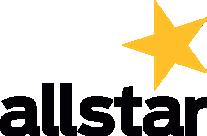

Allstar Chargepass®: Keeping businesses moving
Allstar Business Solutions has kept 50,000 UK businesses, large and small, on the move for over 40 years, by creating innovative payment solutions. Our experience has helped us create our most innovative solution yet, Allstar Chargepass®:
Chargepass is the UK's only single card payment solution for businesses that does it all: fuel, public charging, home charging, reporting, controls and so much more.

FACT FILE

● Allstar has 40 years of experience
● National provider for fuel and public charging payment methods in the UK
● UK’s only single combined card for both fuel and public charging
● Accepted at 90% of the UK’s fuel sites
● Fuel network includes low-cost supermarkets and Discount Diesel sites
● Access to more than 65,000 chargers at over 24,000 UK locations
● Home charging solution pays energy suppliers directly
● Award-winning Allstar Co-Pilot app available to all drivers on Allstar network
● Allstar Co-Pilot helps drivers find a charger, plan a route and pay for electric charging
● Allstar Online portal helps businesses stay in control of costs
Allstar Chargepass® customers benefit from:
Fast businesses need even faster charging. Don't let charging worries slow your drivers down. Thanks to Chargepass, your drivers can pay for business electric charging with the UK's largest and fastest electric charging payment network.
Home charging. Solved.
Allstar Homecharge automatically and accurately pays for all your drivers' home charging costs* directly to their energy supplier. No more out-of-pocket drivers. No more complicated expense claims. And no more home-charging headaches.
Simple fuel payments.
If your business is not quite ready to go electric, your drivers can use Chargepass on the UK's largest fuel card network, including all major fuel brands and access to 90% of the UK’s fuel sites. With Allstar Chargepass, drivers also get access to low-cost supermarket sites as well as over 1,600 Discount Diesel** sites.
Allstar Online
Our easy-to-use dashboard gives you one HMRC-compliant invoice and one simple way to report on your spending.
Flexible features
Add useful extras – like vehicle recovery, payment at tolls and more – as and when your business needs them.
Allstar Co-Pilot
Our award-winning Allstar Co-Pilot mobile app*** helps drivers plan their journey, by showing the nearest fuel sites and public chargers. Plus, get personalised routes tailored to keeping EV drivers moving. You can also charge and pay for public charging at over 90% of locations.
Allstar Chargepass® has you covered if you decide to go electric, making managing a mixed fleet easier. To find out more, head to allstar.co.uk or give our friendly team a call on 0345 266 5101



The UK’s one and only business payment card capable of the hat trick: fuel, home charging and public charging. No wonder 50,000 UK businesses trust Allstar to keep their drivers winning every day. Scan to find out more or search ‘Allstar Chargepass’
bp Fleet Solutions – for all your mobility needs

bp Fleet Solutions understands that fleets come in all shapes and sizes, which is why they’ve created a range of fuel cards designed to meet the different needs of customers.
No matter the fleet size or type of vehicles and fuels, bp designs bespoke fleet solutions for businesses, to meet their specific operational needs and improve efficiency. bp offers competitive pricing, an expanding fuel and charge network, access to lower-carbon energies and a wide range of fleet-management tools.
"bp offers competitive pricing, an expanding fuel and charge network, access to lower-carbon energies and a wide range of fleet-management tools"

Fuelcards

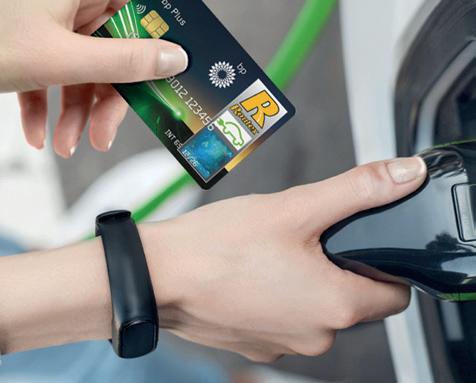
● Tailored solutions for fleets of all sizes ● Low-carbon fuels and alternative energy solutions ● Network of 3500+ fuel stations in the UK ● 40,000+ EV charge points in the UK ● Fuel and Charge mobile app ● Combined solutions for fuelling and charging ● Fleet management tools ● Comprehensive digital solutions ● Competitive pricing, loyalty rewards and discounts ● Advanced reporting and security controls
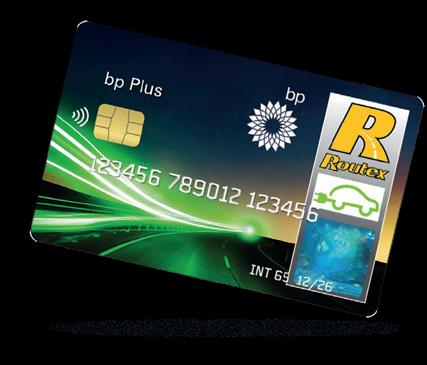
Tailored solutions for mixed-energy fleets. Fuel efficiency across an expanded network, with comprehensive online tools and support. for fleets of all sizes.
Scan here to find out more
FACT FILE



●







Fleet and Risk Services
Dozens of great companies are committed to making your fleet management experience easier, better and safer. Here are the 18 most trusted brands in these sectors
Vehicle fleet services offer a wide range of benefits to busy fleet managers, that enhance the operational efficiency and costeffectiveness of their business.
By outsourcing the bulk of their fleet management, companies can focus on their core activities, committing much less resource to maintaining and optimising their vehicle fleets. The companies offering these focused services employ industry experts to handle multiple disciplines. These typically include: vehicle acquisition, maintenance, renewal and compliance, ensuring that fleets are kept in optimal condition, reducing downtime and repair costs.
The best fleet services also provide comprehensive data analytics, offering deep insight into fuel consumption, route optimisation and driver behaviour. These insights help the fleet manager to make informed decisions, regarding improved fuel efficiency and safety.
Fleet services also often deliver bulk purchasing power for fuel, parts and services, leading to significant cost savings. Likewise, hands-on
experience with other businesses – for example, in EV transition – often means that any element of trial-and-error is removed from fleet decisions.
In addition to all those benefits, they ensure regulatory compliance, mitigating the risk of fines and legal issues.
Vehicle fleet risk-management services enhance safety and compliance, reducing accidents and legal liabilities. They provide driver training, risk assessments and real-time monitoring, improving driver behaviour and vehicle performance.
These services also lower insurance premiums and operational costs by mitigating risk, ensuring a safer, cheaper and more efficient fleet operation.
“Vehicle fleet risk-management services enhance safety and compliance, reducing accidents and legal liabilities"

Holman Celebrating 100 years of 'Driving What’s Right'
For over a century, Holman has been synonymous with trust, expertise, and innovation in the automotive industry. This family-owned enterprise has grown into a global leader in fleet funding and management, delivering tailored solutions grounded in value, transparency, and agility. Bringing over 35 years of experience to the UK market, Holman earned its status as a Trusted Brand by prioritising customer satisfaction, and working closely with its customers to understand their unique challenges and objectives, ensuring every solution is designed with their goals in mind. At the heart of Holman’s ethos are transparency and adaptability, which drive its ability to offer comprehensive fleet solutions, from acquisition to disposal. By empowering customers to maximise the value of their fleets, Holman ensures long-term success and efficiency.
Holman’s commitment to innovation and excellence has earned it industry-wide recognition, including accolades such as the Innovation in Cost Reduction award at the 2024 Great British Fleet event and Fleet Management Company of the Year at the 2025 WhatVan? Awards
Holman leverages its global expertise to help customers navigate challenges like transitioning to zero-emission electric fleets. By anticipating market trends and offering adaptable solutions,
“Holman leverages global expertise to assist customers in overcoming challenges, including the transition to zero emissions through an electric fleet"


“Holman has become a leader in funding and fleet management, setting the standard for excellence, and pioneering new pathways in fleet management and funding solutions"
Holman equips businesses to meet future demands. Underpinned by a culture of innovation and a dedicated workforce, it can pivot to meet the unique needs of its customers, ensuring value across every stage of a vehicle’s lifecycle. By redefining fleets as dynamic asset portfolios rather than just transactions, Holman empowers its customers by delivering the highest returns. Its adaptability and innovation drive equip it to excel in any environment. This distinctive blend of legacy, global reach, and unwavering customer-centric values, cements Holman’s position at the forefront of the industry.
Leasing
Holman provides a range of leasing and financing options, with a focus on its finance lease offering. Holman’s comprehensive management services empower the customer with complete cost transparency and decision-making flexibility over their vehicles. Unlike predefined contracts from other providers, Holman’s solutions adapt to customer requirements, while allowing them to retain all the profits from vehicle sales. The growing popularity of finance lease is evident in Holman’s significant growth. This has elevated it three positions this year, to 16th place in the FN50
SMR (Service, Maintenance, and Repair)
Holman expertly manages SMR for an extensive fleet of cars, vans and specialised vehicles.
Supported by a dedicated in-house team of 80+ experts, bolstered by advanced digital systems, and its own garage network of over 2000 locations, Holman ensures thorough oversight of every stage in the repair process. True to Holman’s values, all costs are transparent, providing fleets with clear insights and opportunities for efficiency gains.
Portfolio Management
Holman’s unique Portfolio Management solution provides regular, individual assessments of each vehicle’s performance, cost-effectiveness and overall suitability. This encompasses a comprehensive analysis of in-life expenses, residual value and considerations of time spent on fleet. It guides strategic decisions on de-fleeting and replacement, ensuring an optimised vehicle portfolio and maximum return on investment.
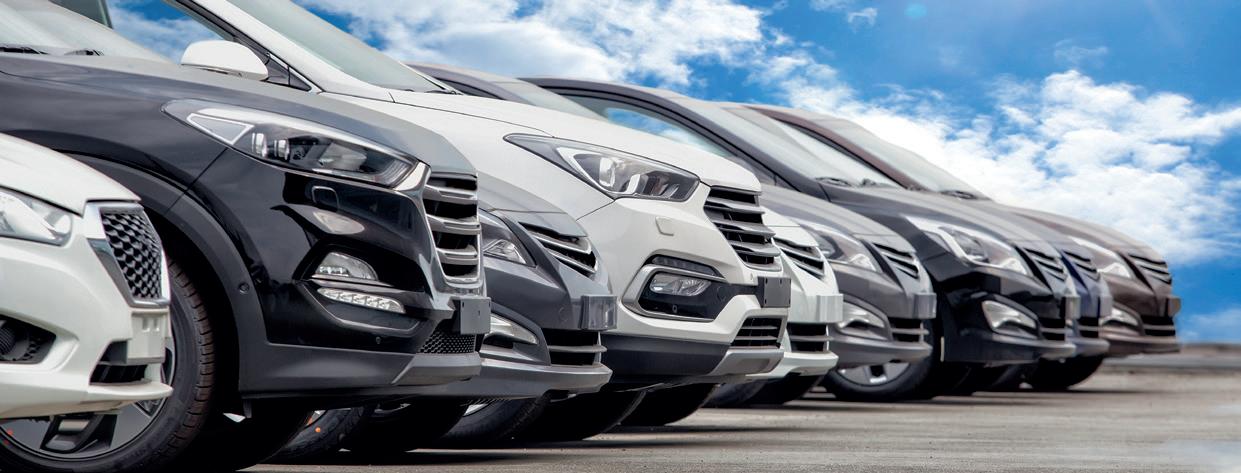


● www.fleetservicegb.co.uk

● www.ax-uk.com
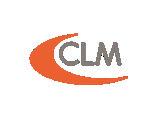
● www.clm.co.uk
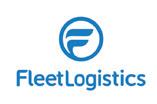

● www.ford.co.uk ● www.hertz.co.uk


● www.radius.com

● www.reddrivingschool.com

● Holman - www.holman.com Highly Recommended ● www.soppandsopp.co.uk

● IAM RoadSmart www.iamroadsmart.com Highly Recommended

● www.fleetlogistics.com ● www.optimizenow.ai



● www.theAA.com Highly Recommended

● www.fmg.co.uk ● www.traxallinternational.com ● www.drivetech.co.uk
● www.rac.co.uk

www.fleetassist.co.uk

www.fleetalliance.co.uk


Tracking and Telematics
Telematics and tracking systems are indispensable tools for modern vehicle fleets, as connected vehicle technologies have evolved to offer benefits in safety, efficiency and cost control. Here are the 12 most-trusted suppliers in the sector
Telematics provides comprehensive feedback on vehicle usage and driver behaviour, boosting productivity and safety levels, cutting costs and even easing the transition towards EVs.
These technologies enable real-time monitoring of vehicle locations, allowing managers to optimise routes and improve dispatching. This reduces fuel consumption, maximises driver efficiency and enhances delivery times. The ability to track vehicles in real-time also improves asset utilisation and can help to prevent theft by providing precise location data.
At a basic level, telematics and tracking simply require a ‘black box’ to be fitted to a vehicle and to watch the data flow in. However, the 12 mosttrusted brands in the sector take the science of telemetry far beyond that. Their clients are shown how to analyse the data and implement changes based on it. This information can be used to maximise the efficiency of their fleet operations.
In terms of safety, and protecting the business from reputational damage, Telematics and tracking systems enable fleet managers to monitor and address unsafe driving practices promptly. This reduces the risk of accidents, lowers insurance premiums and minimises associated costs.
The most comprehensive tracking systems incorporate dash and in-car cameras, which, in the event of an accident, can provide invaluable, indisputable evidence to speed up claims and apportion blame correctly. This can save weeks of frustrating administration and the incurring of unfair insurance costs.
Telematics systems also offer insights into vehicle performance and fuel efficiency, identifying, for example, fuel-wasting behaviours such as aggressive driving.
As well as helping the environment, fleet managers can reduce idle times and manage maintenance schedules more effectively, resulting in
“These technologies enable realtime monitoring of vehicle locations, allowing managers to optimise routes and improve dispatching"

lower operational costs and improved productivity.
Real-time tracking allows businesses to provide accurate delivery estimates to customers. This level of transparency and service builds trust and customer satisfaction.
In addition, Telematics systems can help to deter theft and facilitate the recovery of stolen vehicles, as well as help to ensure compliance with regulations such as working-time directives and emissions standards.
All this makes telematics a critical tool for modern fleets, and it’s even more powerful when the supplying company understands a fleet’s unique requirements in a detailed way. Thus, a trusting and transparent relationship between the fleet manager and tracking supplier maximises the benefits that the system delivers.
100 Trusted Brands in Fleet

Geotab
Geotab, the global leader in connected-vehicle and asset solutions, leverages advanced data analytics and AI to enhance fleet performance, safety and sustainability, while optimising costs. Backed by a team of industry-leading data scientists, engineers and AI experts, we serve over 50,000 customers across 160 countries, processing billions of data points hourly from more than four million vehicles. Data security and privacy are at the forefront of all we do. We’re trusted by Fortune 500 organisations and some of the largest public-sector fleets in the world. We also meet top cybersecurity standards. Visit www.geotab.com/uk, and follow us @Geotab.
Fleet Efficiency
Geotab enables fleet efficiency with smart asset
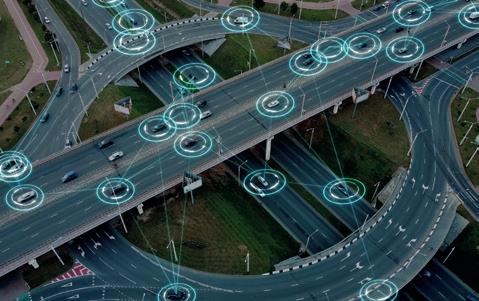

Webfleet
Webfleet, a trusted Bridgestone solution, supports over 60,000 businesses globally. For 25 years, it's provided fleet managers with cutting-edge tools for vehicle tracking, driver monitoring and route optimisation. By enhancing efficiency, safety and sustainability, Webfleet enables managers to boost performance and reduce costs, solidifying its position as an industry leader.
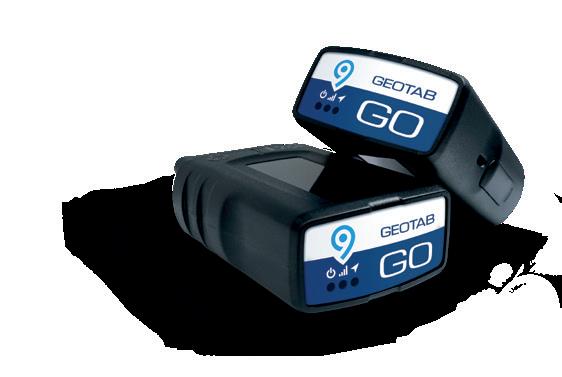
Geotab's versatile solution seamlessly scales, catering to the diverse needs of vehicles, people carriers and more. We're forging ahead with heightened efficiency, robust safety and staunch environmental stewardship.
Geotab's suite delivers – it’s where innovation meets operational excellence.
Responsible fleet management
Aligning with many fleet managers' core priorities of keeping their drivers safe and helping the environment, Geotab equips you with advanced technology. Integrated dash cameras and tailored coaching ensure driver well-being, with tools for electric-vehicle adoption to help you meet your sustainability targets.
Together, we're setting new standards for responsible, effective fleet management.
FACT FILE
● In 160 countries ● 50,000+ customers
● 20 years of experience ● Revolutionising fleet management ● 4m connected vehicles
● 75bn data points ● Data-driven success
● Empowering fleet managers to succeed
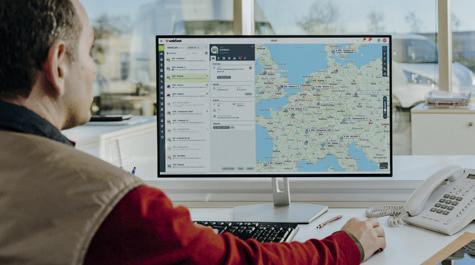
FACT FILE
"By enhancing efficiency, safety and sustainability, Webfleet enables fleet managers to boost performance and reduce costs"
● Innovative technology that streamlines fleet operations, driving productivity and costeffectiveness
● Reduces fuel consumption
● Ensures compliance and enhances driver safety ● A comprehensive suite of features
Lightfoot
An innovative full-service solution for fleets
Whether you’re running petrol, diesel, electric or mixed fleets, Lightfoot is an advanced all-inone performance partner, built to drive better results across the board. Comprised of an in-cab driver-coaching device, a dedicated app, and a comprehensive fleet management platform, Lightfoot is proven to deliver long-term benefits by making fleets safer, more sustainable and less expensive to operate.
Lightfoot’s award-winning technology connects directly with drivers via an intuitive dashboard device, giving instant visual and verbal feedback using a patented psychological ‘nudge’ system that encourages smoother, safer driving.
As driving performance improves, drivers can enter competitions, win prizes and compete in league tables through the Lightfoot app. This not only helps drivers to develop better driving habits, but also rewards and incentivises them for doing so, ensuring businesses experience lasting results within their fleets.
"The real-time coaching ensures drivers use their vehicles as efficiently as possible, creating a selfmanaging fleet where smoother, safer driving becomes the norm"
ICE solution
Getting more from every drop of fuel, Lightfoot’s real-time coaching puts drivers in control, helping them improve efficiency and safety from the driver’s seat. Smoother and safer driving becomes the norm and this translates to average fuel savings of 15%; a 45% reduction in vehicle wear and tear; 40% fewer collisions, and a 15% reduction in damaging carbon emissions.

“Lightfoot’s award-winning technology connects directly with drivers via an intuitive dashboard device, giving instant visual and verbal feedback”
EV solution
Driving style has a huge impact on EV performance. Lightfoot helps drivers get the most out of their range, typically boosting it by over 15%. The accompanying EV telematics suites makes it easy to manage charging expenses and create a better culture around charging in general, ensuring no electric fleet vehicle is left without power.
Dashcam solution
Lightfoot Vision is our fully integrated dashcam solution, combining the signature Lightfoot drivercoaching technology with advanced AI video telematics to deliver the ultimate fleet-safety package. Lightfoot Vision gives you complete visibility and is a powerful tool to tackle distracted driving in real-time.
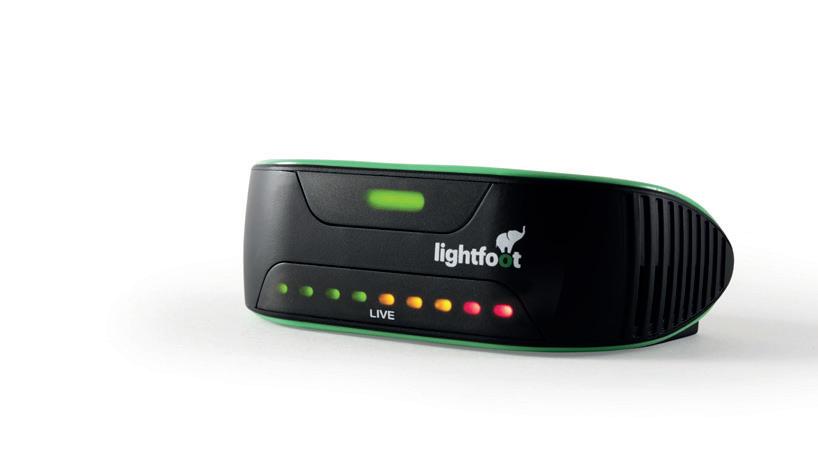
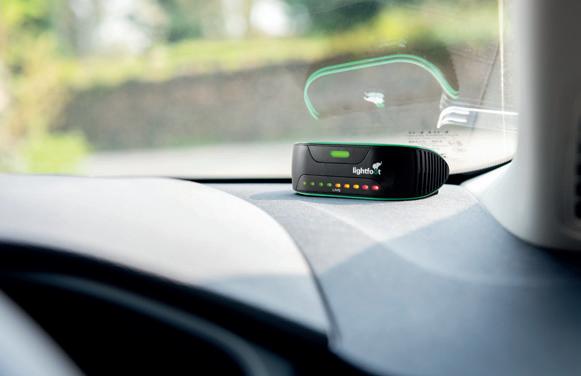
FACT FILE
● Founded in 2013, UK business based in Exeter
● Product designed, produced, and manufactured solely in the UK
● Global reach with clients now using our system on four continents
● Deployed in over 100,000 vehicles
● Suitable for all vehicles – petrol, diesel, electric and hybrid
● Endorsed by all major UK insurers and brokers
● Designed in partnership with the University of Bath’s renowned Advanced Automotive Propulsion Centre
● Proven to increase MPG, reduce CO2 and NOx, and prevent RTCs
● Over £2 million awarded in driver prizes and rewards
100 Trusted Brands in Fleet
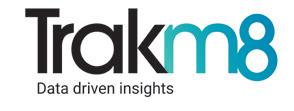
Trakm8

Trakm8 is a recognised leader in fleet management technology, offering advanced solutions in AIpowered route planning and optimisation, vehiclehealth monitoring, and connected camera systems. Our flagship product, the RH600 4G integrated telematics camera, combines real-time video, driver behaviour analytics and telematics data into a single, powerful device. Manufactured in the UK, our cutting-edge hardware and software are designed to support fleets of all sizes, delivering game-changing insights that enhance operational efficiency, reduce risk and lower costs.
FACT FILE
● UK manufacturer
● Rated 'Excellent' on Trustpilot
● UK-based Customer Support Team
● Operating since 2002 – Over 20 years of fleet industry experience
● 236,000+ devices reporting into our servers
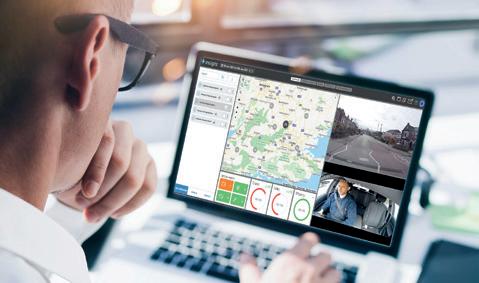
Trusted by leading brands such as The AA, Iceland Foods, Calor Gas, Baxi, and E.ON, Trakm8 provides a 360° view of fleet operations on a single, unified platform. Our solutions empower fleet managers with real-time visibility, predictive maintenance alerts, and data-driven decision-making tools. Whether you're managing a small delivery fleet or a national logistics operation, Trakm8’s scalable and intelligent technologies help to keep your fleet safer, smarter and more productive.
● Flagship product: RH600 4G Integrated Telematics Camera
● Trusted by leading fleets including Iceland Foods, E.ON, The AA and more
● Serving industries such as logistics, utilities, retail, construction and emergency services










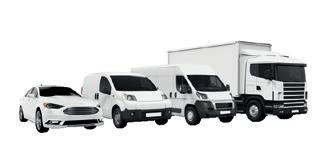

Telematics & Tracking Shortlist













Leasing Companies
Competition is extreme among leasing companies, that makes it essential to develop a great reputation for trustworthiness
Companies that lease vehicles make up the biggest sector of the fleet industry and, accordingly, have the greatest number of trusted businesses within their ranks.
For 2025, 23 leasing businesses have made the list, two fewer than last year.
Typically, leasing vehicles is one of the largest long-term investments for any business operating a fleet, so choosing the right partner is essential.
These relationships need to be transparent and reliable, and never more so than over the next decade, as fleets transition towards zero emissions,


Lex Autolease
Lex Autolease is a leading provider of personal and business vehicle-leasing services in the UK.
We provide vehicles for everything from small businesses to national organisations.
We offer a range of leasing options for new cars, light commercial vehicles and specialist commercial vehicles, all supported by a comprehensive range of fleet services.
Our vehicles are owned and maintained by us, and we ensure that our customers are always on the road and able to operate their fleets as efficiently as possible.
With a large choice of vehicles, awardwinning fleet management services and expert consultancy, we are the partner of choice for many businesses and individuals across the UK.
As part of Lloyds Banking Group, Lex Autolease is committed to reducing its environmental impact and helping our customers do the same.
with all the change and complexity that entails.
Fleet leasing companies provide numerous benefits and essential services to help businesses manage their vehicle fleets efficiently and cost-effectively. By leasing vehicles rather than purchasing them, companies can preserve capital and improve cash flow.
The list of services on offer includes vehicle acquisition, maintenance and disposal, and, by maintaining fleets in optimal condition, any downtime is minimised. In addition, leasing companies often provide fleet-management software, enabling real-time tracking of vehicle locations, fuel consumption and driver behaviour.
Another benefit to leasing is the ability to regularly upgrade vehicles, ensuring fleets remain modern and fuel-efficient. This lowers operational costs and improves environmental performance.
Leasing companies also ensure regulatory compliance and support insurance claims.
With teams of EV specialists in-house, the best leasing companies also provide comprehensive and in-depth advice on how best to transition a fleet to electric, avoiding the expensive pitfalls that await the unwary.

FACT FILE
● Leading fleet management and funding specialist ● 135k+ low-emission vehicles managed ● Targeting a 50% reduction in financed car and van emissions by 2030
● Managing over 280,000 vehicles ● 68% of deliveries are low-emission ● A Lloyds Banking Group Transport business ● LBG to invest £8bn in EV and Plug-in Hybrid electric vehicles by 2024 ● LBG is financing one-ineight ultra-low emission vehicles on UK roads
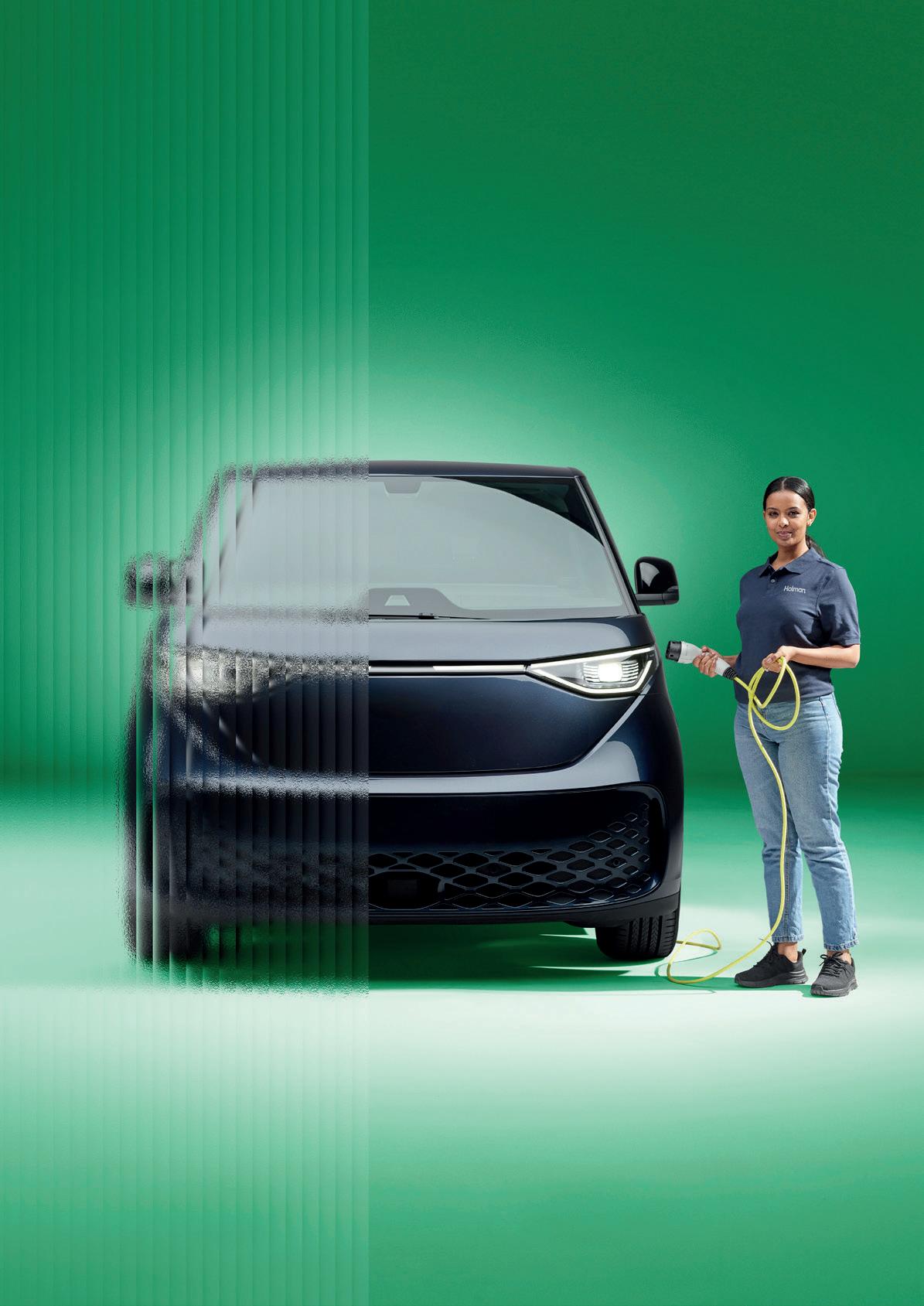





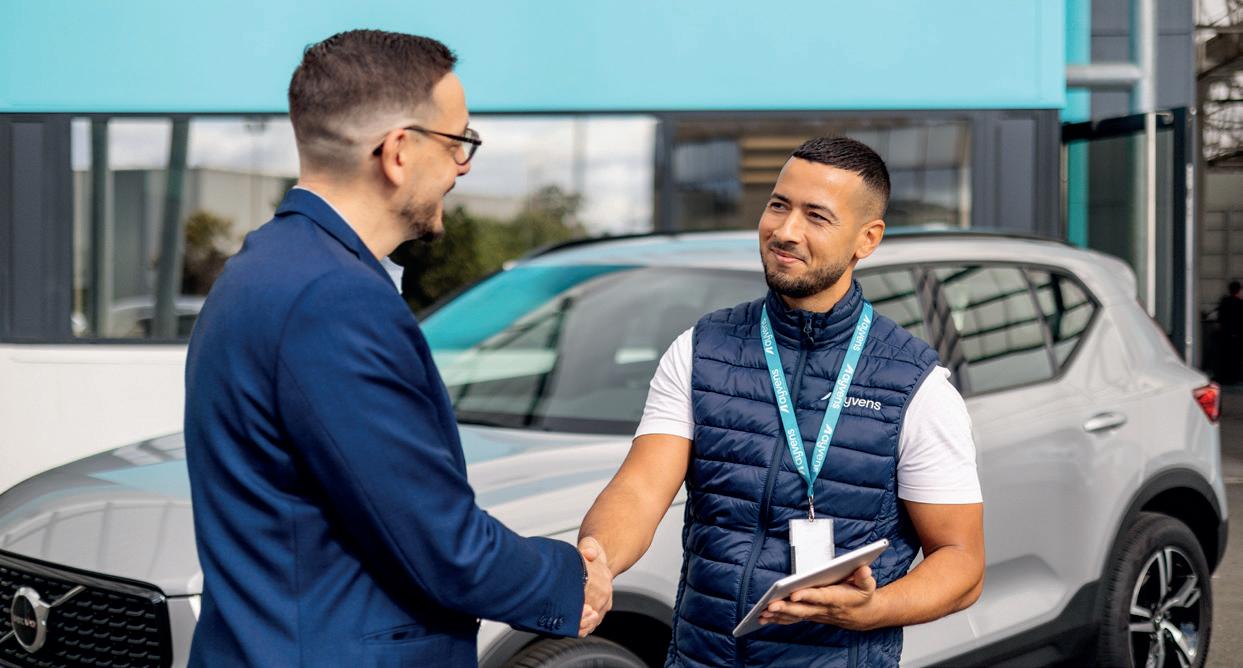
Ayvens
Ayvens was created by the global merger of ALD Automotive and LeasePlan. This brought together over 60 years of experience and a fleet of more than three million vehicles, including half a million electric vehicles, across 42 countries. It has also given us the expertise to understand and the resources to meet the unique requirements of fleet operators, so we can provide you with the right vehicle funding, fleet management and sustainable solutions for your requirements.
In the UK, we work with a wide range of customers, including some of the country’s largest fleets. We’re known for our end-to-end product and services portfolio, including award-winning fleet management solutions and support, such as TCO+, and a team with the expertise and insight to help optimise the costs, productivity and sustainability of mission-critical fleets.

The success of our approach has been recognised by a number of major awards including ‘Leasing company of the year’ by WhatVan? and ‘GreenFleet Leasing Company of the Year’ and 360 Media ‘Trusted brand status’.
"The support Ayvens has given us is making a real difference to the efficient, smooth, and future-focused operation of our fleet. Ayvens has demonstrated itself to be a dedicated and trusted fleet partner, going beyond to assist our operations. Their solutions-focused approach, along with their commitment to clear communication and teamwork, has made the implementation process much simpler and more efficient."
Daren Lamb Head of Fleet, Lampton Services
FACT FILE
● Vehicle Funding ● Fleet Management ● Fleet Consultancy ● Commercial Vehicle Specialists ● Flexible Rental - Ayvens Flex ● EV Salary Sacrifice ● TCO+ Insights Platform ● Fleet Risk Management and Insurance

Athlon
At Athlon, we know fleet. With our local expertise, global knowledge and as part of Mercedes-Benz Mobility, we are able to offer a range of effective leasing solutions, management and consultancy across all multi-marque cars and vans. By working with us, you’re taking one step closer to a more sustainable future.
FACT FILE
● Athlon365 – our bespoke service and maintenance-booking portal
● EVReadyTool – our tailored tool simplifies the switch to EV
● SalaryExchange – our Salary Sacrifice product
● In-depth fleet total-cost-of-ownership analysis (TCO)
● Flexible funding options

● Short-term and daily rental
● Dedicated account managers for all customers
● Tailored fleet and mobility solutions
● Local knowledge and global expertise
● Part of Mercedes-Benz Mobility Group
● Over 100+ years of experience
● 400K+ international car and van portfolio



KINTO UK
Providing effective solutions for all fleets
We give everyone the freedom to move. From quick trips across the city, to operational fleets up and down the country, we’ve got you covered. Priding ourselves on a flexible service, KINTO
“We provide fleet solutions that align with your objectives and help you drive your business forward”



keeps lives and businesses moving, helping you focus on what’s really important.
As one of the UK’s largest fleet-management and mobility organisations, we've provided flexible solutions to corporate, public sector and nonprofit customers throughout the UK for more than 50 years. As such, we take immense pride in our customer-service delivery.
By combining the experience of our people, with efficient processes, systems and infrastructure, we provide fleet solutions that align with your objectives and help you drive your business forward.
FACT FILE
● Extensive portfolio of fleet, funding and mobility solutions
● Fleet consultancy
● Dedicated Commercial Vehicle team
● EV specialists
● Around-the-clock driver support
● In-life vehicle operations management, with a focus on downtime management
● Vehicle solutions for everyone – consumer through to large corporates, public sector and non-profit organisations
100 Trusted Brands in Fleet

Pendragon Vehicle Management
Pendragon Vehicle Management (PVM) is a well-established automotive leasing and fleet management company that specialises in offering customised fleet funding and management solutions. From contract hire to fleet consultancy, PVM can tailor each and every package to a business’s exact operational requirements.
With over 38 years’ experience, and extensive industry knowledge, PVM are experts when it comes to working with customers to optimise their fleets. Whether that includes company cars, LCVs, salary-sacrifice schemes or a fully-outsourced fleetmanagement solution, PVM's dedicated team can handle everything from vehicle-order management and driver queries to detailed reporting on overall fleet performance.
With Pendragon's extensive portfolio of skills, your fleet's in safe hands when it comes to EV transition.

FACT FILE
● Fleet funding and management solutions for every business type and size ● Over 38 years’ experience ● Access to one of the biggest dealer networks in the UK ● Part of Lithia UK, with group retail partners Evans Halshaw and Stratstone ● Driver helpline with 24/7 support ● Comprehensive fleet funding options, including contract hire and salary sacrifice ● Unique and flexible rental solutions ● Fleet analysis including whole-life costing ● Comprehensive Fleet Management packages including a fully-outsourced solution ● Experts in managing EV transition
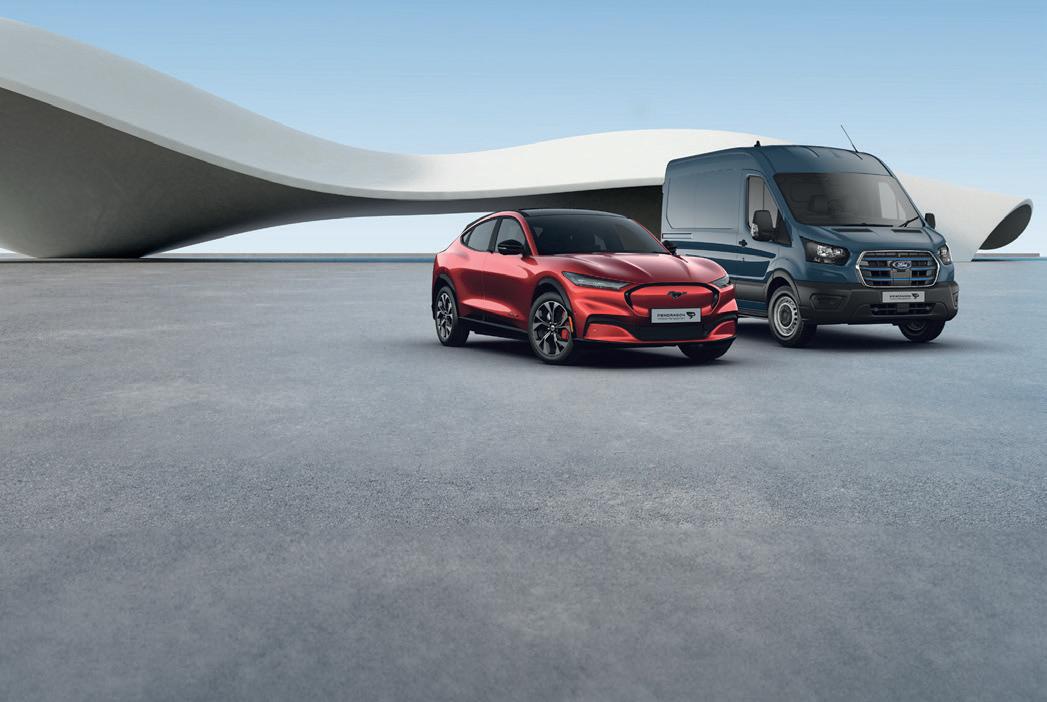
Pendragon Vehicle Management (PVM) is a well-established automotive leasing and fleet management company that specialises in offering customised fleet funding and management solutions. From contract hire to fleet consultancy, PVM can tailor each package to a business’s operational requirements.
With over 38 years’ experience and extensive industry knowledge PVM are experts when it comes to working with their customers to optimise their fleet. Whether that includes company cars, LCV’s, salary sacrifice schemes or a fully outsourced feet management solution. Their dedicated team can handle everything from vehicle order management and drivers queries to detailed reporting on fleet performance.
% Fleet funding and management solutions for every business type and size
% Over 38 years’ experience
% Access to one of the biggest dealer networks in the UK
% Part of Lithia UK with group retail partners Evans Halshaw and Stratstone
% Driver helpline with 24/7 support
% Packages are fully customisable for any business
% Comprehensive fleet funding options, including salary sacrifice
% Unique and flexible rental solutions
% Fleet analysis including whole life costing
% Comprehensive Fleet Management packages including a fully outsourced solution
BETTER BUSINESS

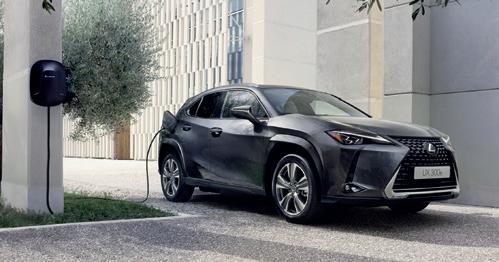
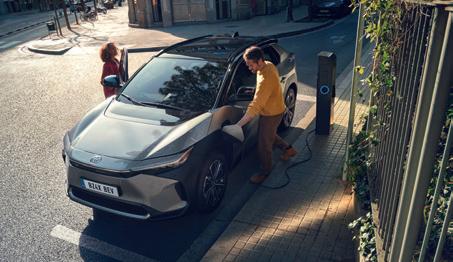
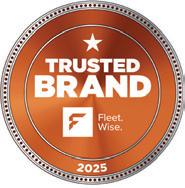

At Toyota and Lexus Business, we bring together an award-winning range of cars, SUVs, vans, and pick-up trucks, flexible financing, and support services that keep your vehicles and drivers on the road - through one dedicated team.
Which means better business for you, especially when you’re balancing so many responsibilities, plus the reassurance of partnering with one of the 100 Trusted Brands in Fleet.
BETTER TOGETHER
Flexible financing options including Business Contract Hire with KINTO.
BETTER BY DESIGN
Comprehensive selection of cars, vans and pick-up trucks from Lexus, Toyota, and Toyota Professional.
Discover More
BETTER SUPPORT
Comprehensive 3-year warranty from new, and an additional 12-month/10,000-mile warranty with every qualifying service.*
BETTER DECISIONS
Our multi-pathway approach offers a diverse range of electrified options, diesel and petrol engines, and hydrogen vehicles.






































































Venson Automotive Solutions Limited
Venson is a hands-on leasing and fleetmanagement specialist, with a proven track record in reducing fleet costs and increasing vehicle availability to optimise performance.
Along with our exceptional service levels, we ensure that all our clients derive the very best value from their fleets, by delivering solutions that are based on impartial advice.
We recommend and provide operational improvements, and aim to deliver tangible financial returns. We always future-proof our offerings, for your peace of mind.
We can do this because we’ve only ever specialised in fleet services, so our knowledge and in-depth understanding of the market are the best in this sector. Plus, our dedicated expertise is relevant to public, private, not-for-profit and emergency-service organisations.





























































Get complete peace of mind with Venson Fleet Management
Whether you have cars, LCVs, HGVs or more specialist vehicles, we believe in taking the headache out of managing your fleet. We cater for all vehicle types, including EVs, Hybrids and other alternatively-fuelled vehicles. We don’t believe in a one-size-fits-all solution, instead we spend time with you finding out about your financial and operational objectives, so that we can recommend a fleet policy that will help you to meet them.
We can help with vehicle acquisition, funding, maintenance, duty of care and a whole lot more, including access to an online portal to get the vital management information you need.
We’re here to make your life easier and to give you peace of mind, so you can run your business without worrying about your fleet.
FACT FILE
● Client retention rate of 98% ● Dedicated account team for each client ● Downtimemanagement expertise ● A comprehensive range of fleet services ● Specialist technical capabilities via our in-house experts
● Complete transparency, with no hidden costs ● Honest partnerships, taking a longterm view ● Impartial and independent
● Over 30 years' learned experience
● Passionate about delivering value


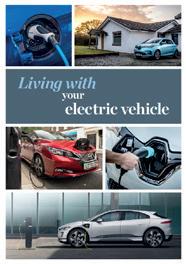
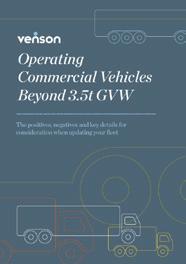
100 Trusted Brands in Fleet Alphabet
Alphabet is one of the UK’s largest providers of business mobility, helping customers manage employee mobility in an economical and sustainable way.
We offer a comprehensive range of fleet mobility services and tools designed to help customers adapt to changing business travel needs, while ensuring their employees keep moving effectively and efficiently.
From multi-make fleet management, strategic consultancy and vehicle funding solutions, to risk management, livery and reporting tools, we’re passionate about making mobility easy with expert advice and tailored end-to-end solutions for corporate, SME, and public sector organisations.
As a subsidiary of BMW Group, Alphabet leads the way in how businesses finance, manage and use their company vehicles, while supporting their move to greater electrification and mandatory reporting to ensure business compliance.
Our experienced team are available to assist with your enquiries to enable you to focus on your core business activities.
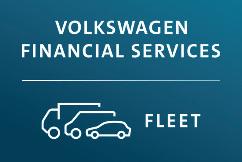
Volkswagen Financial Services Fleet
Here at VWFS Fleet, we’re one of the UK’s biggest leasing companies. But we do things a little differently – we bring an energy, passion and expertise you won’t find anywhere else.
Whatever the size or shape of your business, you can come to us
We know it’s not really cars that take your business to new and exciting places – it’s the people around you. So, we’ve invested in a team of experts like no other in the industry.
You can rely on us, day-in-day-out, to keep your fleet operating like clockwork. To help you find the right vehicles with the right funding. Manage your fleet. Support your drivers. And steer you forward. So, if you’ve got big ambitions for your fleet, we’d love to hear them.
Looking for a partner, not a passenger?
Speak to our team today. Scan the QR code above.

FACT FILE
● Contract hire and leasing ● Electric vehicles
Fleet consultancy ● Fleet management services ● Accident management and repair ● Graphics and livery ● Mileage reimbursement ● Fuel management
● Risk management and driver training
● Vehicle rental
FACT FILE
● Fleet funding ● Fleet consultancy services
● Fleet analysis including whole-life Costing
● Fleet management software
● Charging solutions ● 24/7 driver support
● Uptime management ● Policy development ● Flexible rental solutions
● EV salary sacrifice ● Multi-marque vehicles
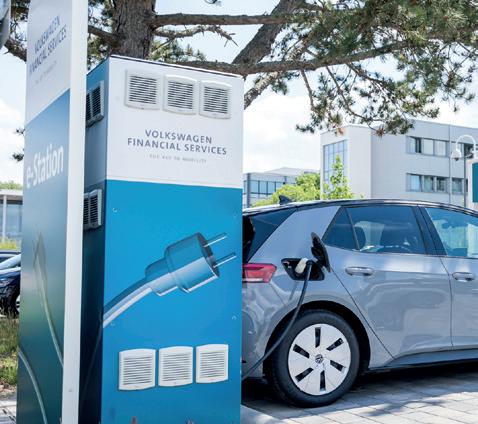

JCT600 VLS

JCT600 Vehicle Leasing Solutions (VLS) is part of the JCT600 Group, one of the UK's largest motor retailers. With a history stretching more than 75 years, the family-owned Group is renowned as a value-driven business. Formed in 1988, VLS is committed to offering businesses across the UK, from SMEs to FTSE100 companies, a wide range of tailored vehicle funding and management solutions. VLS’ vision is to be the trusted partner of choice, always delivering a best-in-class service through its passionate, expert team and industry-leading technology. Visit www.jct600vls.co.uk or call 0113 391 1791.


FACT FILE
● Founded in 1988 ● Vehicle funding and management solutions to UK businesses
● Scheme consultation, design, implementation, launch and management
● Ongoing fleet management and support
● Employee benefit and salary sacrifice schemes ● Electric vehicle solutions and support ● Operational fleet solutions
● Company car solutions ● Daily rental
● Maintenance and in-life support, including off-road management ● Direct contact with a dedicated account manager

Leasys
Stress-free


Leasys specialises in multi-brand operational leasing, offering a wide range of tailored mobility services, from short, medium and long-term rentals, to vehicle management solutions, for private individuals and businesses alike.
Equally owned by Stellantis and Credit Agricole Personal Finance & Mobility, Leasys is the proud Contract Hire partner of the Stellantis brands.
Leasys vision is to shape the future of mobility by offering sustainable, innovative and tailored solutions designed around its customers for a best-in-class experience, providing expert, dedicated consultation, and personal customer care.
A UK FN50 Top 10 company, with an initial managed fleet of 906,000 vehicles across eleven European countries, Leasys has established itself as a pioneer or the new idea of fluid, integrated and global mobility designed for individuals, professionals and companies of all sizes.
“Leasys

Leasing Companies Shortlist
Of the hundreds of leasing firms in the UK, just 23 ranked in the top 100 most-trusted businesses. Here are the best of the best…

● www.ayvens.com
Highly Recommended

● www.jct600vls.co.uk

● www.kinto-uk.com
Highly Recommended

● www.leasys.com
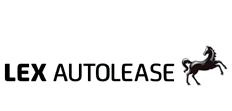
● www.alphabet.com
Highly Recommended

● www.acvm.com
Highly Recommended

● www.arval.co.uk
Highly Recommended

● www.athlon.com

● www.free2move.com

● www.thegrosvenorgroup.co.uk
● www.lexautolease.co.uk
Highly Recommended
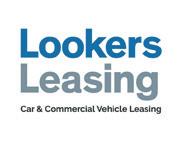
● www.lookersleasing.co.uk

● marshallfleetsolutions.co.uk

● Volkswagen Financial Services www.vwfsfleet.co.uk
Highly Recommended

● novunavehiclesolutions.co.uk
Highly Recommended

● www.octopusev.com
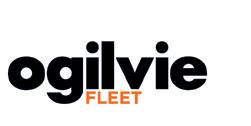
● www.ogilvie-fleet.co.uk

● pendragonvehicle management.co.uk

● www.zenith.co.uk

● www.sgfleet.com

● www.sogomobility.co.uk

● www.tuskercars.co.uk

● www.venson.com
Scan here to get the trusted shortlist as a downloadable pdf


Buying Guide
Salary Sacrifice
100 Trusted Brands explores one of the most financially-attractive ways for drivers to fund lease vehicles, with insight from Jon Burdekin
Salary sacrifice is an established method of providing tax-efficient benefits to employees, and it can be used effectively in the provision of a car-related benefit.
Salary Sacrifice is best used as an employee benefit for non-car-eligible employees, and those employees in receipt of a cash allowance in lieu of a company car. It also provides an option to support a business’s commitment to achieving net-zero carbon emissions. In this way, the carbon footprint of these employees’ commute to work can be factored into your company’s wider carbon footprint calculations.
The scheme can also be used as a replacement
for existing company car users, although financial savings by doing this are marginal. In effect, you are moving a driver from a benefit-in-kind (BIK) driven benefit to another BIK driven benefit with no material difference in their financial position.
“Salary Sacrifice is best used as an employee benefit for non-car-eligible employees, and those employees in receipt of a cash allowance in lieu of a company car"
What is Salary Sacrifice?
When viewed in its most basic form, the use of salary sacrifice to provide cars to employees is a simple marriage of three established tax principles – PAYE, NIC and BIK.
An employee agrees to have their salary reduced, and will therefore pay less PAYE and NI on the reduced salary.
In return for the salary reduction, they receive a traditional company car, on which they pay BIK tax like any company car.
The trick to making salary sacrifice work, therefore, is to ensure the saving in PAYE and associated NI is greater than the BIK tax incurred by the employee.
Of course, where an employee pays NIC, their employer pays Class 1A NIC, so if the employee saves money, then so does the employer (in saved employer’s NIC).
“The trick to making salary sacrifice work, therefore, is to ensure the saving in PAYE and associated NI is greater than the BIK tax incurred"
Tusker

We’re Tusker, the UK’s leader in salary-sacrifice cars. Part of Lloyds Banking Group, we have around 2000 active customer schemes, and we partner with all the top employee benefit providers.
We’re committed to protecting our environment, which is why we’re a member of the EV100, a group of organisations championing the move to zero emissions. Not only do we reduce and offset our own carbon emissions, but we also offset the emissions from every car we put on the road.
With more than 15 years’ experience, we offer an affordable way for employees to drive a new, fully-insured and maintained car to over 1.8m UK employees. Our scheme offers a range of options, from pure electric cars to hybrids, and even traditional petrol and diesel vehicles.
BENEFITS
● Offering fully-insured and maintained cars via salary sacrifice in an all-employee benefits package ● Tailored schemes, customisable to employer requirements ● Integrated with all leading benefit providers and public sector frameworks ● Helps with ESG agenda, as we
How it works
In practice, a funder leases a company car to the employer in the same way they would normally do with their corporate clients.
This is a business lease, with the employer as the contracting party, and VAT is charged on the monthly rental. The funder owns the vehicle, and the employer makes it available to their employee. The employee returns the vehicle at the end of the agreement.
In a traditional company car scheme, the employer doesn't charge their employee anything for this (except for trade-ups or private mileage contributions), but the employee pays BIK.
However, where an employer enters a salary sacrifice arrangement with the employee, it agrees a change to their employment terms, to reduce gross salary and provide a company car in return. This is a contractual benefit of employment. The amount deducted from the employee’s gross salary is typically equal to the amount the employer pays to the scheme provider for the monthly rental for the car, including maintenance and motor insurance, plus the 50% of VAT that cannot be recovered on the finance element of the rental. This is known as the ‘effective rental’. The employee pays the same BIK as with any company car.

We understand that every organisation is unique, so we tailor each scheme to the client's specific needs. Just let us know your preferences, and we'll take care of the rest.
offset all tailpipe or charging emissions of our cars on the road ● Cost neutral – free to set up and class 1a NIC savings available on electric cars
● Lifestyle protections mitigate risks for a number of employee life changes, such as resignation and redundancy
100 Trusted Brands in Fleet
When it works best
As Benefit-in-Kind rates are linked to CO2 emissions from a vehicle, lower CO2 means lower BIK, and the greater the saving against the salary sacrificed.
Battery Electric Vehicles (BEVs) with emissions of 0g/km CO2 attract a BIK rate of 3% (applicable from April 2025), so these vehicles will deliver the greatest tax efficiencies under any salary sacrifice arrangement.
Implications of OpRA (Optional Remuneration Arrangements)
On 6 April, 2017, HMRC introduced legislation titled Optional Remuneration Arrangements (OpRA), which covered a number of tax treatments surrounding salary sacrifice of various benefits (Pension, Childcare, etc). Salary Sacrifice for cars was included and the rules changed.
Under the ruling, Ultra-Low Emission Vehicles (with emissions of 75g/km or less) are exempt from any tax changes under OpRA and it is these vehicles (BEV or PHEV) that generate significant tax savings under a salary sacrifice scheme.
Insurance under salary sacrifice
Bearing in mind a contractual arrangement will be between the funder and the employer, it is worth
“Under the ruling, Ultra-Low Emission Vehicles (with emissions of 75g/ km or less) are exempt from any tax changes under OpRA and it is these vehicles (BEV or PHEV) that generate significant tax savings under a salary sacrifice scheme"
“Under salary sacrifice, an employer can provide its own fleet insurance cover for drivers, and include it within the amount of salary sacrificed by the employee"
considering what insurances you may need to offer, and how these can be applied in the simplest possible form.
Motor Vehicle Insurance
Under salary sacrifice, an employer can provide its own fleet cover for drivers, and include it within the amount of salary sacrificed by the employee. However, the amount paid for insurance must be specified and separated within the salary sacrifice arrangement for each driver.
Consideration may need to be given to high-risk drivers who cause an increase in the employer’s premiums. However, this is no different to any other fleet insurance provision. It could also be argued that this is the most cost-effective method of providing insurance for a group of drivers.
More typically, salary sacrifice providers offer insurance-inclusive solutions, where the insurance premium forms part of the overall salary sacrifice, and no demand is placed on the employer to source or provide this.
Insurance premiums, under this inclusive offer, tend to appear expensive, as they are fixed for the period of the lease, and are designed to be broad in their application, to cover a varied employee base of male/female, old/young and geographically diverse. That said, it should be remembered that this price is passed onto the employee through their gross salary deduction.

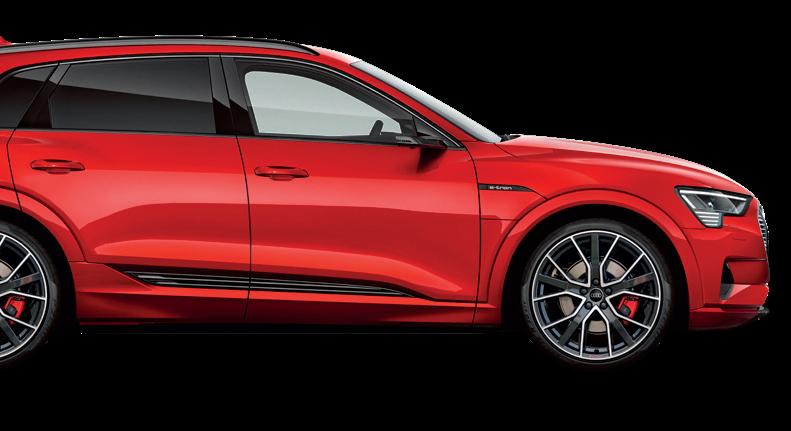

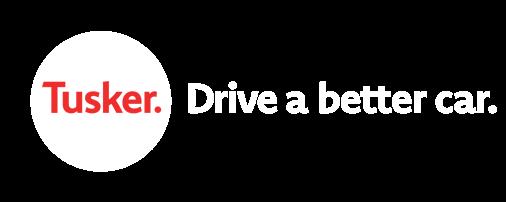

Additional employer costs linked to salary sacrifice
Early termination
As with any business contract hire arrangement, ending the contract early is likely to incur an early termination charge to the employer from the funder. How it's handled depends on the circumstances surrounding the ET (resignation/redundancy/longterm sick/death in service, etc)
The best way to avoid early-termination charges is to not return the car at all, but to reallocate it to another employee, if at all feasible.
All providers offer protection to minimise financial risk. This can be expensive, but as it is included within the monthly payment, it is effectively passed on to the employee as part of their gross salary deduction – leaving no exposure to the employer.
The option to ‘self-insure’ should be considered.
How would this work in practice?
The employer could apportion an element of the employer’s NIC savings they will generate from the salary-sacrifice arrangement as provision for any ETs they may need to fund in any given period. The provider can establish how many they think will occur, and what the average cost may be and help the employer to make this provision. Alternatively, the employer could pass this cost on to the employees by simply making a small addition to each employee’s monthly salary sacrifice to build up this provision. For example, 50 vehicles under salary sacrifice at £300/month, with a notional sum
“It is worth noting that the best way to avoid early-termination charges is to not return the car at all, but to reallocate it to another employee, if at all feasible"
of £30.00 pvpm, added to the salary deduction would generate a provision of £18,000 pa. The impact to the employee would be a small reduction in the significant tax savings they would enjoy.
End of Contract Damage
Commercially, the employer may recharge drivers any costs incurred – via salary deduction, with the Ts&Cs included in any salary-sacrifice agreement. If their policy is to absorb these costs and not recharge, this can also remain in place, although a self-insurance provision could mitigate the risk.
Excess Mileage
This can be passed on to drivers (if it's included in the agreement) – especially as any excess businessmileage would have resulted in additional employee income through mileage claims.
It’s important to ensure there’s an opportunity for employees to ‘reset’ their agreement if they are driving over or under their stated mileage. This should offer them the opportunity to pay any increased amount through the tax efficiency of the salary sacrifice arrangement while it is still in place, rather than out of net salary when the arrangement ends. Conversely, if the driver is travelling fewer miles than stated, they are unlikely to receive any benefit for this at the end of the contract, whereas a reschedule would reduce their monthly deductions. It can be seen from the above, that the same cost areas and risks will be incurred by employees under salary sacrifice as they would incur if they were offered company cars – and these costs/risks can be passed on to employees if required, through a fully-insured solution, a self-insurance provision and/or robust policy that recharges drivers for costs they have incurred. Alternatively, the employer could build a provision for these from employer’s NIC savings.
Other considerations under salary sacrifice
How will it affect an employee’s pension?
A salary sacrifice arrangement reduces gross salary, as an employee has agreed to exchange some of their salary for a benefit instead. It is therefore natural to think this lower salary figure will be used to calculate salary-dependent benefits like pension. Whether salary sacrifice impacts an employee’s pension will depend on the pension scheme operated by the employer. Therefore, any potential impact on pension should be referred to the employer’s pension provider.
Employers can create a ‘notional’ or ’reference’ salary which is used for such calculations.
This notional salary is the rate before any salary sacrifice arrangements. If the salary was £40,000 before salary sacrifice, this is the figure the employer may refer to when calculating other benefits, like pension contributions and pay rises.
HMRC confirms this: “Often, employers will use a notional level of pay to calculate employer and employee pension contributions, so that employees who participate in salary sacrifice arrangements are not put at a disadvantage”.
"Employers can create a ‘notional’ or ’reference’ salary which is used for such calculations"
However, other pension schemes, particularly defined-benefit pensions – like career-average schemes – will be impacted, because employers look at an individual’s average salary over their career, and calculate the pension on that. Sacrificing some salary reduces average earnings across a career and therefore the pension.
If an employee is in a final-salary pension scheme, salary sacrifice will only impact the pension if an employee sacrifices some salary in the years before retirement or leaving the organisation. This may impact the final salary on which a pension is based.
Considerations
1) Does the benefit an employee gets from a salary sacrifice arrangement outweigh any loss in pension?
2) If an employee is approaching retirement or thinking of leaving, should they stop any salary sacrifice arrangement prior to this to ensure final salary is at its highest? Note: All employees must have a detailed understanding of their pension before entering into such an arrangement, and the employer should be aware of any potential implications and how to manage these.
Can salary sacrifice affect mortgage applications?
A ‘notional’ salary, as described above, may be used to calculate compensation or benefits. An employer can use it to provide confirmation of an employee’s earnings if they are applying for a mortgage.
Mortgage providers check outgoings to ensure affordability. Any car payments will be considered. It is worth noting that, as a result of a tax efficient salary-sacrifice scheme, an employee’s outgoings would reduce, leading to greater affordability.
As with the impact on pensions, the employer should take appropriate counsel from a mortgage advisor, or their own finance team to obtain the required level of comfort on this.
Parental Leave
Employees taking parental leave (maternity/ paternity/adoption) can also cause complications. Such employees are contractually entitled to retain their benefits of employment throughout a period of parental leave – and they have adjusted their Ts&Cs of employment to sacrifice some of their salary in return for a company car.
Where an employer provides more than the statutory minimum leave, payments can often carry on as before, but if this is not the case, the employer will be unable to make salary deductions, yet is obliged to continue offering the same level of benefit during the period of leave.
HMRC says: “When an employee enters into a salary-sacrifice arrangement, they are renegotiating the contract of employment, and the car becomes a contractual benefit”.
Insurance can also be an option here, but this is not always taken out because it can prove unpopular among staff who are unlikely to be affected. As with the self-insurance options detailed earlier, the employer could retain an amount, say, £15pvpm, from employer NIC savings to cover such eventualities, or could increase salary sacrifice amounts for all employees to pass on the cost.
Some salary sacrifice providers include a form of protection in their pricing to mitigate employer risk on this, but care should be taken in comparing one provider with another, to ensure their approach to financial protection and the apportioning of employer’s NIC are consistent.
Long-term sick leave
This will depend on the employer’s sickness policy. If an employee’s salary drops to the level where payments can no longer be deducted from the scheme, any shortfall may need to be covered by the employer. Insurance or self-insurance can be incorporated, as with other eventualities mentioned in this article, to cover exposure to this. A provision for early settlements could be used, to protect employers from having to cover a scenario of paying up to 36 monthly payments without being able to deduct the cost from the employee’s salary. Unlike parental leave, however, the employer could withdraw the benefit from the employee and return the car early, or reallocate it to another employee. Again, some salary sacrifice providers include a form of protection in their pricing to mitigate employer risk on this, but it can appear expensive.
100 Trusted Brands in Fleet
Will salary sacrifice work for all employees?
No. One cast-iron restriction with salary sacrifice is that an employee cannot sacrifice their salary below the National Minimum Wage. If a business has any employees potentially affected by this, those individuals cannot participate in the scheme.
Many lower-priced EVs are available in the UK, so there should be good options for the majority of employees, regardless of their salary. However, greater restrictions might have to be applied to the lower-paid workforce.
This article clearly identifies that salary sacrifice is extremely tax efficient for ULEVs, but OpRA limits its
“Many lower-priced EVs are available in the UK, so there should be good options for the majority of employees, regardless of their salary, but greater restrictions would apply to the lower-paid workforce"
effectiveness for vehicles which pollute above 75g/ km of CO2
Consideration should therefore be made for circumstances where ULEVs are not appropriate. These could include where…
● an employee’s daily and monthly mileage patterns are not conducive to driving an EV due to range restrictions (or where there’s a need to tow a heavy caravan or trailer).
● a driver is unable to charge an EV at home. This doesn’t preclude them from the scheme, but consideration should be given as to whether they should adopt an EV when they can only charge at public charging hubs.
● the choice of EVs may be too limited for an employee who needs, for example, a family estate, people carrier or convertible.
● an employee does not like EVs.
● an employee may already have a car and not currently need a new vehicle.
Clearly there will be instances where ULEVs don’t work for every employee. Research shows that employee engagement on these schemes tends to be between 5% and 10% (for non-car-eligible employees)
A salary sacrifice scheme will provide an additional ‘strand’ to the employer’s commitment to net zero carbon emissions – impacting the wider employer population and specifically their commute to work (included within ‘scope 3’ emissions).
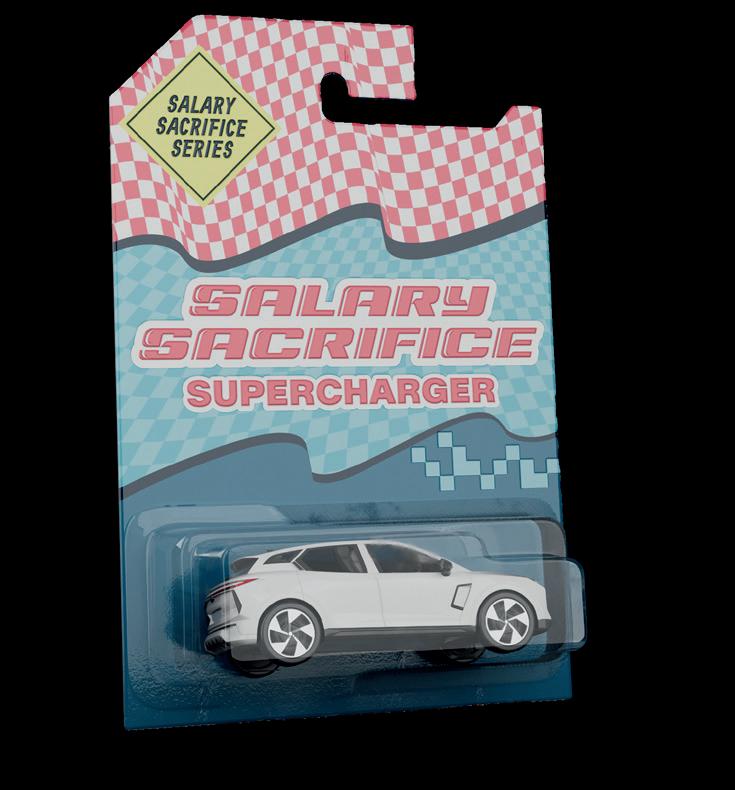
Salary sacrifice summary
● Salary sacrifice delivers significant tax efficiencies for EV and PHEV users, and the potential variable costs (ET, Damage, excess mileage etc) can be covered either by insurance, self-insurance or passing the cost on to employees.
● Consideration should be given to how external factors such as pensions and mortgages are affected, but these should not preclude the employer from considering introducing a salary sacrifice scheme.
● EVs may not suit the needs of all drivers.
● Employees cannot sacrifice their salary to such an extent that it takes them below the National Minimum Wage.
● If the employer experiences high levels of staff turnover, then greater consideration should be given to protection (insurance) against leavers. This will impact the levels of Early Termination protection they may wish to build into the scheme.
● Salary sacrifice schemes generate administration (as you are creating a fleet), so any potential provider should seek to minimise this burden and do most of the ‘heavy lifting’ for the employer.

VLS Salary Sacrifice

VLS salary sacrifice makes electric vehicles accessible to businesses of all sizes through an employee benefit that saves money, reduces hassle and delivers on sustainability goals.
For a fixed cost, employees receive...
● A brand-new electric vehicle
● Fully-comprehensive vehicle insurance
● Breakdown cover
● Servicing, maintenance and repair
● Incident management support
● Dedicated in-life support
From consultation to in-life services, the scheme is tailored to your business, and you receive expertise from our experienced account managers at every step of the journey.
At VLS, one of our main ambitions is to provide the best customer experience through delivering high-quality, trusted solutions. We have the knowledge, the team and the technology to provide the best experience for your employees.

Further details
For additional buying guides and product information please scan the QR code, or visit https://fleetwise.info/

Stress-free salary sacrifice schemes


100 Trusted Brands in Fleet
Salary Sacrifice Shortlist

Most-Trusted Shortlist

● www.ayvens.com Highly Recommended
● www.alphabet.com Highly Recommended

● www.acvm.com
Highly Recommended

● www.arval.co.uk Highly Recommended

● www.athlon.com

● www.thegrosvenorgroup.co.uk
● www.jct600vls.co.uk

● www.kinto-uk.com Highly Recommended

● www.pendragonvehicle management.co.uk

● www.lexautolease.co.uk Highly Recommended
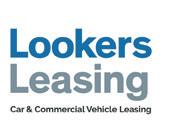
● www.lookersleasing.co.uk

● marshallfleetsolutions.co.uk

● www.vwfsfleet.co.uk Highly Recommended

● novunavehiclesolutions.co.uk Highly Recommended

● www.octopusev.com Highly Recommended

● www.ogilvie-fleet.co.uk

● www.zenith.co.uk

● www.sgfleet.com

● www.tuskercars.co.uk Highly Recommended

● www.venson.com

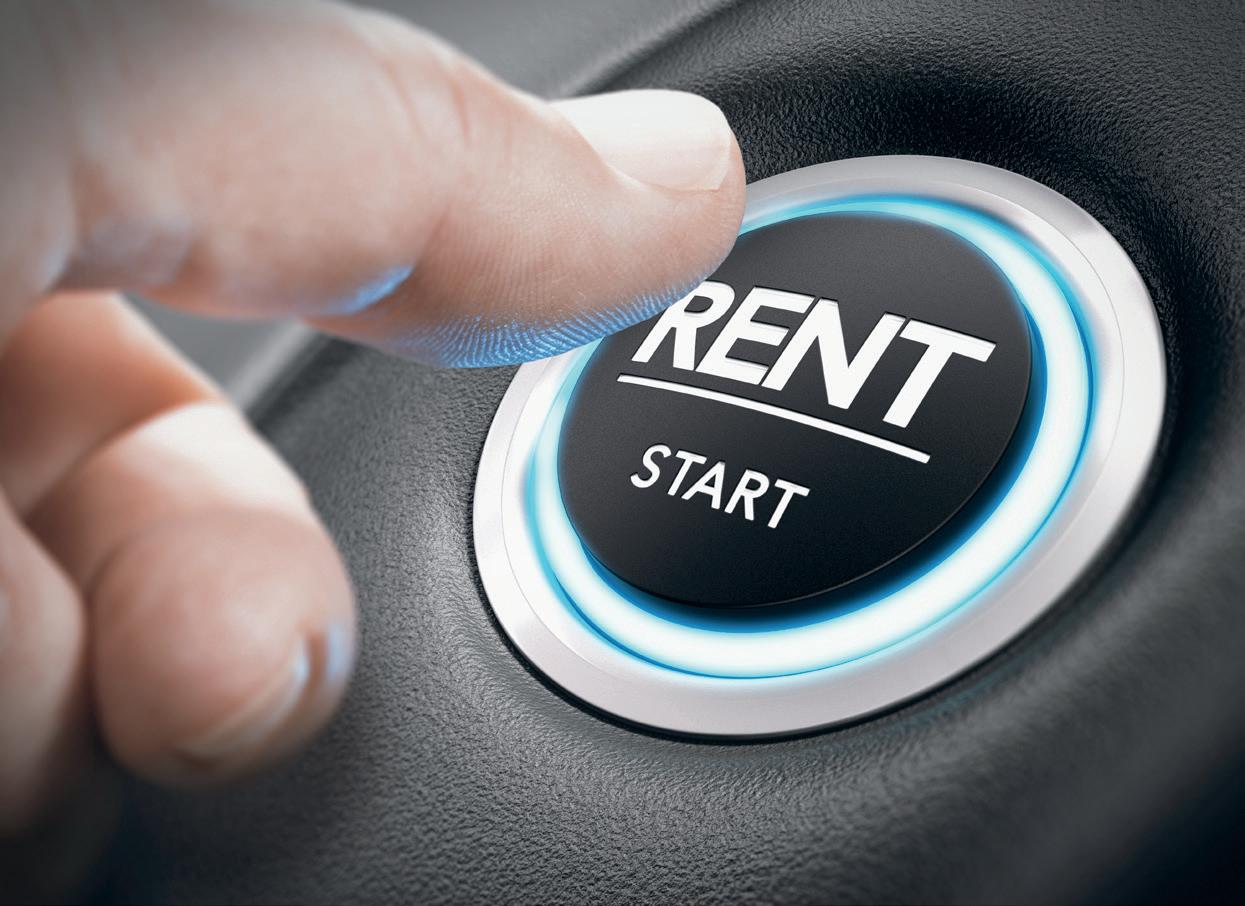
Rental companies
Vehicle rentals give fleet managers a high level of flexibility to keep their businesses operating at optimal levels
Eleven vehicle rental businesses have excelled in this year’s Trusted Brands’ research.
Each one offers the assurance that it’ll deliver the right vehicle, at the right time and the right cost. The very best also offer advice as to the best vehicles for specific tasks, optimising the fleet's performance for the business.
Vehicle rental companies offer a wide range of services and benefits to business fleet managers, enhancing operational flexibility and efficiency.
By providing short-term and long-term rental options, these companies allow businesses to scale their fleets up or down based on demand, avoiding the financial commitment of purchasing vehicles or taking out long-term leases that come with expensive early-exit clauses.
Key services include maintenance and roadside assistance, ensuring that vehicles are always in optimal condition and minimising any downtime due to breakdowns.
Rental companies also handle all administrative
tasks, such as vehicle registration, insurance and compliance with regulatory requirements, reducing the administrative burden on busy fleet managers.
In addition, rental companies offer diverse vehicle options, from cars and vans to specialised trucks – the best have something to meet every business need. This variety allows fleet managers to select the ideal vehicles for specific tasks, improving overall productivity.
The rental option can also eliminate the need for an expensive fleet of pool cars, which may not always be required, especially when used in seasonal industries.
With real-time tracking and telematics systems, rental companies provide insights into vehicle usage and driver behaviour, helping businesses optimise routes and enhance fuel efficiency.
In summary, vehicle rental companies deliver cost-effective, flexible and comprehensive solutions that streamline fleet management and support cost management and business growth.

Europcar
Global giant with services for fleets of all sizes
Europcar champions the idea of vehicle usership over ownership, as well as dispelling the myths around electric motoring. With its growing range of mobility solutions, Europcar is expanding the role of vehicle rental in reducing the environmental impact created by business fleets.
Whether renting an ICE, hybrid or fully-electric


car or van for a few hours, several days, weeks, months or longer, Europcar is supporting the evolution towards sustainable mobility. And, with its rapidly growing EV and PHEV rental fleet, Europcar is delivering a real-world, zero emissions driving-experience that allows businesses and their drivers to ‘try before they switch’.
FACT FILE
● Over 100 Europcar branches across the UK
● Branches at all major airports
● Delivery to every UK postcode
● Supplies petrol, diesel, hybrid and electric cars and vans
● Expert support for new EV drivers
● Flexible rental options – daily, weekly, monthly or longer
● A comprehensive selection of specialist vehicles is available
● Dedicated Vans & Trucks Supersites are located nationwide


Dawsongroup Nexus
At Dawsongroup vans, our primary aim is to keep your business moving and ensure your fleet of LCVs are earning you money. Whether you’re looking for flexible rental options to cater for planned or unplanned seasonal demands, or a fixed-term rental solution to get the most from your fleet resource, our Smarter Asset Strategy ensures that your vans earn you money every working hour of every day.
FACT FILE
● Wide range of customisable rental solutions
● 13 nationwide branches
● Dedicated team of net-zero experts
● Management team for every customer
● Industry leading fleet of 13,000 vehicles and counting
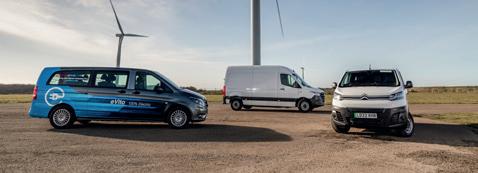

Fleetondemand
Fleetondemand’s award-winning GT Suite ground transportation platform provides an integrated range of short and mid-term vehicle rental, taxi and pool fleet management services. As a leading intermediary our extensive supplier network offers 400,000+ rental vehicles from 1,500+ locations nationwide, supported by an experienced customer support team. Start your journey www.fleetondemand.com
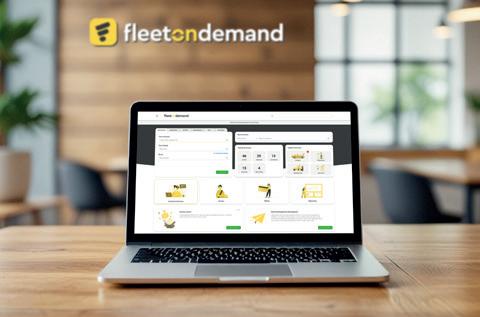
Nexus is the UK’s leading B2B vehicle and plant hire provider, trusted by businesses across sectors to deliver fast, flexible, and data-driven rental solutions. Powered by its proprietary Iris® software, Nexus connects customers to a nationwide network of over 300 suppliers and 550,000+ vehicles. With 24/7 access, custom vehicle options, and real-time insights, Nexus helps companies manage volatility, optimise operations and stay in control – making unpredictable demand feel like business-as-usual.

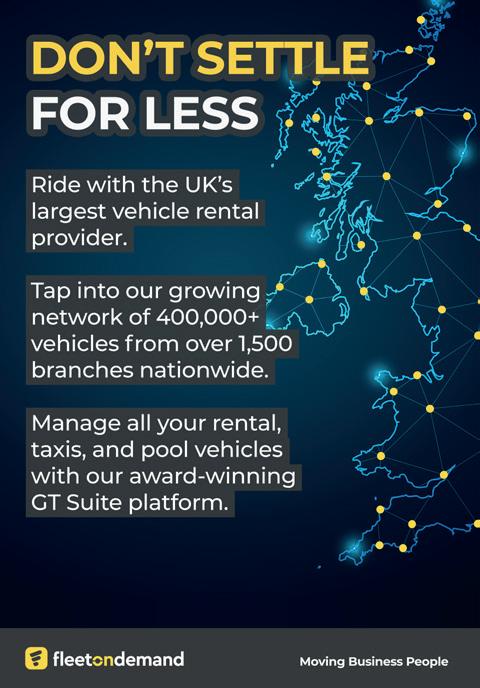

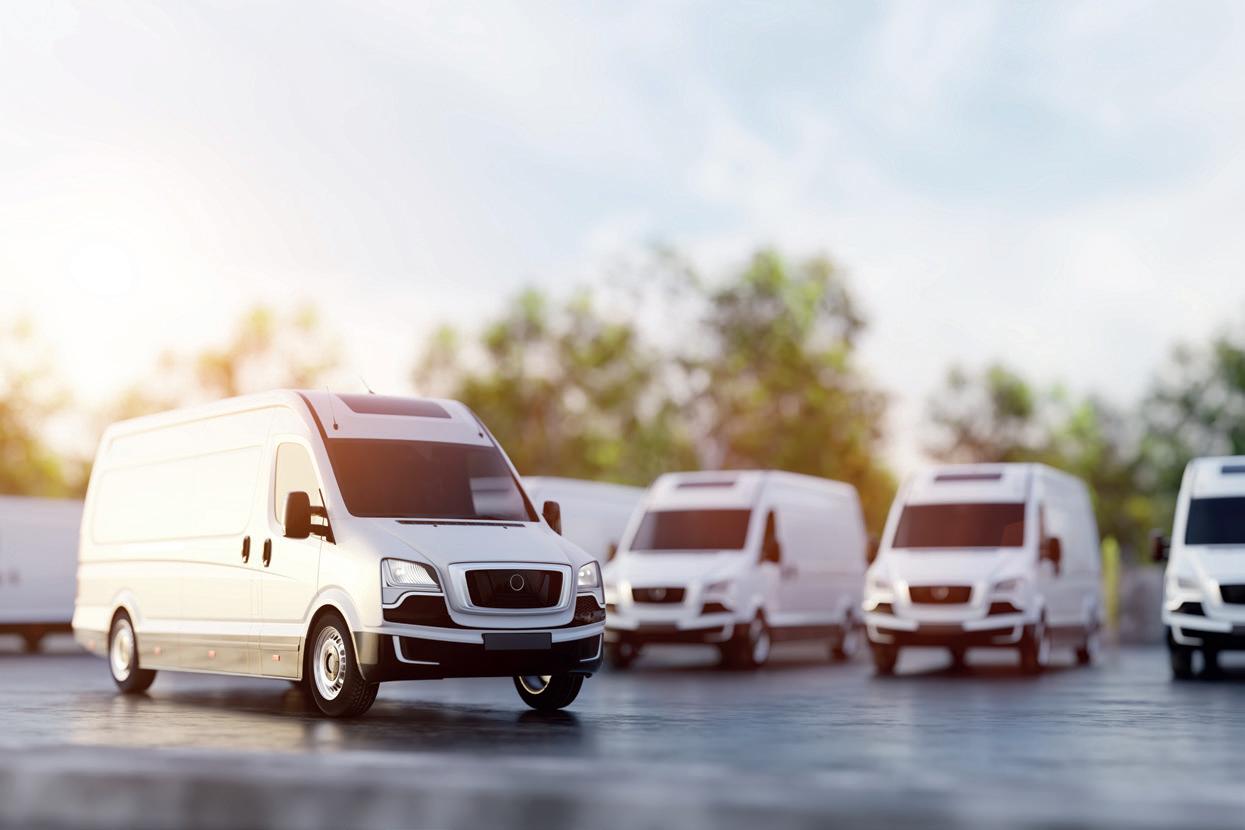






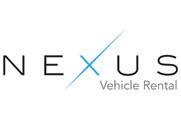




Track your market opportunity and identify how your brand is positioned for growth.
For off-the-shelf, fleet omnibus and custom research, book a meeting today: https://bit.ly/Ian360MG


SMR and Vehicle Conversions
This hugely-important sector in the fleet ecosystem accounts for eight of the top trusted brands
Vehicle Service, Maintenance and Repair (SMR), along with vehicle conversions, are critical components in managing an efficient and reliable fleet.
SMR encompasses regular servicing, preventative maintenance and necessary repairs, to ensure vehicles remain in optimal condition, minimising costly downtime. This not only enhances the safety and reliability of the fleet, but also extends the lifespan of the vehicles, reducing the overall operational costs.
Well-maintained vehicles which suffer fewer breakdowns and the ensuing delays, also lead to better customer experiences.
Vehicle conversions involve modifying vehicles to meet specific business needs. This might include adding specialised equipment, such as
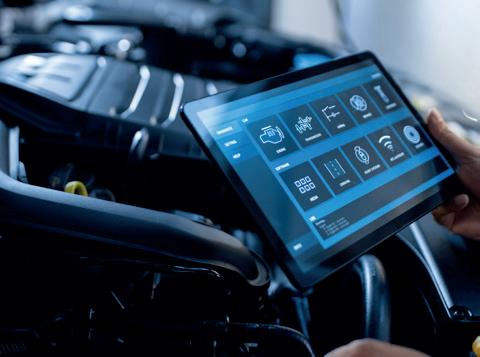
Bri-Stor Systems
For 40 years, Bri-Stor Systems has been the trusted conversion partner for some of the UK's largest fleets. Providing a holistic service, we transform light commercial vehicles into practical, hardworking tools. With the entire manufacturing process under one roof, customers can singlesource various bespoke racking, shelving and cupboard units, supplemented by an extensive catalogue of third-party specialist equipment. We also provide in-house vehicle graphics services, plus damage repair, de-fleet refurbishment and recycling and kitting, where new-starters can drive away a fully-stocked vehicle. www.bri-stor.co.uk
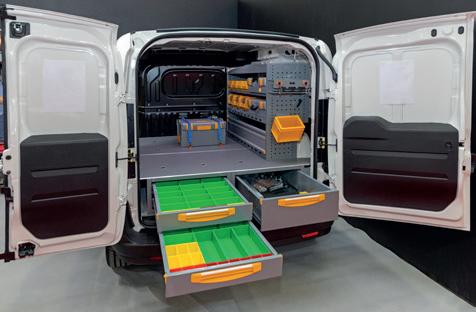
refrigeration units, lifting equipment or fitting vehicles with bespoke storage solutions. Adapting vehicles for accessibility also falls into this category. Conversions enable businesses to tailor their fleets to their exact requirements, improving operational efficiency and productivity.
Both SMR and conversions contribute to faster working, minimised downtime and fewer delays.
Investing in these services ensures that fleets are always ready to meet the demands of business operations, leading to improved staff and customer satisfaction and a more streamlined workflow.
“Well-maintained vehicles which suffer fewer breakdowns, also lead to better customer experiences"

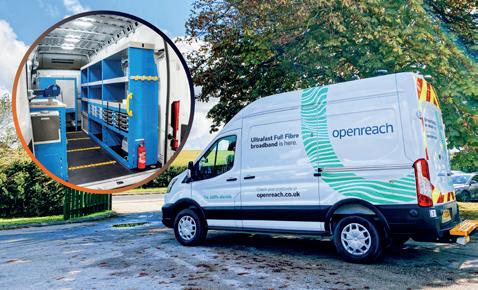
Vehicle Repair & Conversions Shortlist

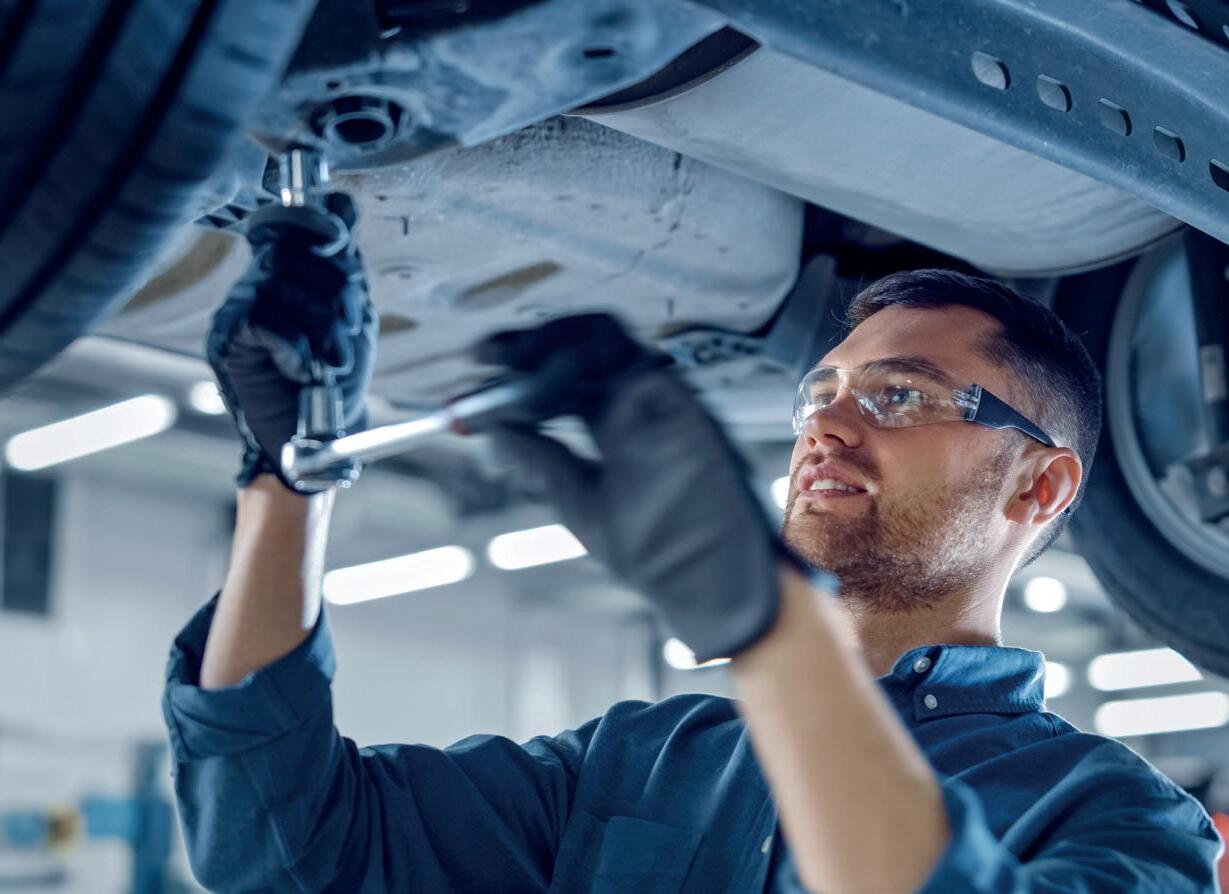






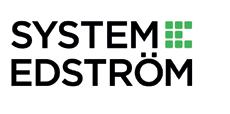

100 Trusted Brands
A-Z of the top 100 trusted fleet brands by category
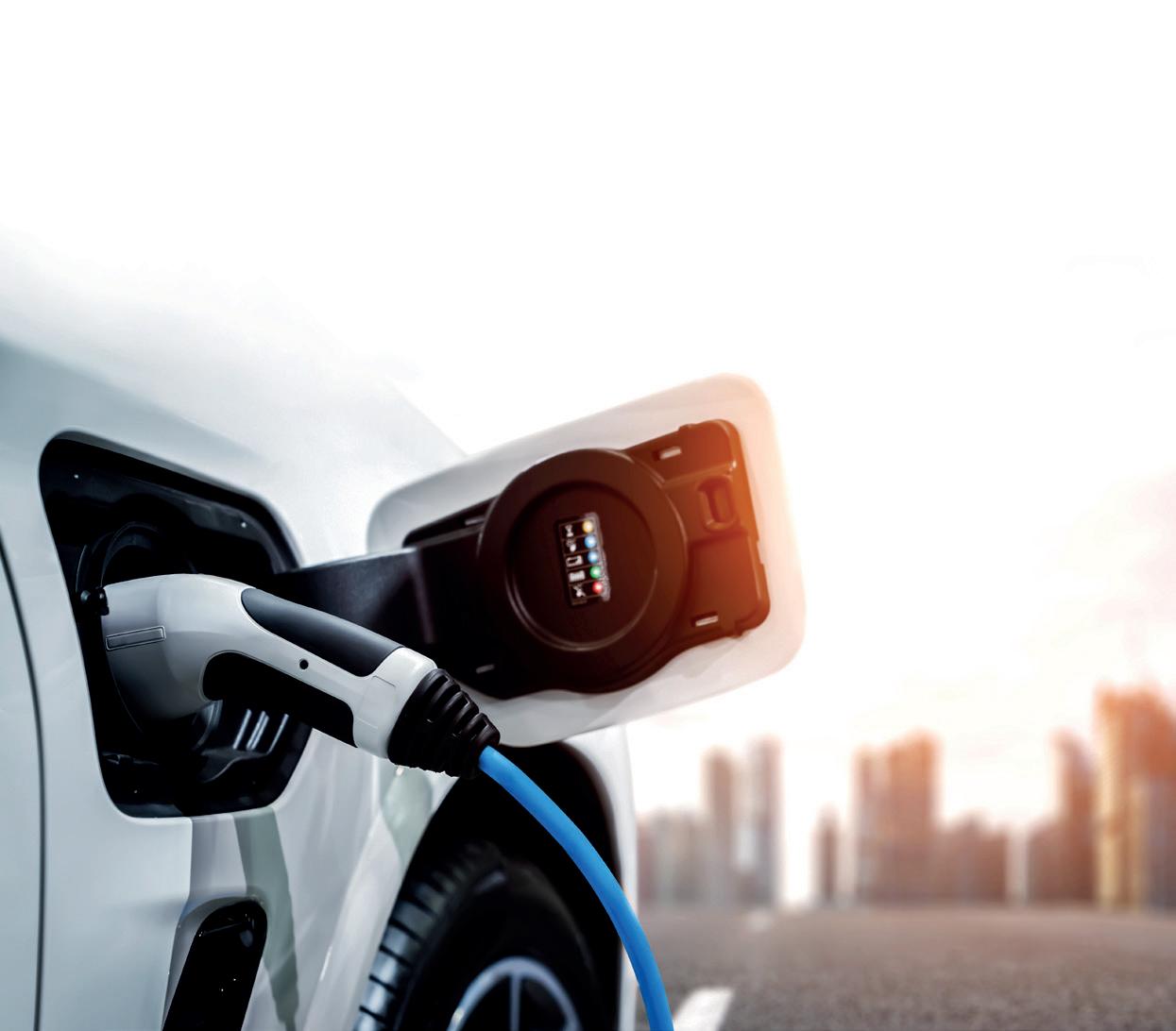
EV Services
● Allstar – Highly Recommended (EV Fuel Card)
● BP Fuel Cards – Highly Recommended (EV Fuel Card)
● Diode
● Drax
● Dynamon
● Mobilize Power Solutions – Highly Recommended
● Paua (EV Fuel Card)
● Rightcharge (EV Fuel Card)
● Zap-Map – Highly Recommended
Fleet & Risk Services
● AA DriveTech
● AX
● CLM Fleet Management
● Fleet Alliance
● Fleet Assist
● Fleet Logistics
● FMG
● Ford Fleet Management
● GB Fleet
● Hertz
● Holman – Highly Recommended
● IAM RoadSmart – Highly Recommended
● Optimize - The Algorithm People
● RAC
● Radius Vehicle Solutions
● RED Corporate Driver Training
● Sopp+Sopp
● The AA – Highly Recommended
● Traxall/Fleet Operations
Fleet Software
● 1 Link
● Asset Works
● Bynx
Listings

● Chevin
● DAVIS Licence Check
● Ebbon Group
● Epyx
● FleetCheck – Highly Recommended
● Jaama – Highly Recommended
● R2C Online
● Tranzaura – Highly Recommended
Fuel Cards
● DKV Mobility
● fuelGenie
● Shell Fleet Solutions – Highly Recommended
● The Miles Consultancy – Highly Recommended
● UK Fuels
● Wex – Highly Recommended
Leasing Companies (Includes Salary Sacrifice suppliers)
● Ayvens– Highly Recommended
● Alphabet (GB) Ltd – Highly Recommended
● Arnold Clark Finance Limited
● Arval UK – Highly Recommended
● Athlon UK
● Free2Move
● Grosvenor Leasing
● JCT600 VLS
● KINTO UK Limited – Highly Recommended
● Leasys
● Lex Autolease – Highly Recommended
● Lookers Vehicle Solutions
● Marshall Leasing
● Novuna Capital Vehicle Solutions – Highly Recommended
● Octopus Electric Vehicles – Highly Recommended
● Ogilvie Fleet ltd
● Pendragon Vehicle Management Limited
● SG Fleet UK
● SOGO
● Tuskerdirect Ltd – Highly Recommended
● Venson Automotive Solutions Limited
● Volkswagen Financial Services | Fleet –Highly Recommended
● Zenith
Rental
● Avis Budget Group
● Dawsongroup Vans Limited
● Enterprise Rent-A-Car – Highly Recommended
● Europcar – Highly Recommended
● Fleet On Demand
● Herd Group
● Nexus Vehicle Rental
● Northgate – Highly Recommended
● Reflex
● Sixt rent a car Ltd
● Thrifty Car rental
Telematics & Tracking
● Abax
● Crystal Ball
● Geotab – Highly Recommended
● Lightfoot – Highly Recommended
● Michelin Connected Fleet
● Quartix
● RAM Tracking
● Samsara
● Targa Telematics
● Teletrac Navman
● Trakm8
● Webfleet Solutions – Highly Recommended
Vehicle Repair & Conversions
● ATS Euromaster
● Bott UK
● Bri-Stor – Highly Recommended
● CoolKit
● Kwik Fit Fleet
● MediaFleet – Highly Recommended
● MIS Conversions
● System Edström
100 Trusted Brands in Fleet
Fleet Industry A-Z Glossary
AC motor (Alternating Current) – In an EV, an AC motor is considered highly efficient; lighter weight with fewer parts; more reliable and better for regenerative braking than a DC (Direct Current) motor. However, they cost more, require complex control systems and get hotter than DC motors.
Agency Model – A business arrangement where a fleet management agency or third-party provider is employed to manage various aspects of a company's vehicle fleet; allowing businesses to focus on their core business.
Alternative fuels – Power sources, other than petrol and diesel, used to propel vehicles. For example, electricity, LPG, biodiesel and hydrogen.
Asset tracking – The use of GPS (or other technologies) to monitor and accurately locate fleet vehicles in real time.
Battery electric vehicle (BEV) – An EV that relies solely on a rechargeable battery for propulsion, with no internal combustion engine.
Benchmarking – Measuring and assessing specific criteria to compare the performance of organisations. These criteria may be financial, environmental, fuel-consumption, service-level or user-feedback based.
Benefit in kind (BiK) – This is a tax levied on employees who are provided with a company vehicle for personal use. It is based on the vehicle's value and emissions.
Biofuels – Any fuel artificially manufactured from organic sources, including ethanol, biodiesel or other liquid fuels made from crops such as corn or sugarcane.
CCS (Combined Charging System) – A fast-charging standard for electric vehicles that integrates both AC (alternating current) and DC (direct current) charging into a single connector, providing flexibility and faster charging options at compatible charging stations.
CHAdeMO charging – A fast-charging protocol used for electric vehicles that enables quick charging by delivering high-voltage direct current (DC) to the vehicle's battery, reducing charging times significantly.
Charging infrastructure – The network of charging stations where EVs can be recharged.
Charging Connector Types – Varieties of plugs and connectors used for charging, such as CCS, CHAdeMO, Type 2, and Tesla Supercharger.
Corporate Manslaughter and Corporate Homicide Act 2007 – This law holds an organisation criminally responsible if its corporate management failures lead to a person's death.
Cost-benefit analysis – A systematic process used to evaluate the potential benefits and costs of a project, policy or decision. The results can be used to determine whether it's economically, environmentally or socially worthwhile.
DC motor (Direct Current) – In an EV, DC motors are considered a simpler and cheaper option than AC motors, with cheaper control systems and better compatibility with charging infrastructure. However, they offer reduced performance and have less efficient regenerative braking.
Disposal policy – An organisation’s strategy for how it disposes of vehicles it no longer needs. It typically includes a depreciation and damage assessment, transportation to a disposal site; cancelling insurance and claiming back unused road tax; plus any preparation for sale, and auction fees.
Domestic hours – The maximum number of hours a professional driver can operate vehicles in any given period on UK roads. The limits can be found on the www.gov.uk website.
Driver’s handbook – Vehicle operators should be provided with a handbook that contains all the information necessary to operate a vehicle safely and effectively. This is often supplemented with operator training.
Driver licence checks – Online checks that reveal a vehicle operator’s driving history. They are used, among other things, for driver verification, checking insurance compliance and assessing driver suitability.
Driver records – The essential information an organisation must hold about its drivers, including driver’s licence; any training undertaken; accident and endorsement history, plus vehicle category entitlement.
Early termination charges – The extra fees incurred if a lease vehicle contract is cancelled before the pre-agreed end date and the vehicle is returned early.
Electric vehicle incentives – Government incentives, tax credits or rebates offered to promote the adoption of EVs.
Electric vehicle supply equipment (EVSE) – The equipment, including charging stations and cables, used to connect an EV to an electricity source.
Electronic Logging Device (ELD) – A vehicle-based device that records a driver's hours at the wheel. Used to ensure compliance with safety regulations.
Excess mileage charges – The fees incurred if, on its return, a lease or rental has exceeded the mileage agreed in the contract. The fees are levied per-mile over the agreed limit.
Fast charging – High-powered charging that can replenish an EV's battery quickly, typically using DC chargers. Charging with fast chargers is usually more expensive than using standard chargers.
Fleet asset register – A comprehensive database that records and tracks essential information about all vehicles and equipment within a company's fleet.
Fuel management programme
A well-implemented fuel management programme can reduce a fleet’s fuel consumption and cost. A programme may include elements such as data collection, driver training and a review of fuel-suppliers.
Green fleet – A fleet that uses environmentally-friendly tech, such as electric or hybrid vehicles, to reduce emissions.
Grey fleet – Employee-owned vehicles that are used for company business.
Gross Vehicle Weight (GVW) –The total weight of a vehicle, including its kerbweight (unloaded weight) and any passengers, cargo and accessories. A critical parameter for vehicle safety and compliance with weight regulations.
Health and Safety – A useful H&S booklet for fleet managers called: Driving at work – Managing work-related road safety at work can be viewed in PDF form here: https://bit.ly/45QCg6D
HOS (Hours of service) compliance – Adherence to regulations governing the number of hours a commercial driver can work and drive in any given period.
Hybrid vehicles – Hybrid vehicles combine two propulsion methods, usually a petrol engine and electric motor(s). The electric propulsion assists with powering the vehicle in certain situations.
Hydrogen power (fuel cell) – Still in development, hydrogenfuel-cell vehicles, use hydrogen gas stored in tanks to generate electricity through a chemical process. This electricity powers the vehicle, and the primary emission from these vehicles is water vapour.
Hydrogen power (ICE engine) – Still in development, hydrogen-powered internal combustion engine vehicles use hydrogen gas as a fuel source in a traditional internal combustion engine.
Infringements – When company drivers do not comply with rules and regulations. This might include presenting incorrect driving information or failing to take sufficient breaks.
In-house maintenance – When SMR work on business vehicles is carried out by the company’s own maintenance department, instead of being outsourced.
Kerbweight – The weight of a vehicle when fully equipped, but not loaded with passengers or cargo, including all essential fluids and a full fuel tank.
Key management – The systems used to log access to vehicle keys and keep spare keys secure.
Kilowatt-hour (kWh) – A unit of measurement for electric energy storage and charging, often used to describe the capacity of an EV's battery.
Lease agreement – A contract that allows a company to use a vehicle for a specified period in exchange for regular payments. The company does not own the vehicle and does not have to fund the initial purchase.
LPG-powered vehicles – LPG vehicles use Liquified Petroleum Gas, an alternative fuel. LPG is usually 40 to 50 percent cheaper than petrol and diesel. However, conversions can be expensive and LPG fuel consumption is higher.
Maintenance contract – An agreement between a fleet owner and a maintenance provider to deliver an approved schedule of maintenance for each vehicle.
Maintenance schedule – A timetable to deliver vehicle inspections, servicing, maintenance and repairs, to ensure a fleet's ongoing effectiveness and safety.
Maintenance service intervals – The length of time between vehicle inspections and services.
Non-revenue vehicles – Vehicles used for administrative or support purposes that do not directly generate income.
O Licence (Operator’s licence) – This licence is a legal requirement for businesses or individuals who operate goods vehicles over a certain weight for hire or reward.
Optimum replacement time – The time in a vehicle’s lifecycle when the costs of retention outweigh the benefits of keeping it, and the vehicle should be replaced.
Over-specified fleet – A vehicle or fleet is over-specified when it has unnecessary features. This is usually a result of inefficient procurement and can increase purchase, running and maintenance costs.
Personal use – The use of a business vehicle for non-businessrelated activities. This includes commuting to work, and is generally viewed as a taxable benefit in kind.
PG9 – PG9 certificates are typically issued by a Vehicle Operator Services Agency (VOSA) vehicle examiner for defects that render a vehicle unsafe or degrade its roadworthiness. A PG9 prohibits the use of the vehicle until the defects are remedied.
Plug-in hybrid (PHEV) – A hybrid vehicle with both an internal combustion engine and a plug-in rechargeable battery.
Predictive maintenance – Using data analysis to predict when vehicle maintenance will be needed to minimise downtime and repair costs.
Qualifying vehicles – Vehicles that meet specific criteria for tax incentives, rebates or emissions standards.
Range anxiety – The fear or concern of running out of battery power before reaching a charging station.
Range extender – A small internal combustion engine in some PHEVs that generates electricity to extend the electric range when the battery is depleted.
Regenerative braking – A system that recovers energy during braking and deceleration, converting it into electricity to recharge the battery.
Regrooving – The cutting of a new tread pattern into a partworn tyre, maximising its tread depth and lifespan.
Remould tyre – A remould or re-tread tyre is a used tyre that has undergone a process where a new layer of tread is applied to extend its usable life.
Replacement policy – The agreement your business has for renewing its fleet vehicles, usually based on age or mileage.
Residual value – The resale value remaining in a vehicle, at the point it is removed from a fleet.
Route optimisation – The process of finding the most efficient routes for vehicles to minimise travel time and fuel consumption.
Speed limiters – Certain commercial vehicles, registered since 1 January 2005, must be fitted with a speed limiter to restrict their maximum speed.
Spot hire – Short-term hire of a vehicle to fill temporary gaps in fleet requirements.
Tachographs – These devices record the driving time, rest periods and other work-related data of drivers in commercial vehicles, to ensure compliance with regulations.
Tendering - A tender process invites bids from suppliers to provide a product or service. Tender offers are reviewed to ensure they meet the required service-level and cost criteria.
Telematics – The technology that combines telecommunications and informatics to send and receive data about a vehicle's location, performance, battery status, charging history and driver behaviour.
Total cost of ownership (TCO) – The total cost of owning and operating a vehicle over its entire lifespan, including purchase price, maintenance, fuel, and depreciation.
ULEZ (Ultra-low emissions zone) – A geographical area, usually within a city, where vehicles must meet emissions standards to enter and operate. Often, higher-emission vehicles can enter the ULEZ, but they are subject to a fee.
Utilisation rate – The percentage of time a vehicle is in use compared to the total available time. a measure used to assess fleet efficiency.
Vehicle availability – The availability of a vehicle for specific purposes. This can be affected by maintenance requirements, workload levels, the vehicle’s location and the availability of an appropriate driver/operator.
Vehicle downtime – The period that a vehicle is unavailable, often due to SMR requirements.
Vehicle excise duty (VED) – An annual vehicle tax based on fuel type and CO2 emissions.
Vehicle rotation – The moving of vehicles around a fleet to offset and equalise their mileages.
Vehicle trackers – Electronic devices attached to vehicles to monitor key data including location and driving behaviours.
Warranty management – The management of vehicle warranties, including tracking warranty expiration dates and handling warranty claims.
Whole-life cost – The total cost of owning a vehicle during its time on a fleet.
This includes: procurement cost, lease cost, depreciation, tax, fuel, maintenance, insurance, disposal value, customisation and early-termination costs. Any residual value may be deducted from these costs.
Yield management – Optimising vehicle utilisation to maximise revenue and profitability.
Zero-emission vehicle (ZEV) – Vehicles that create no tailpipe emissions. Includes BEVs and hydrogen fuel cell vehicles.
